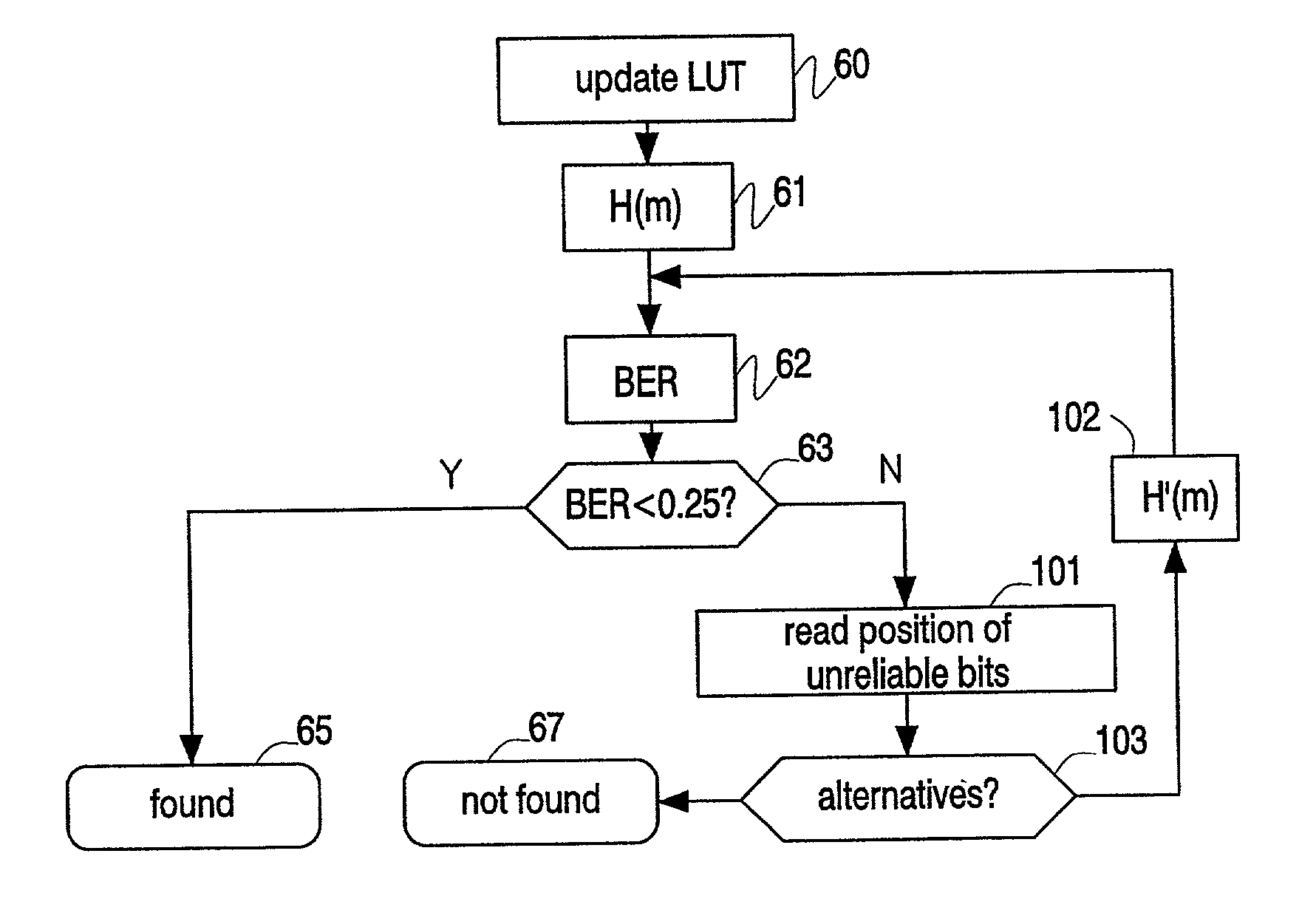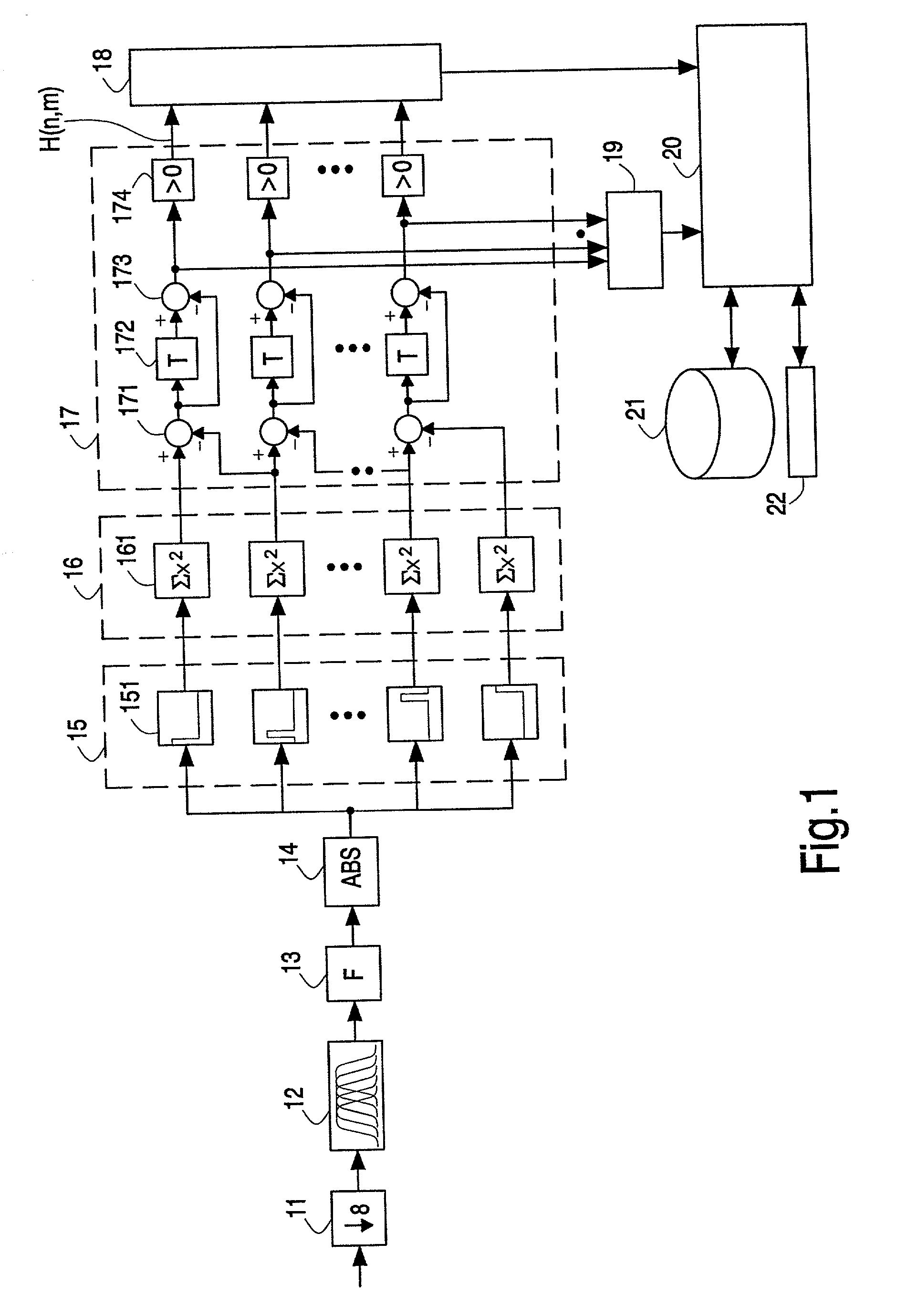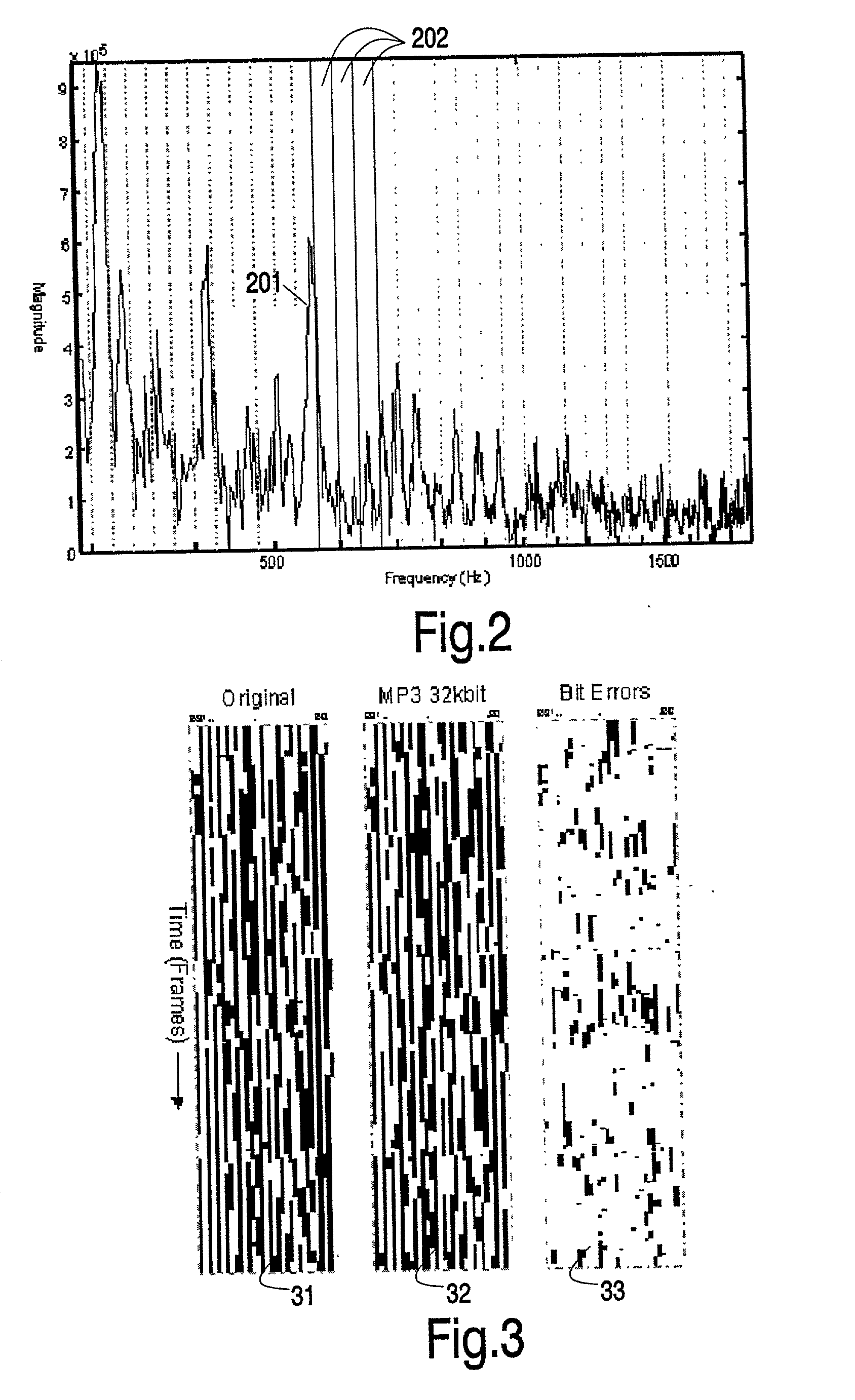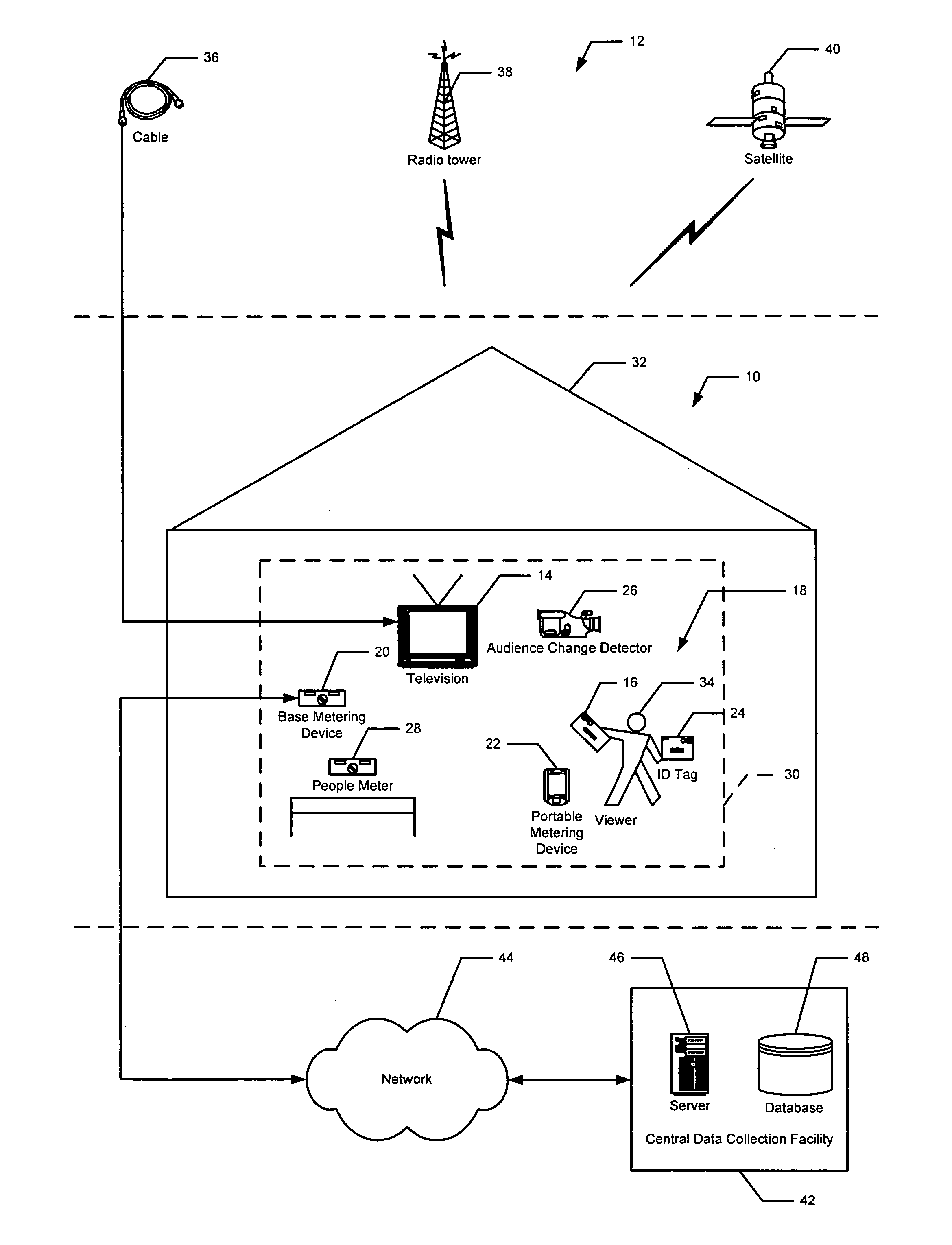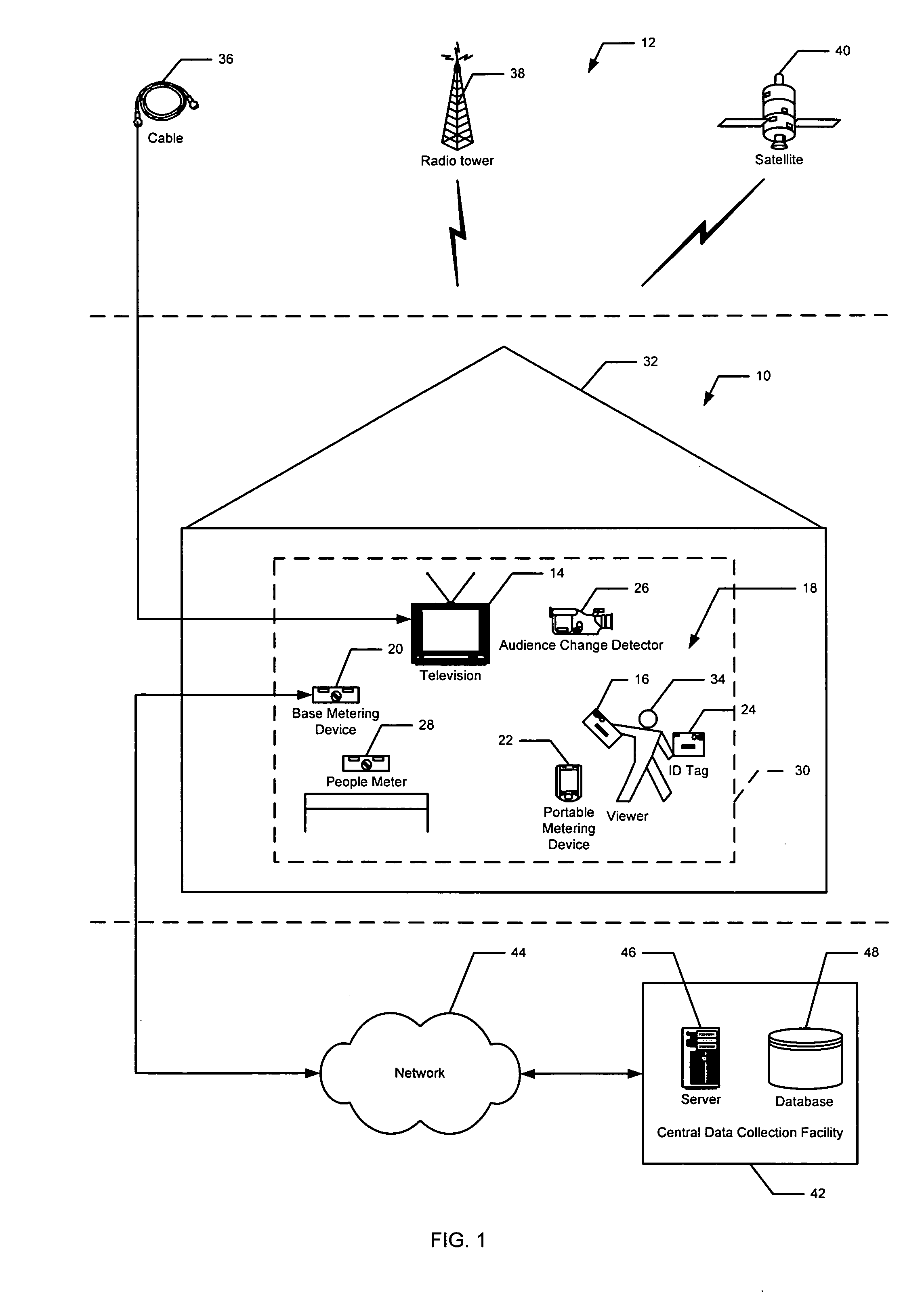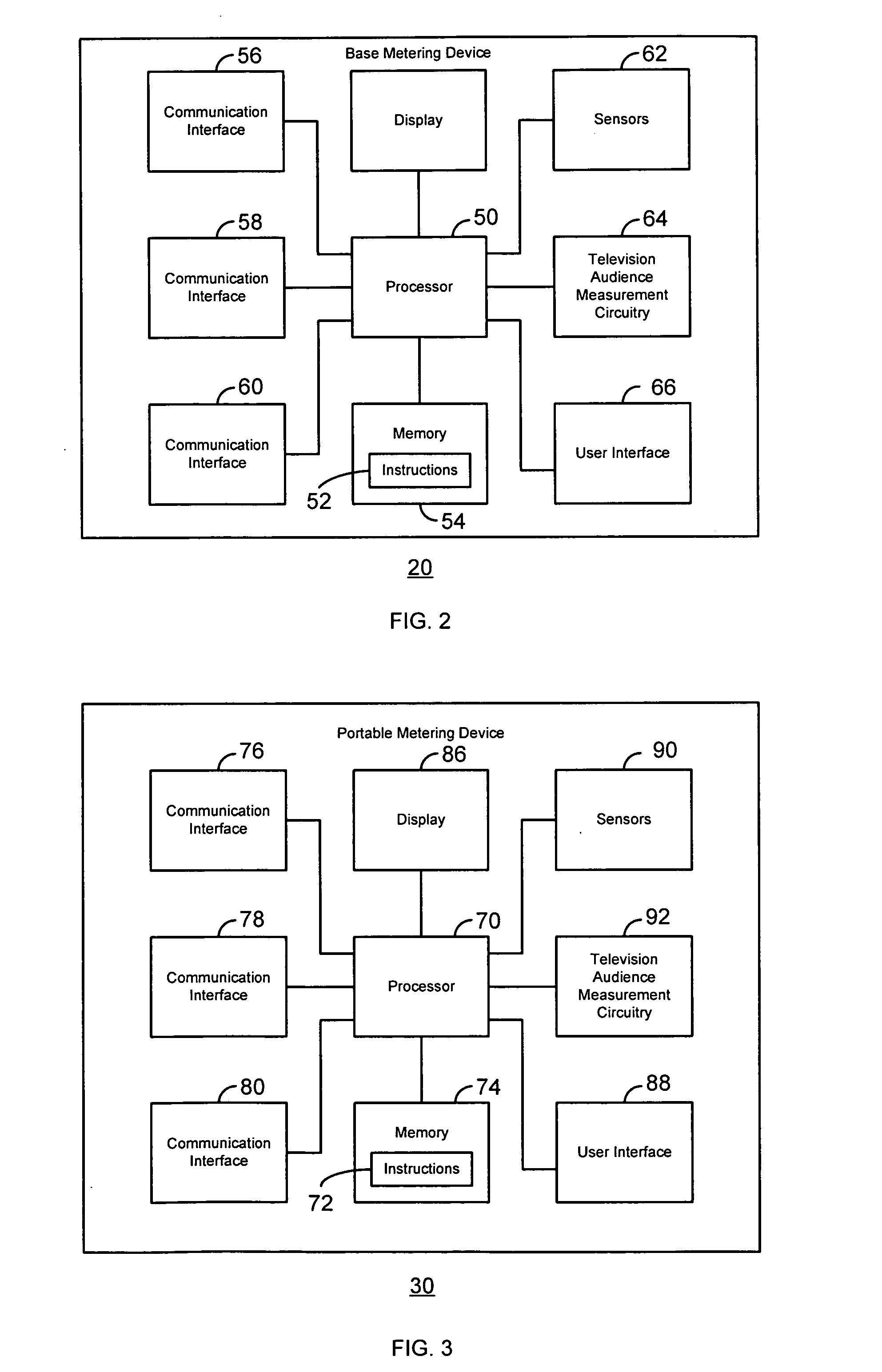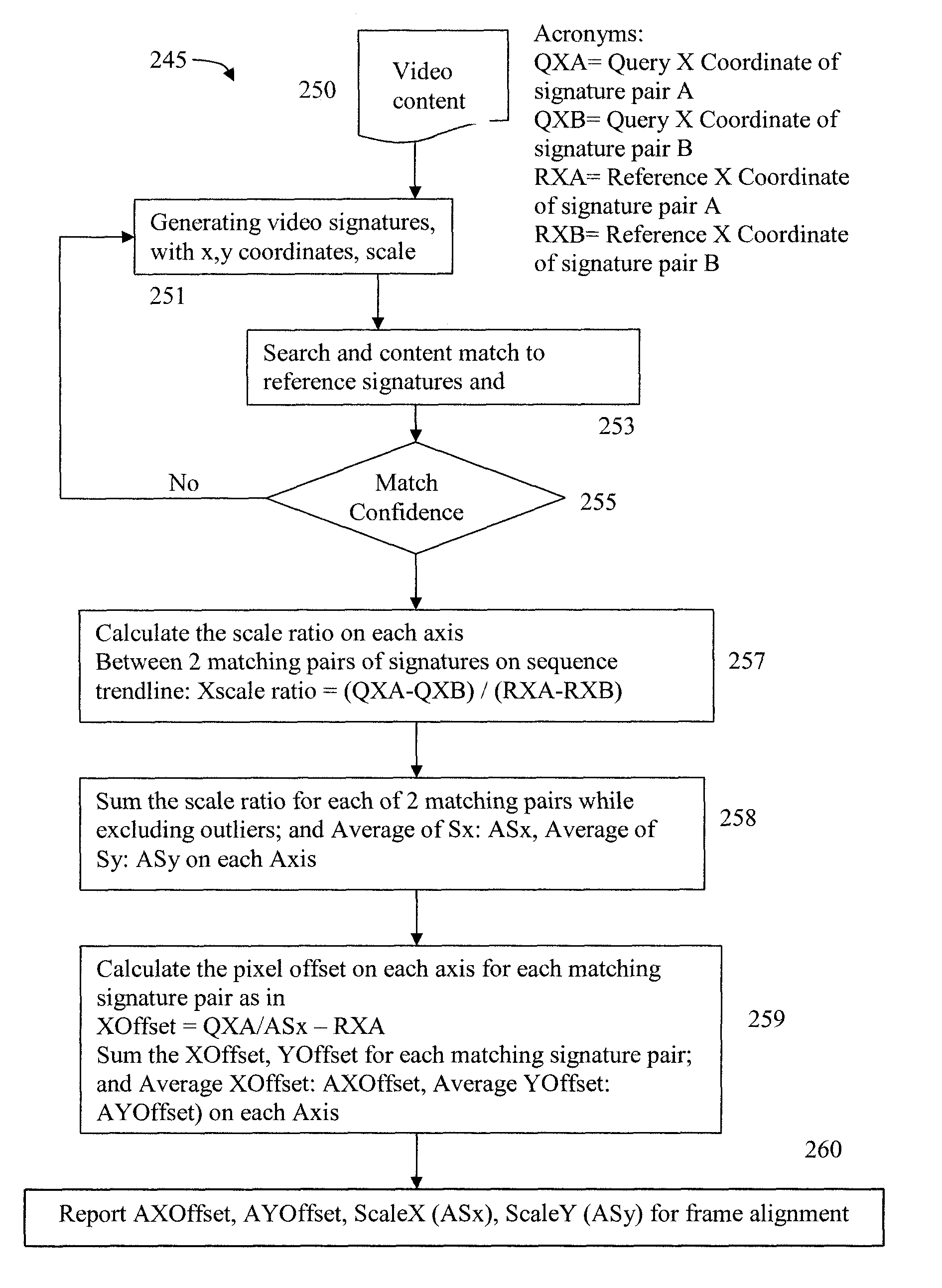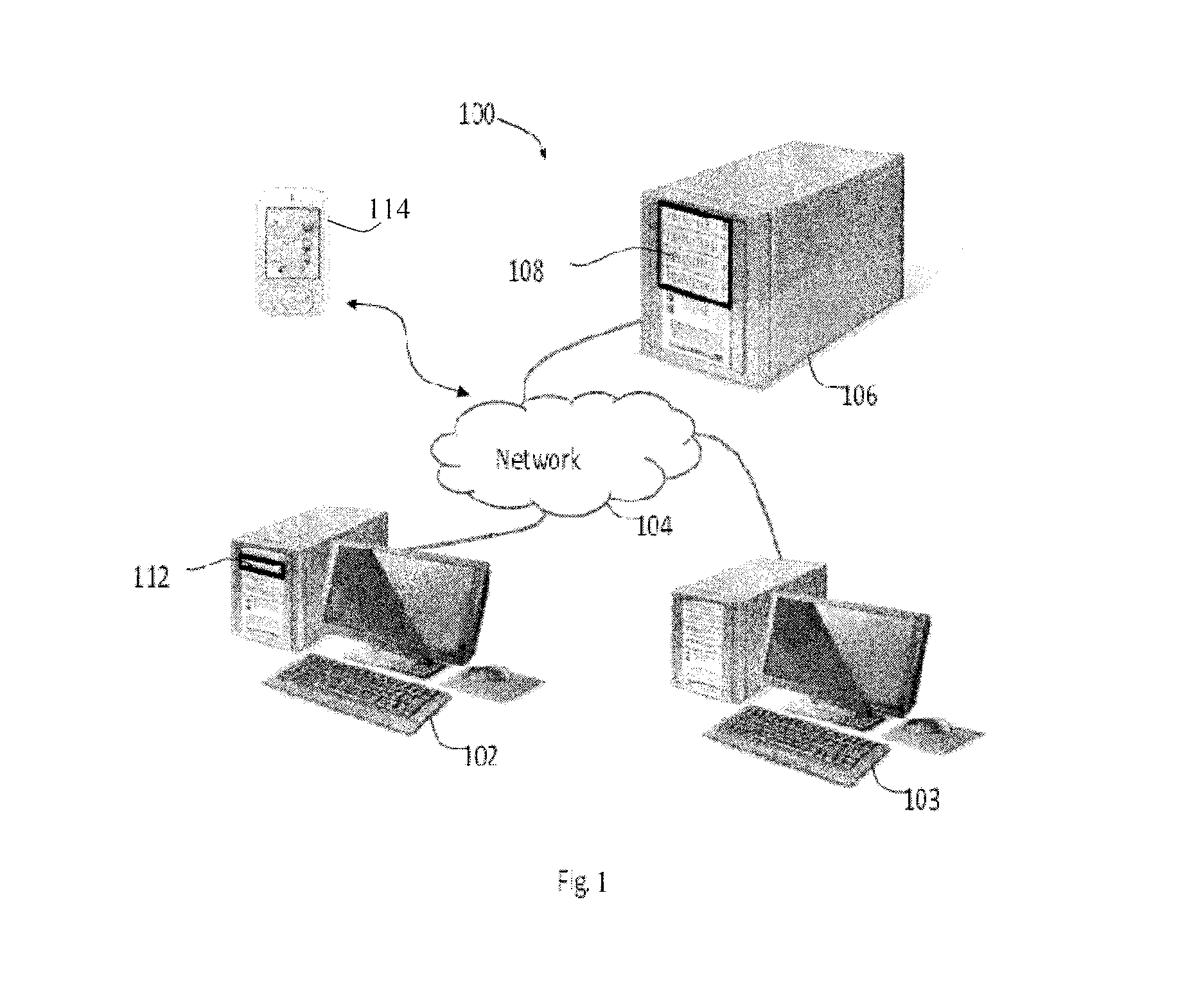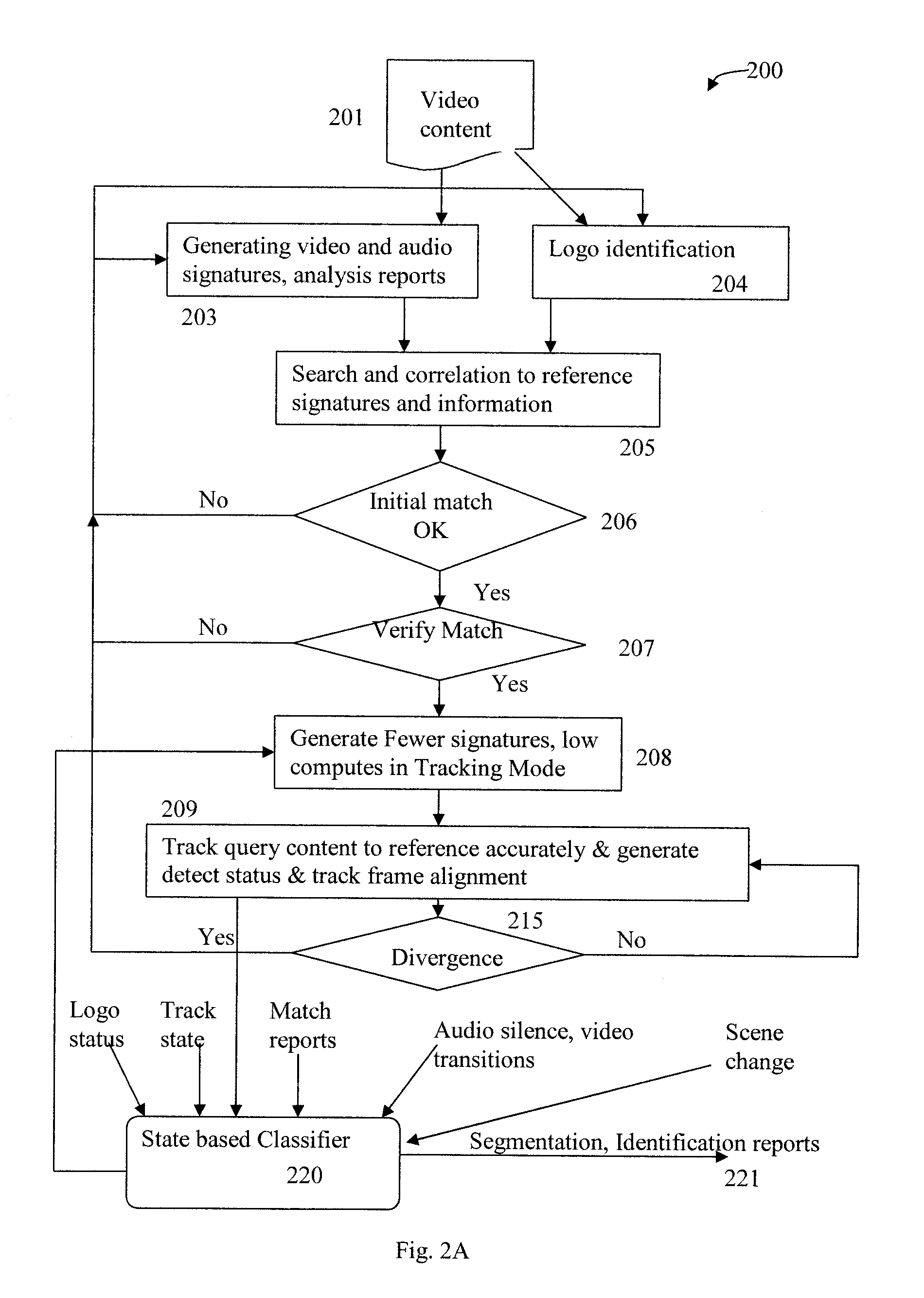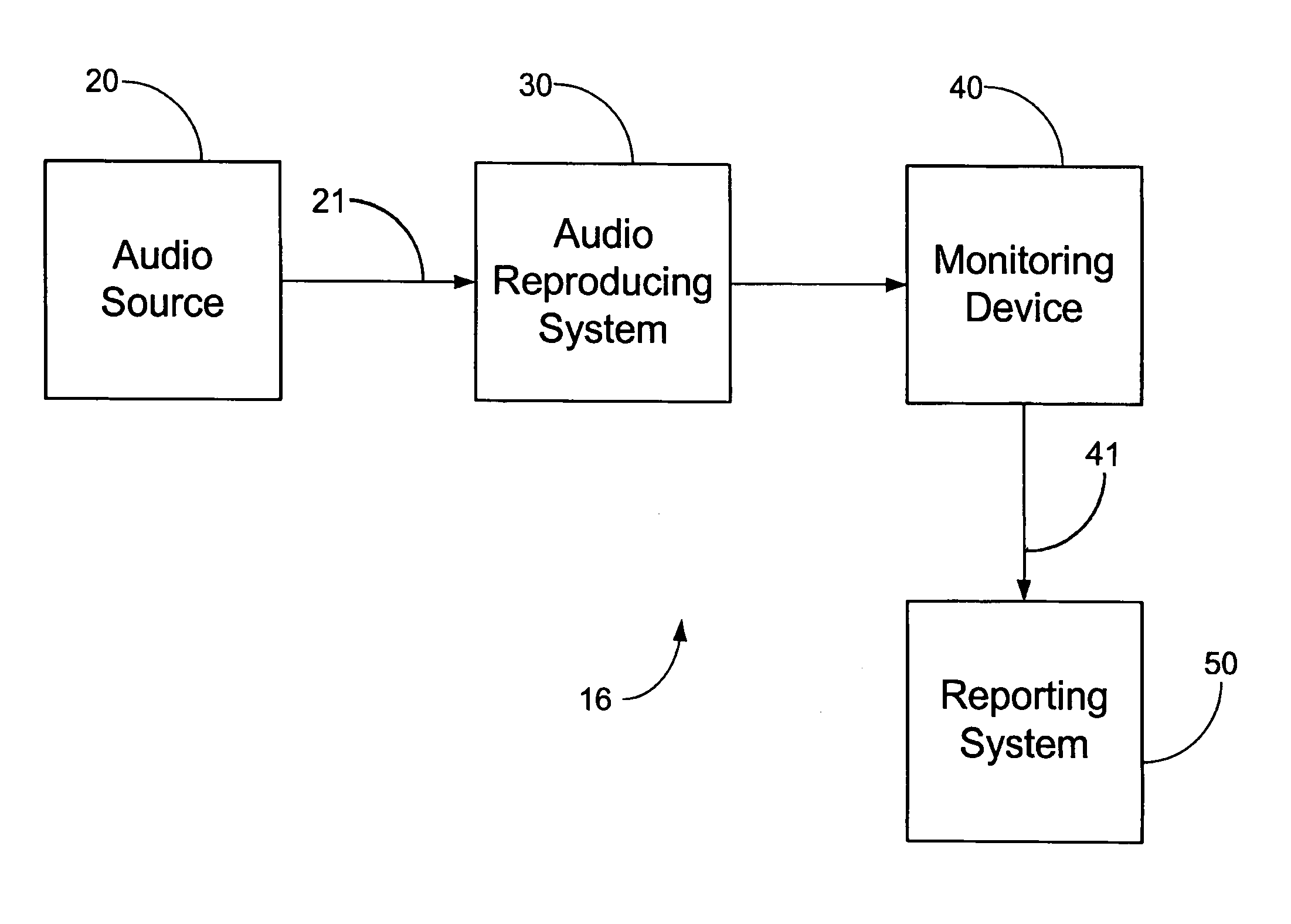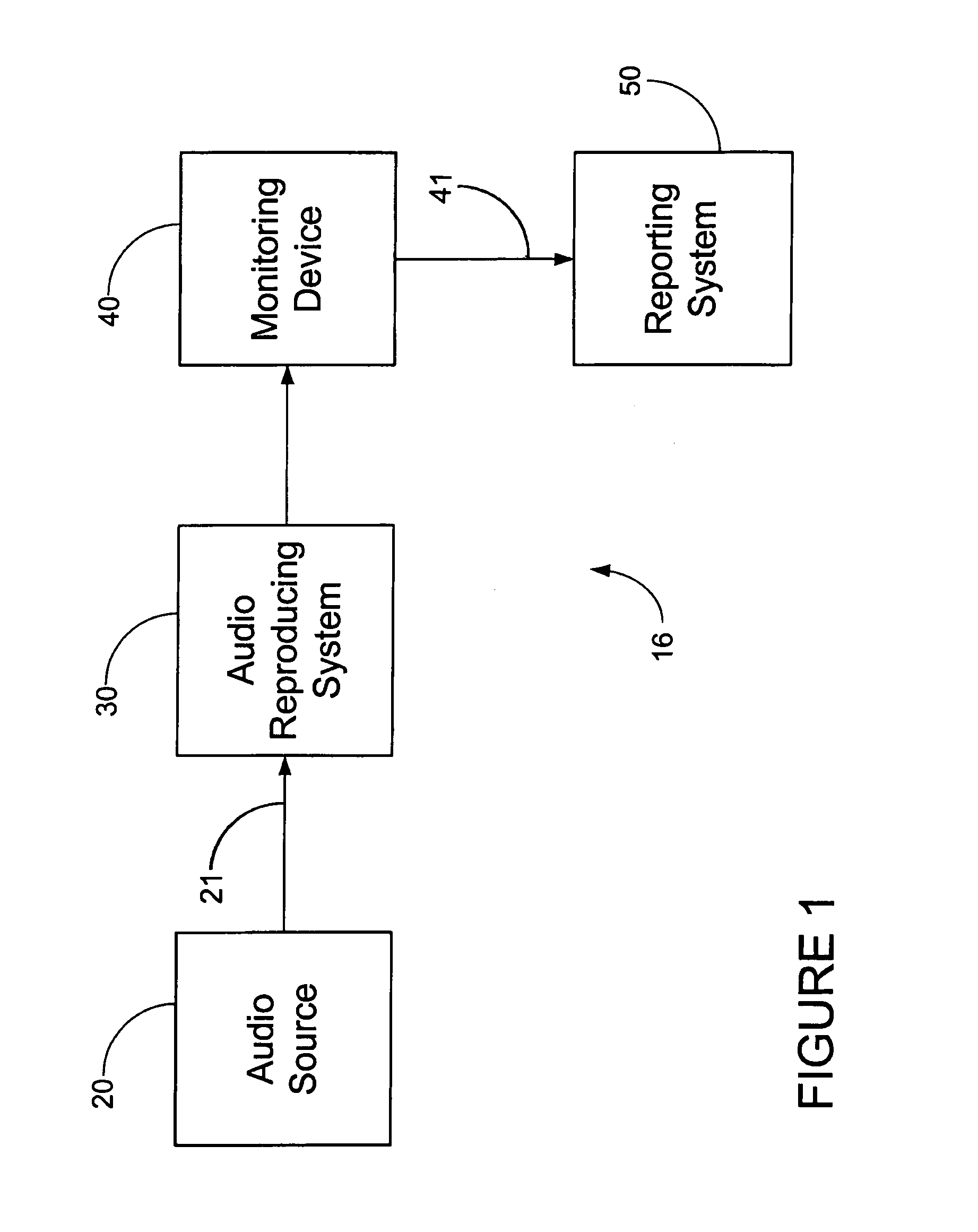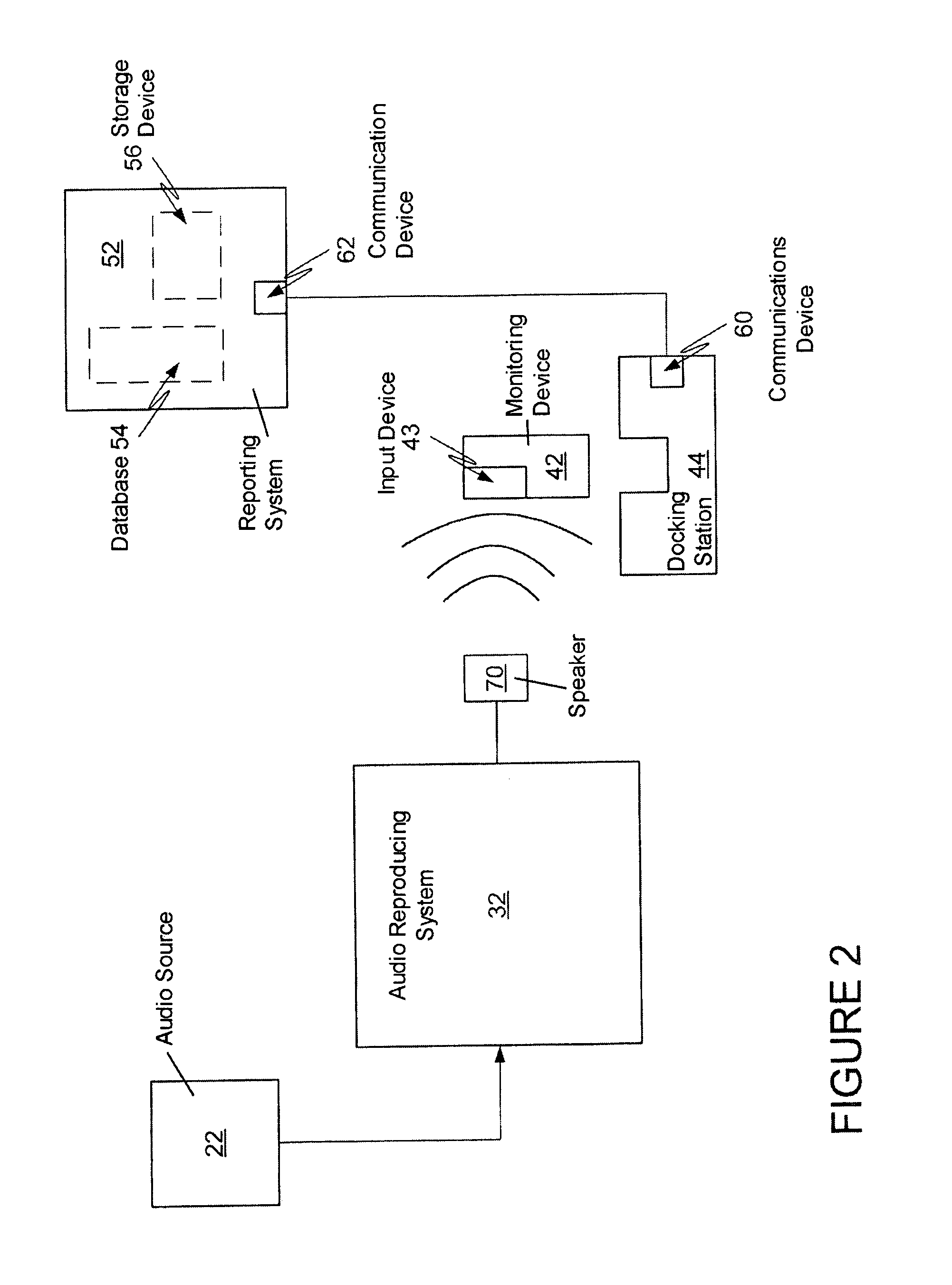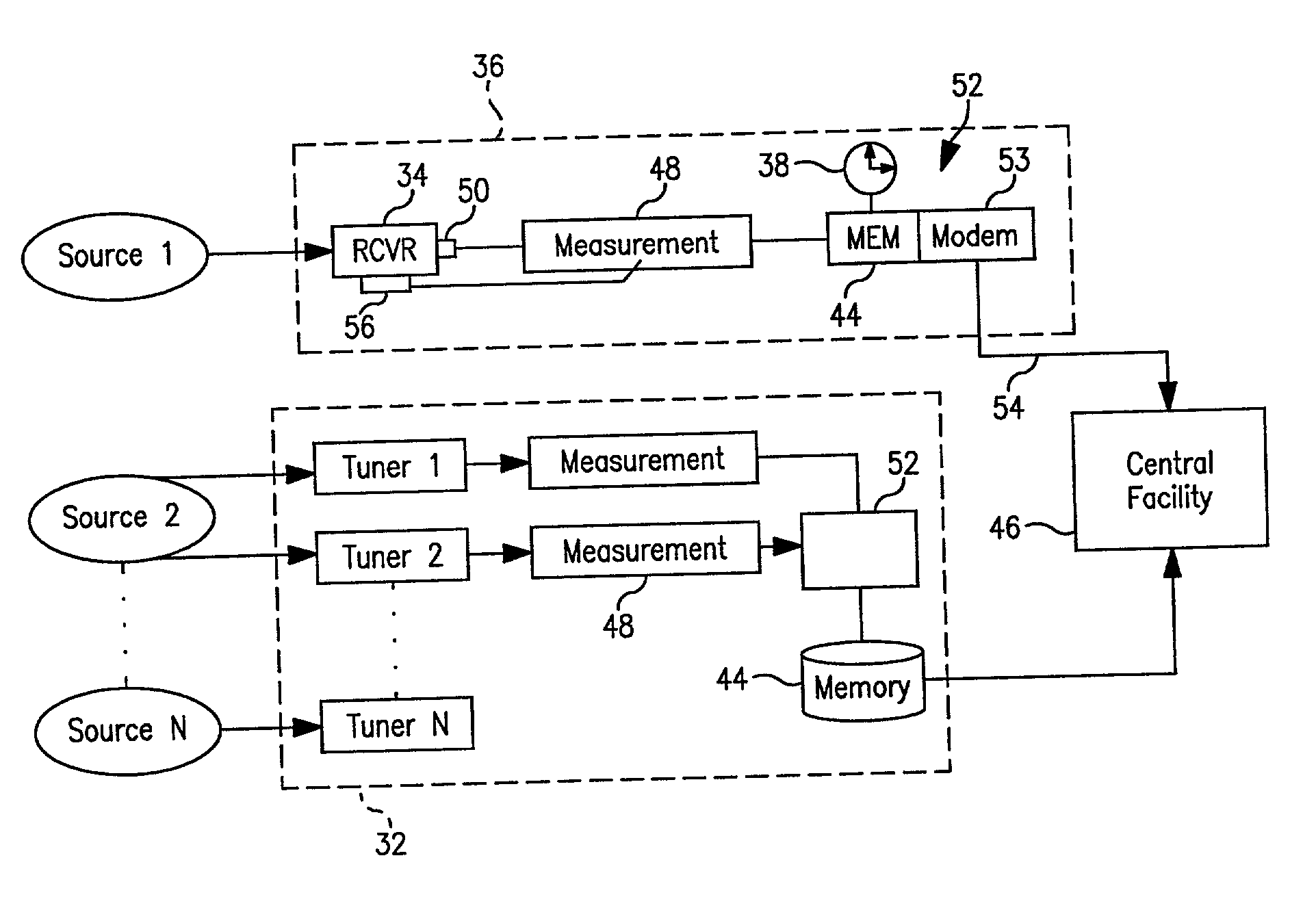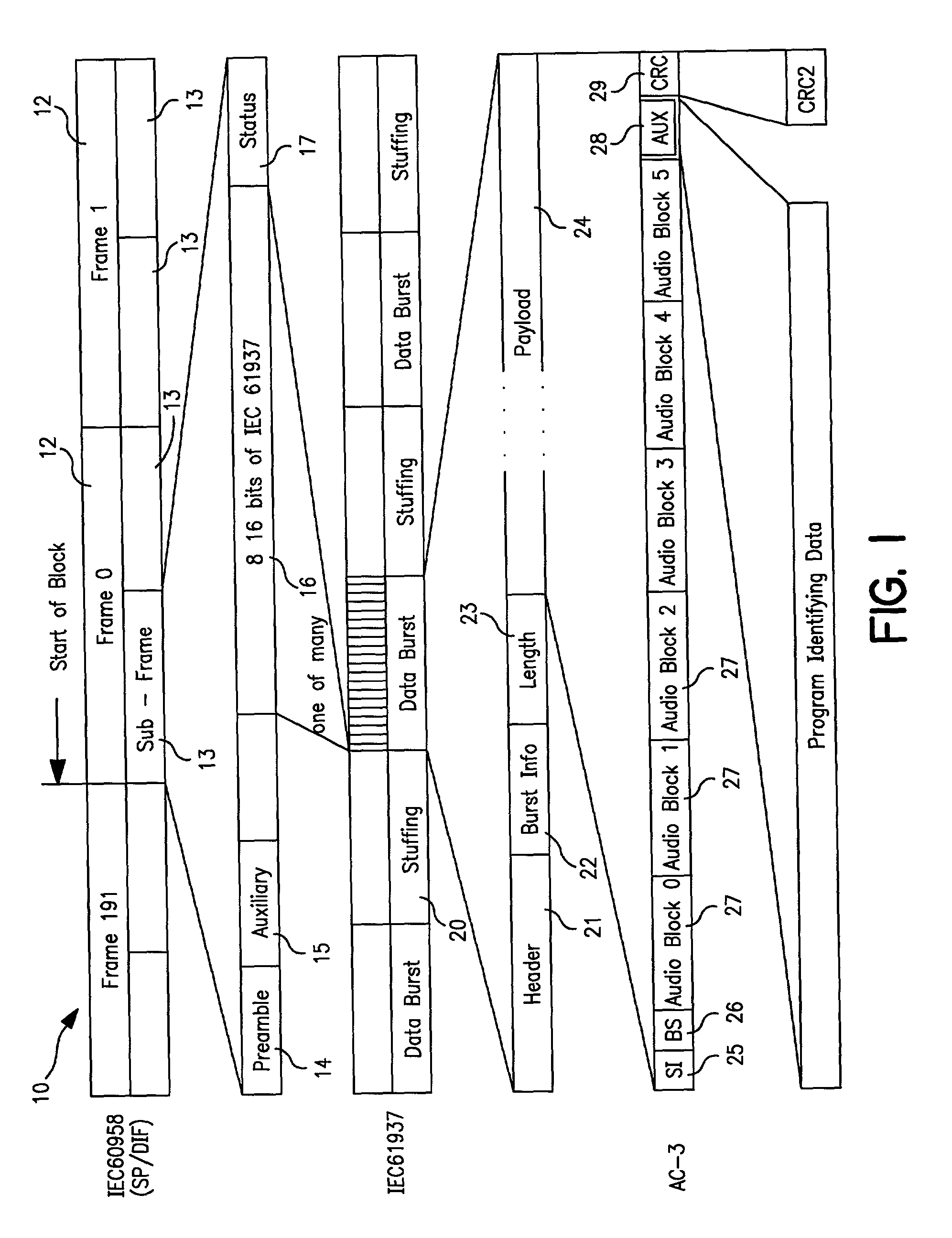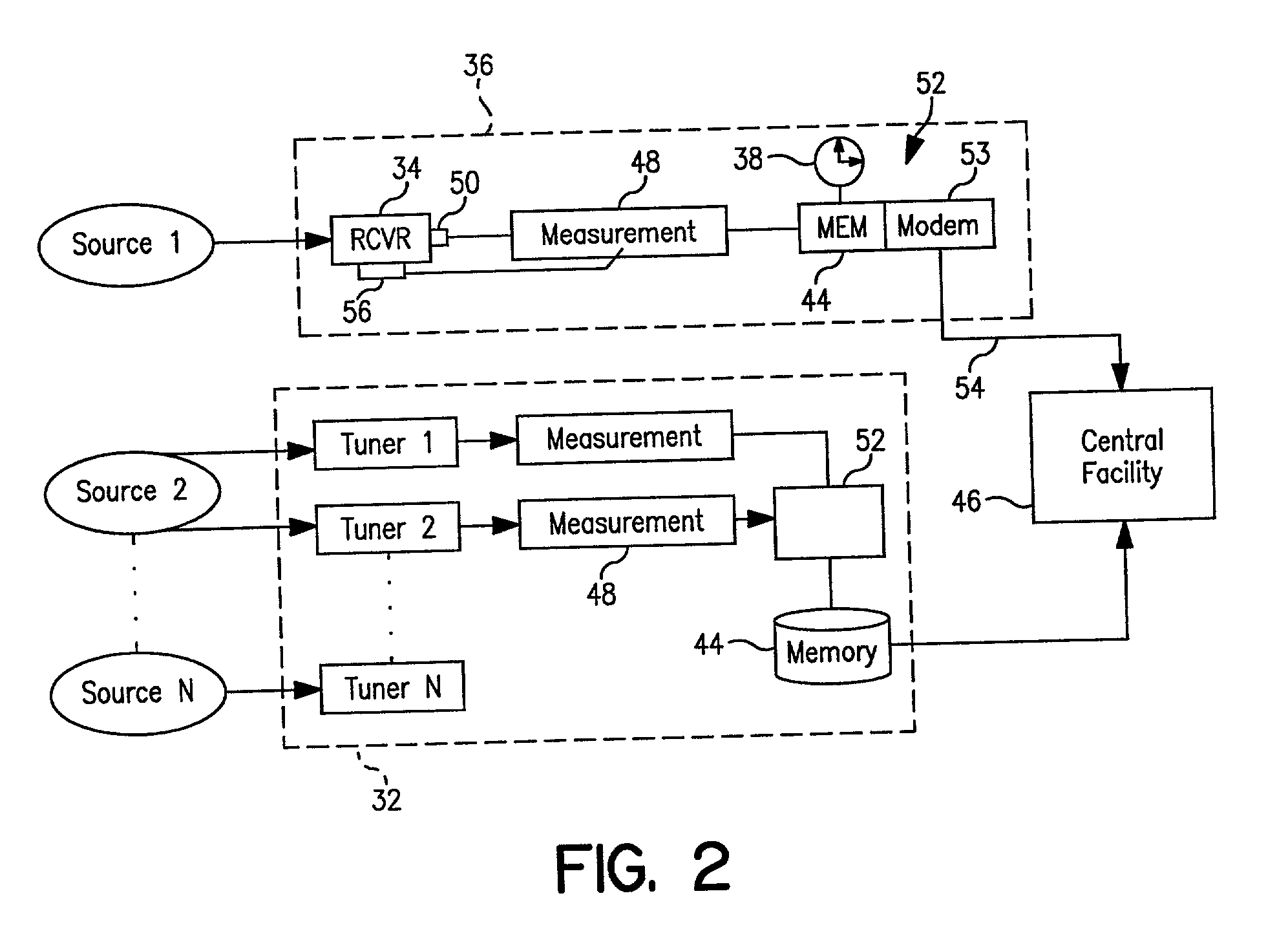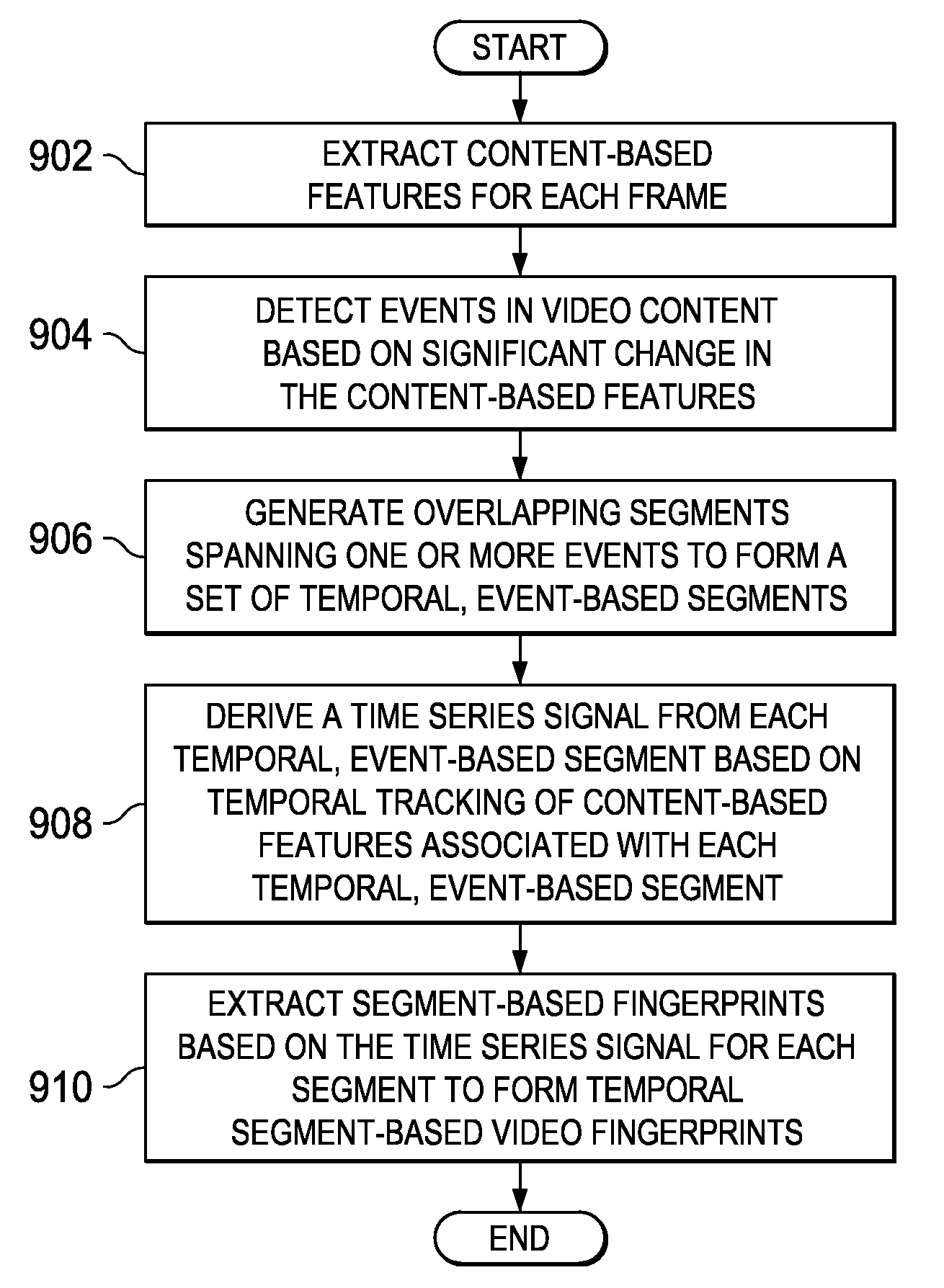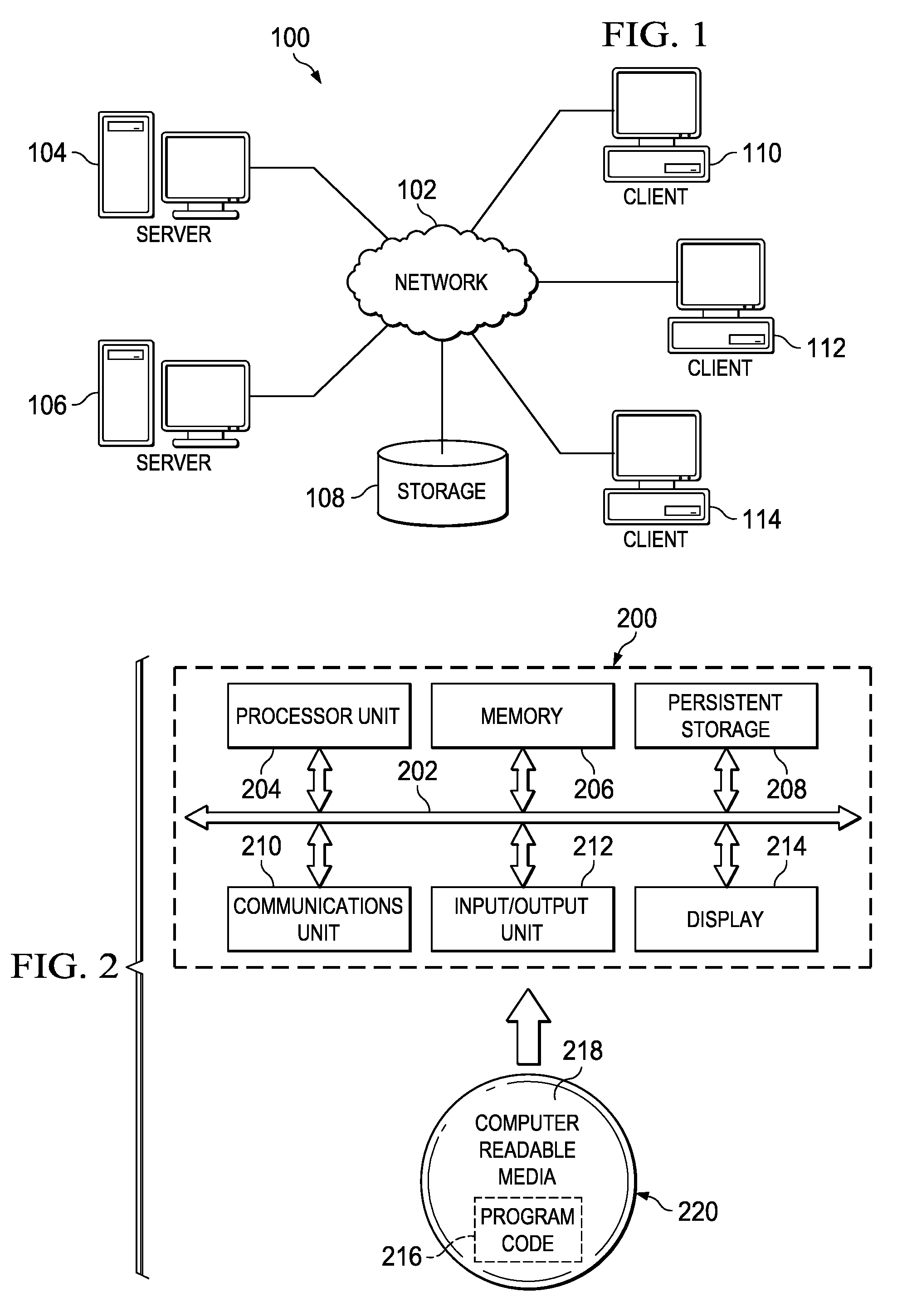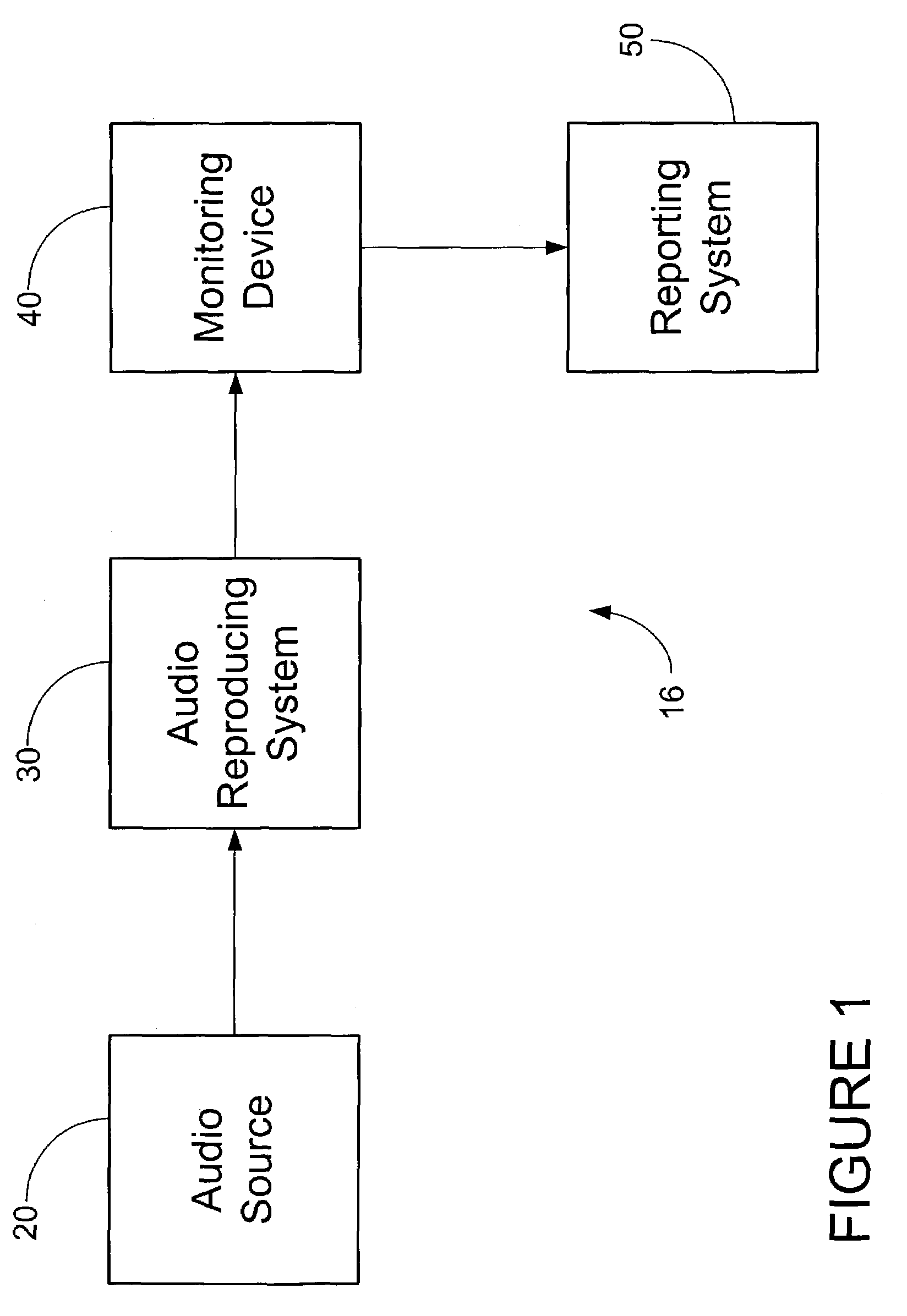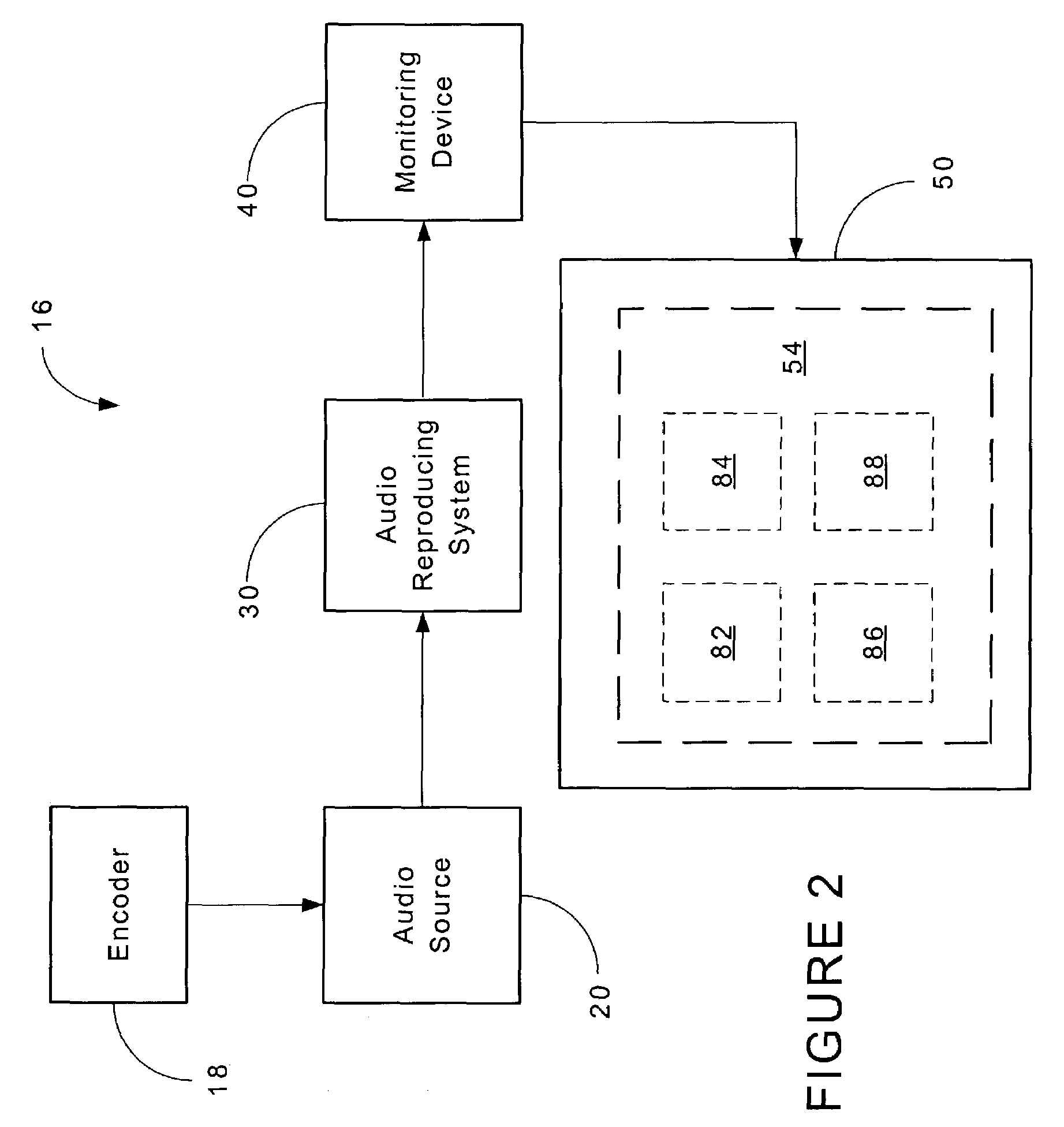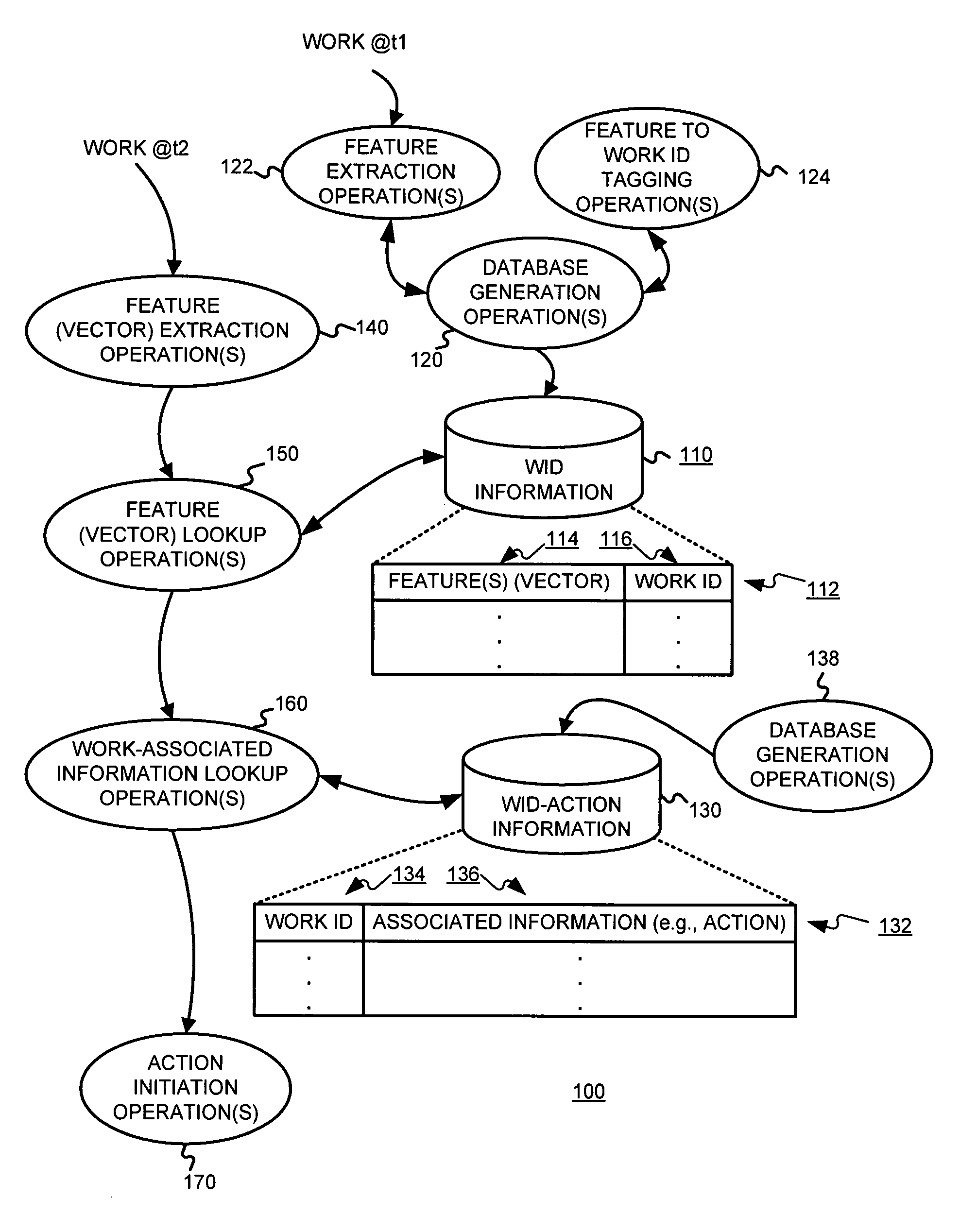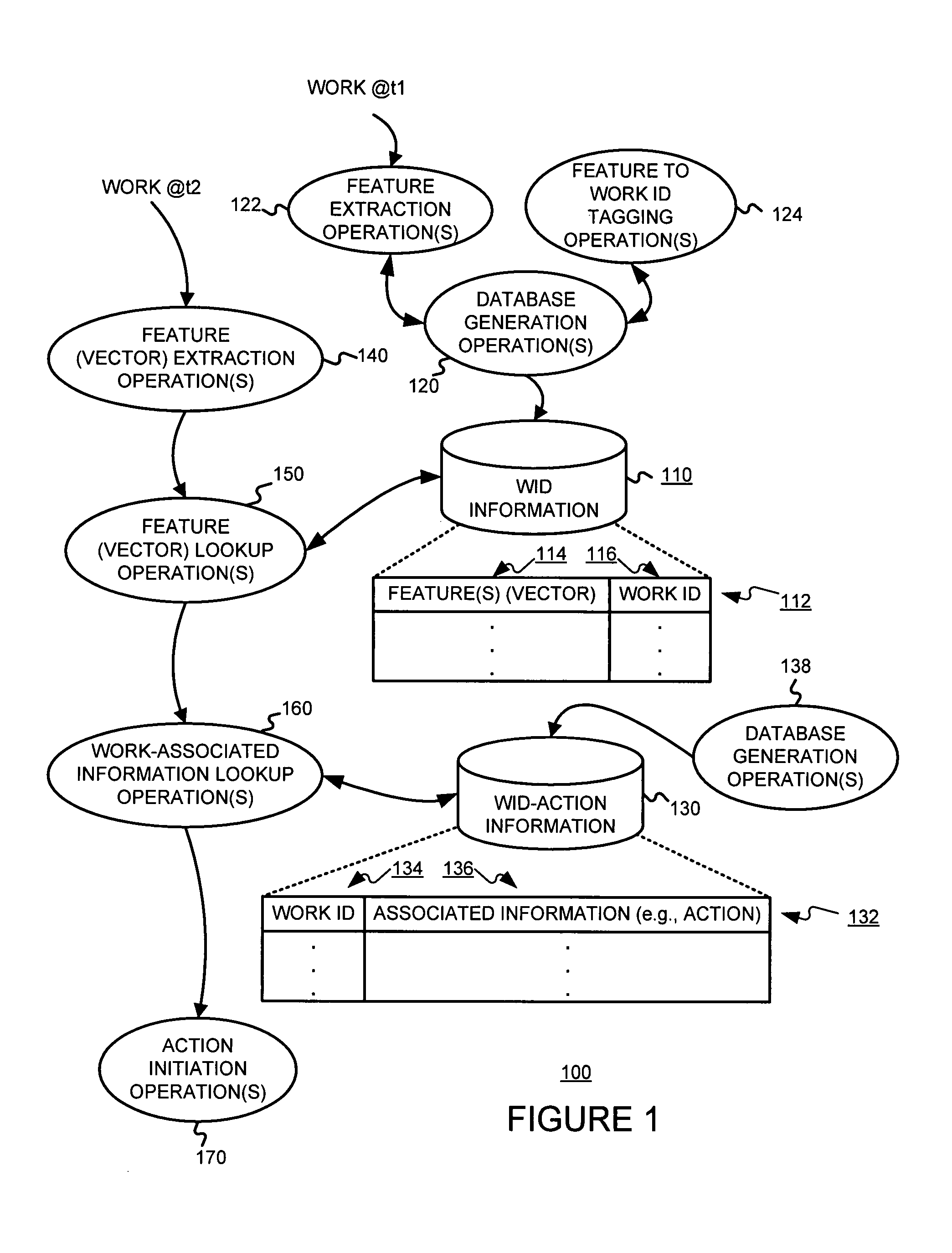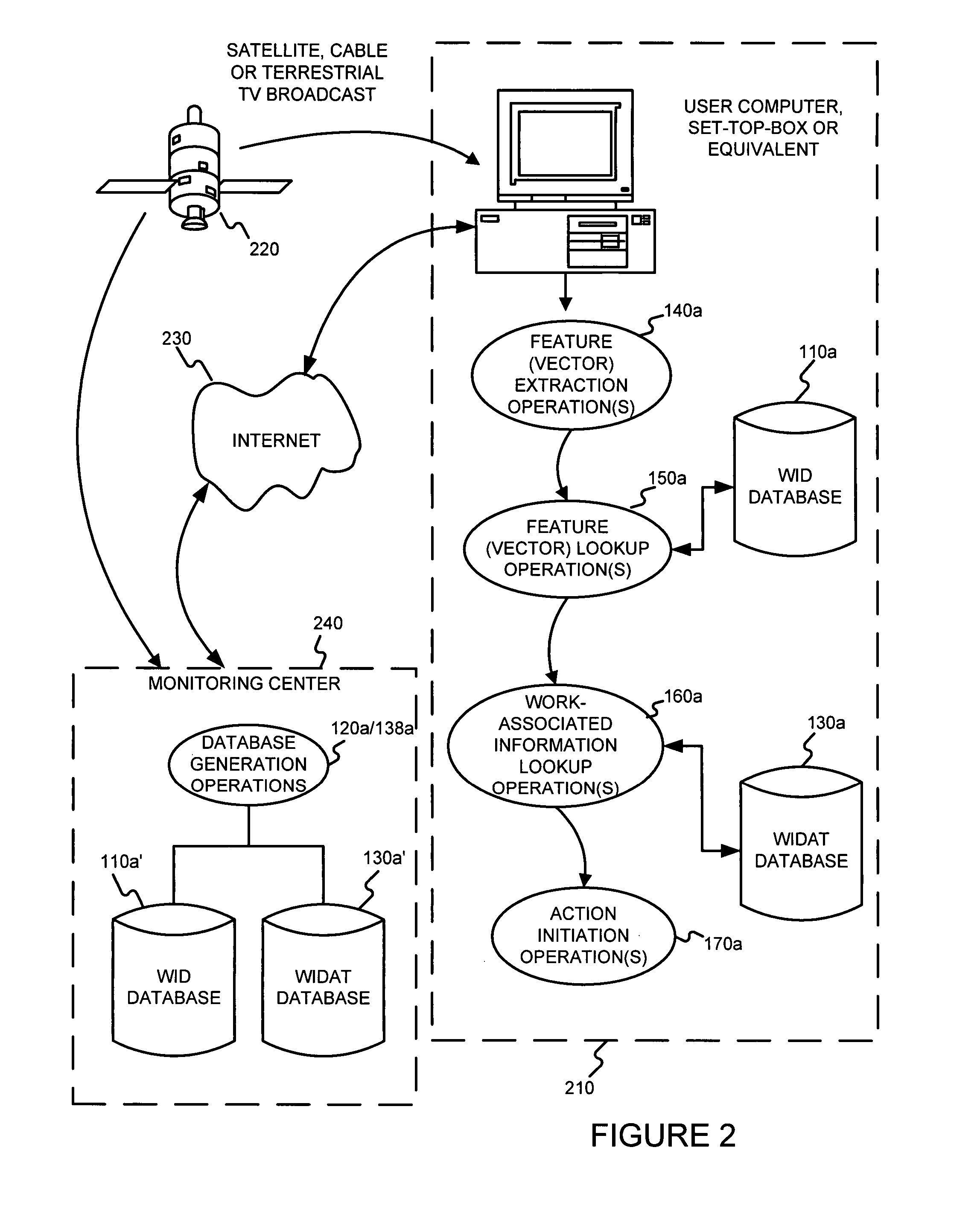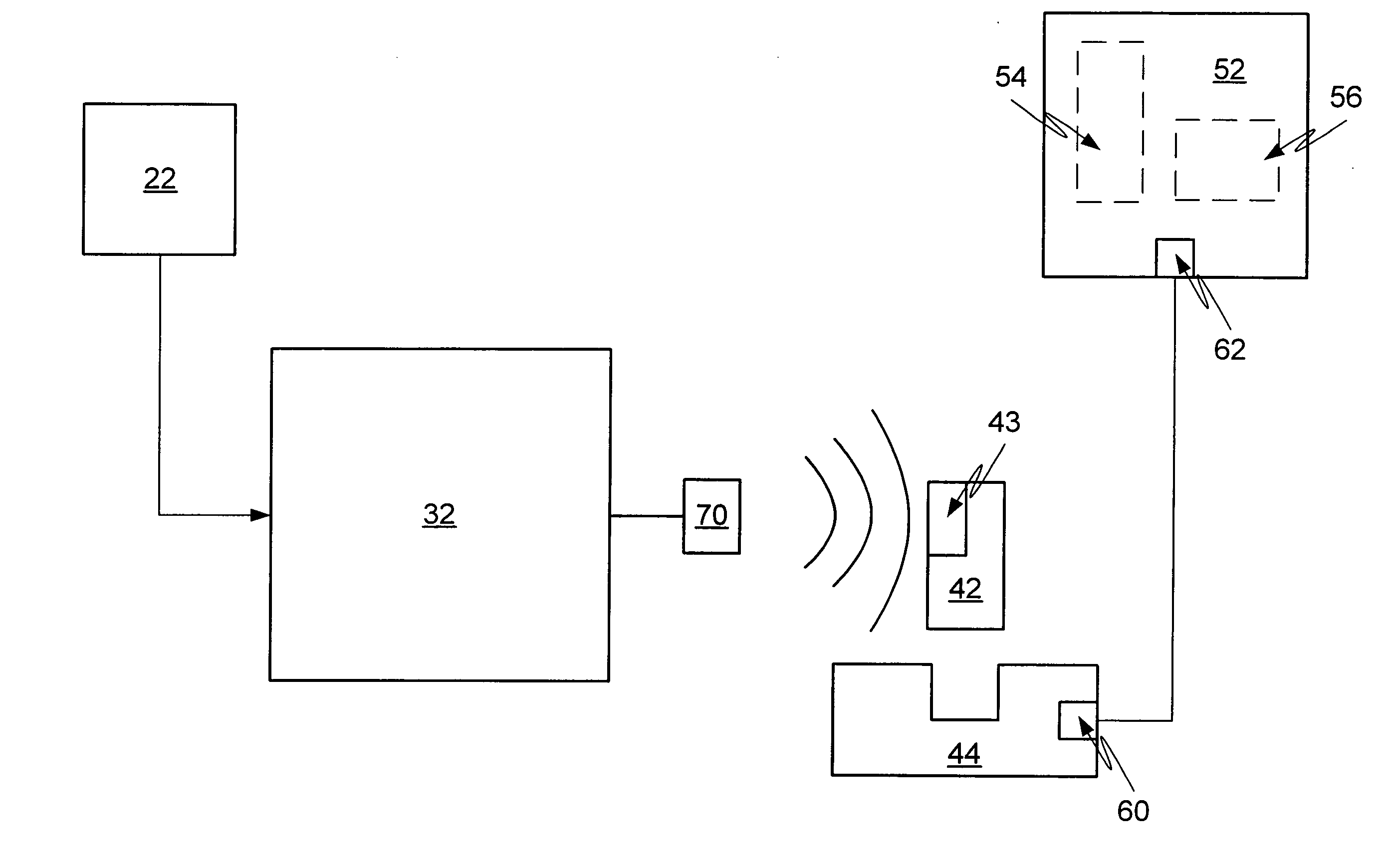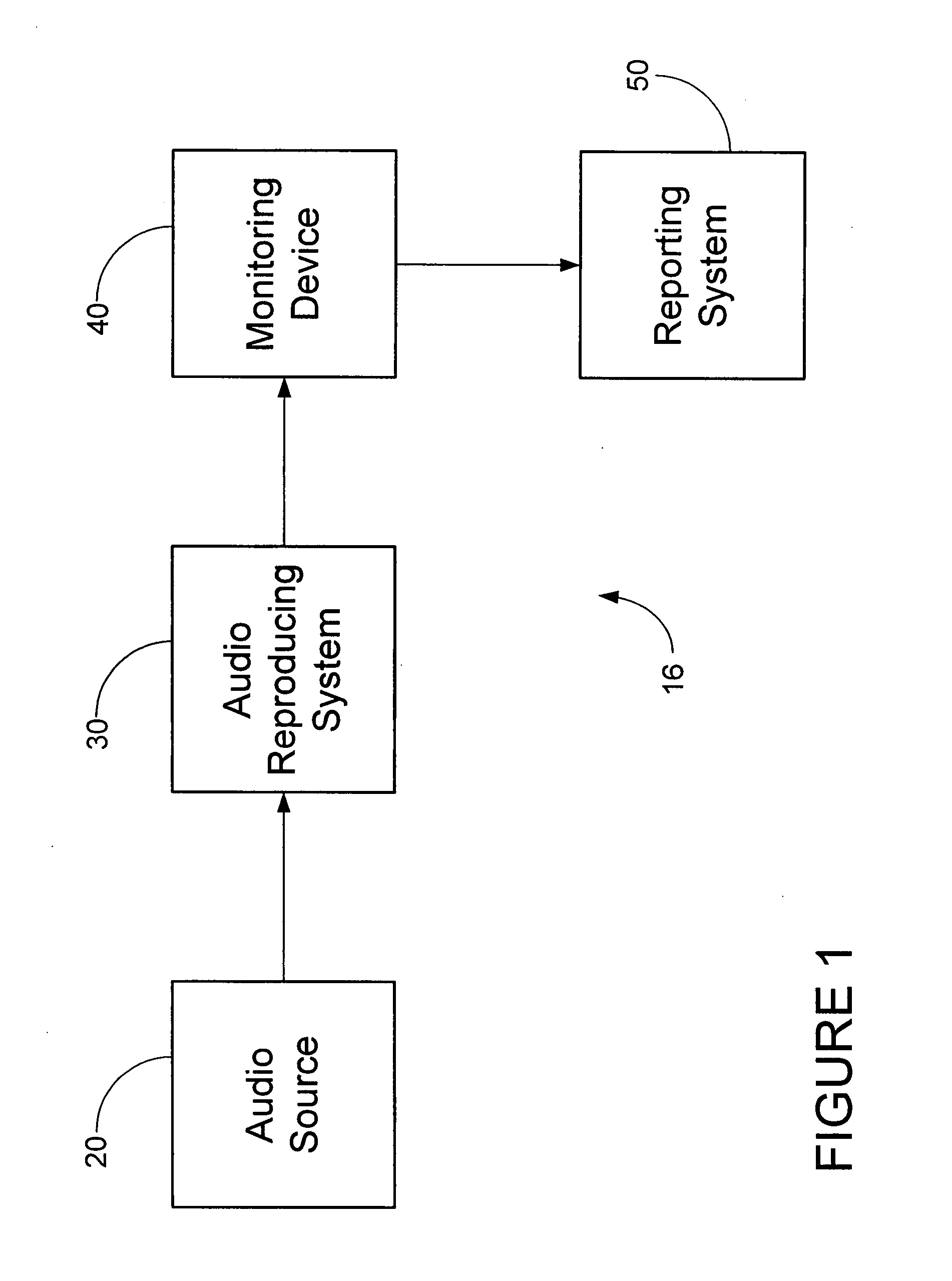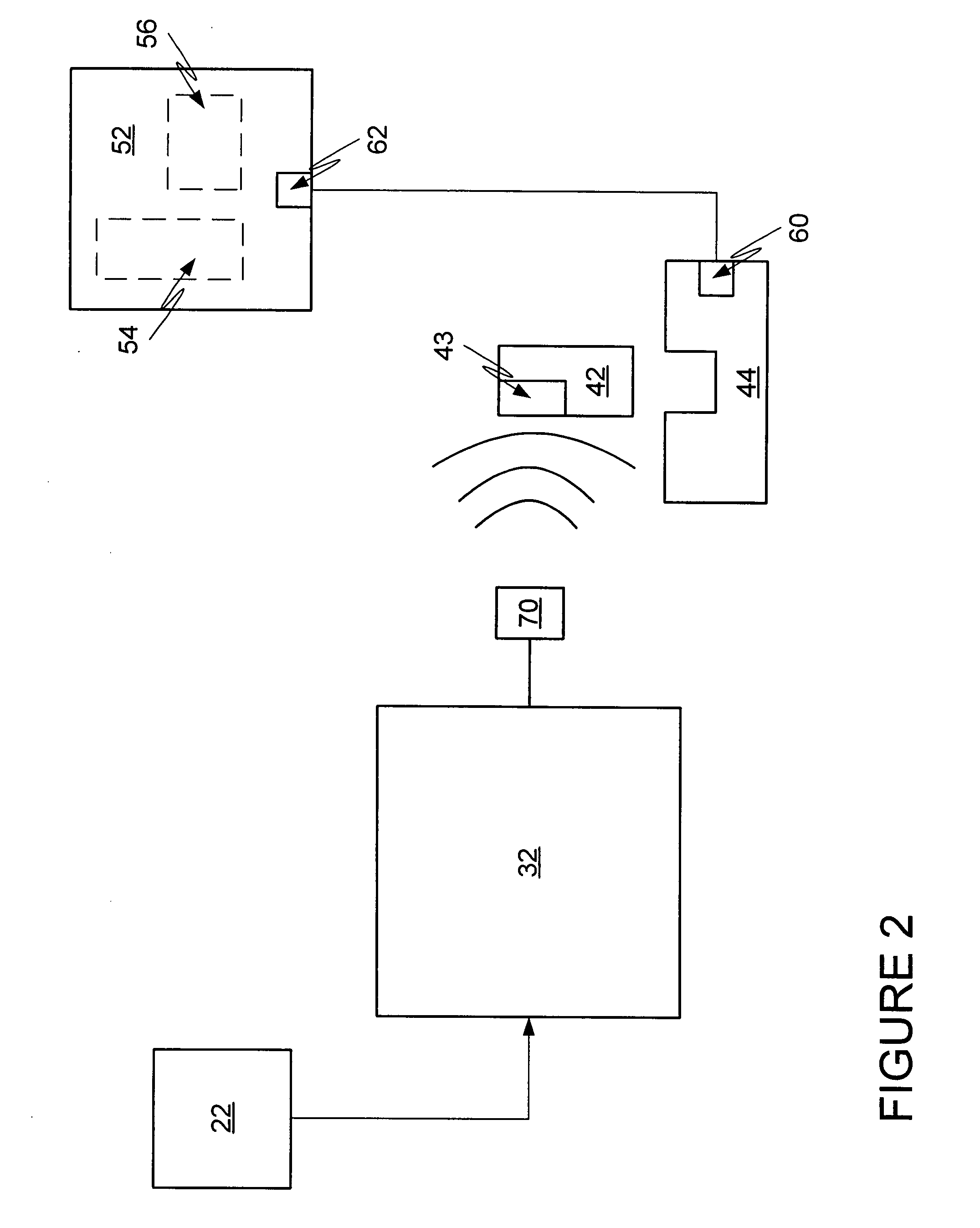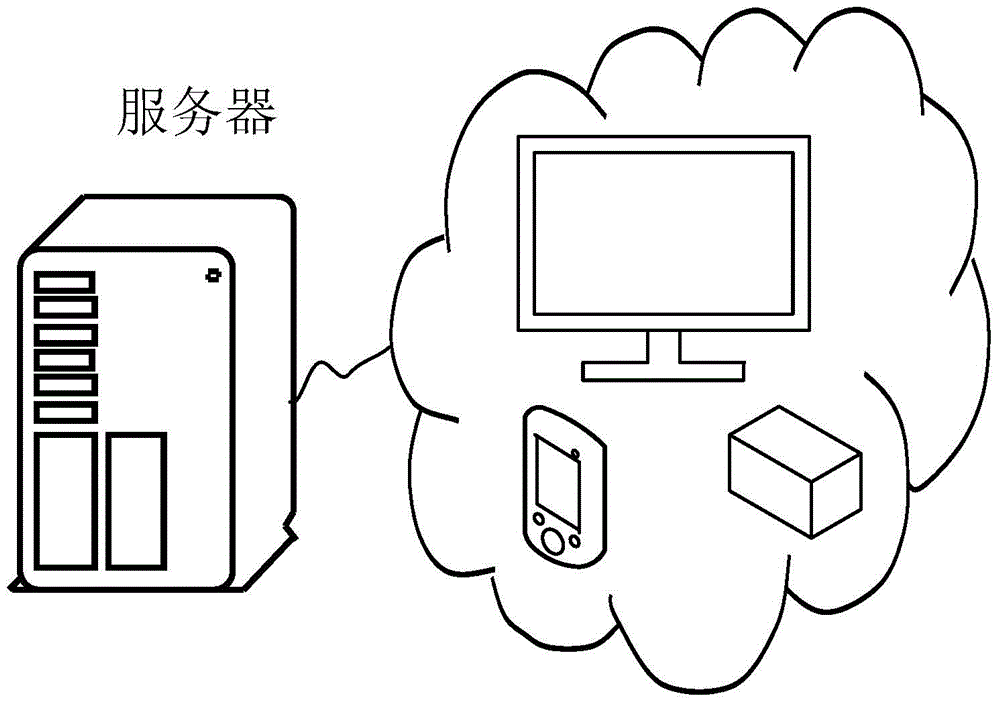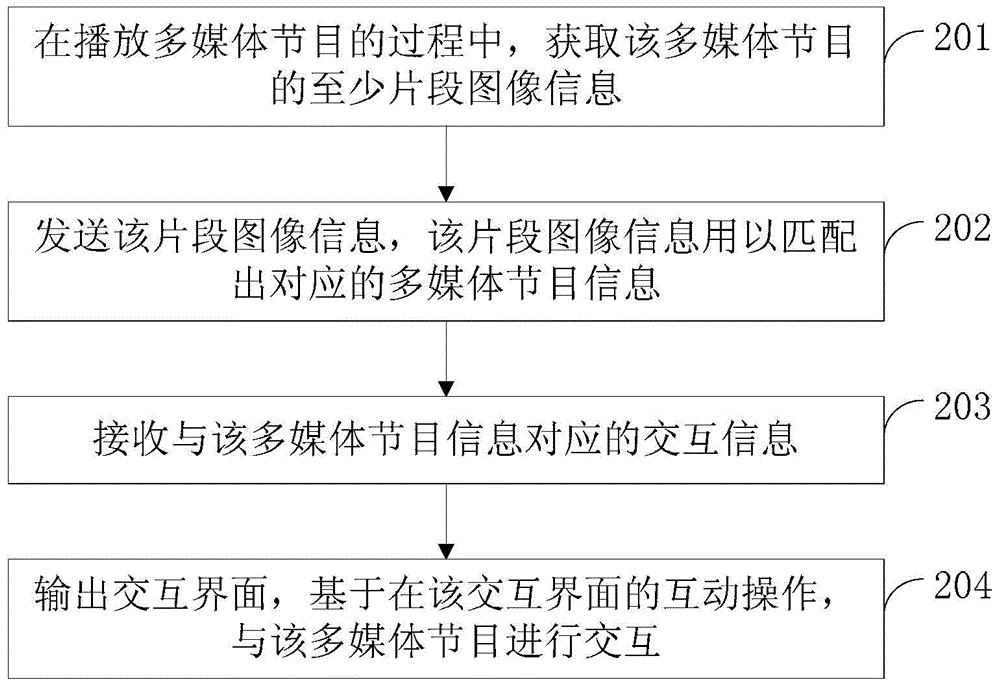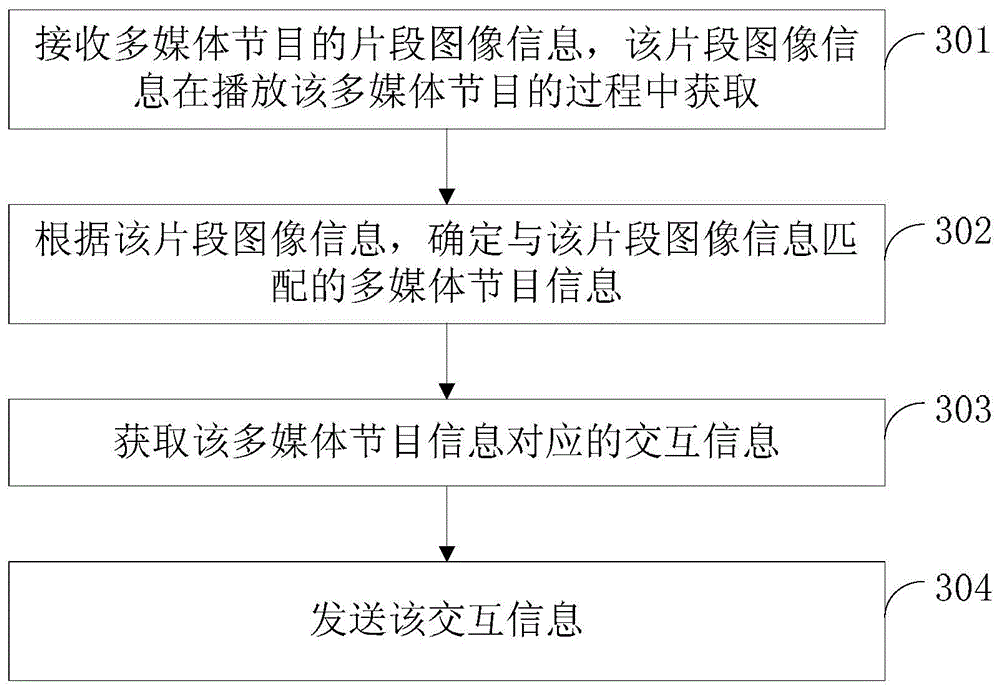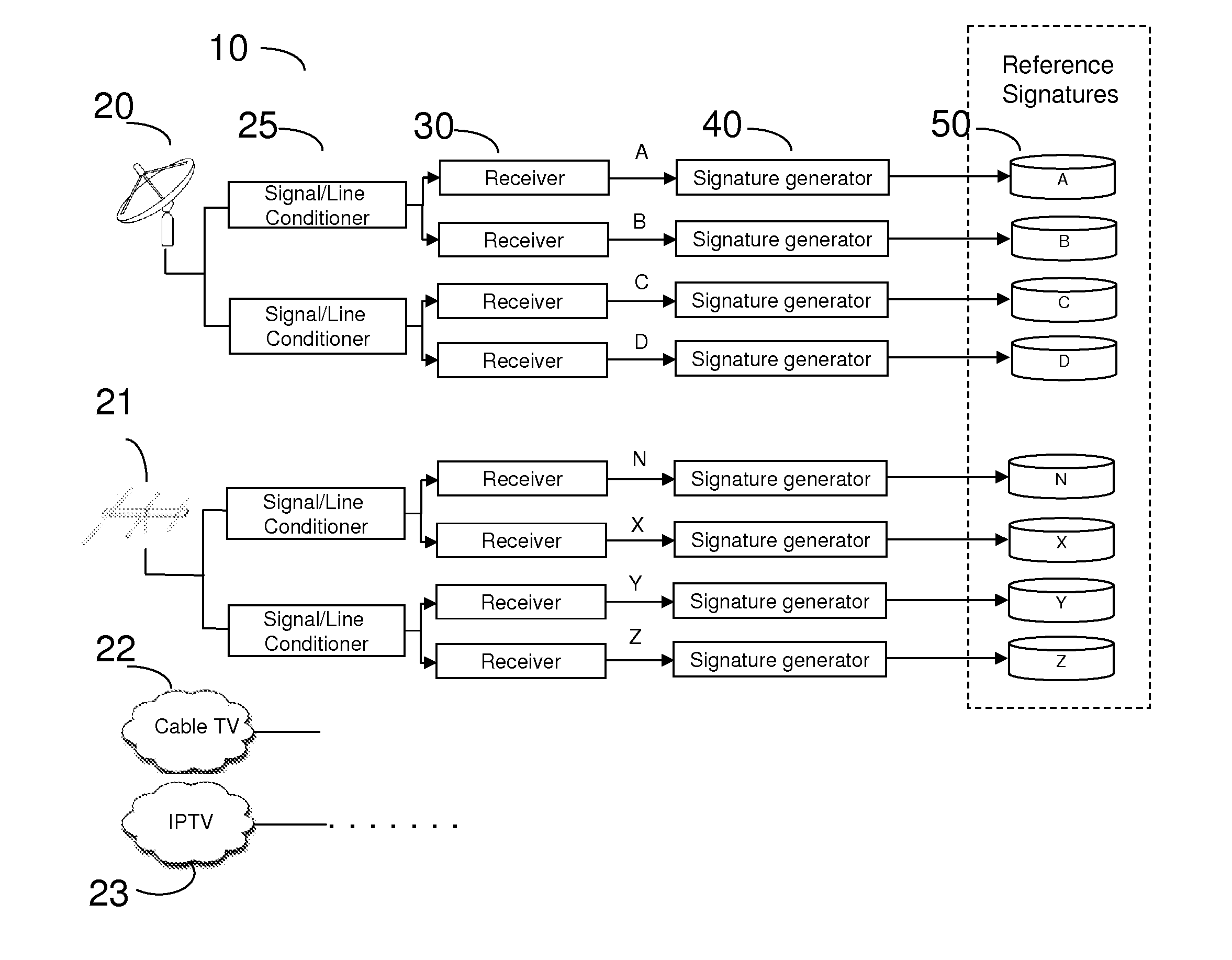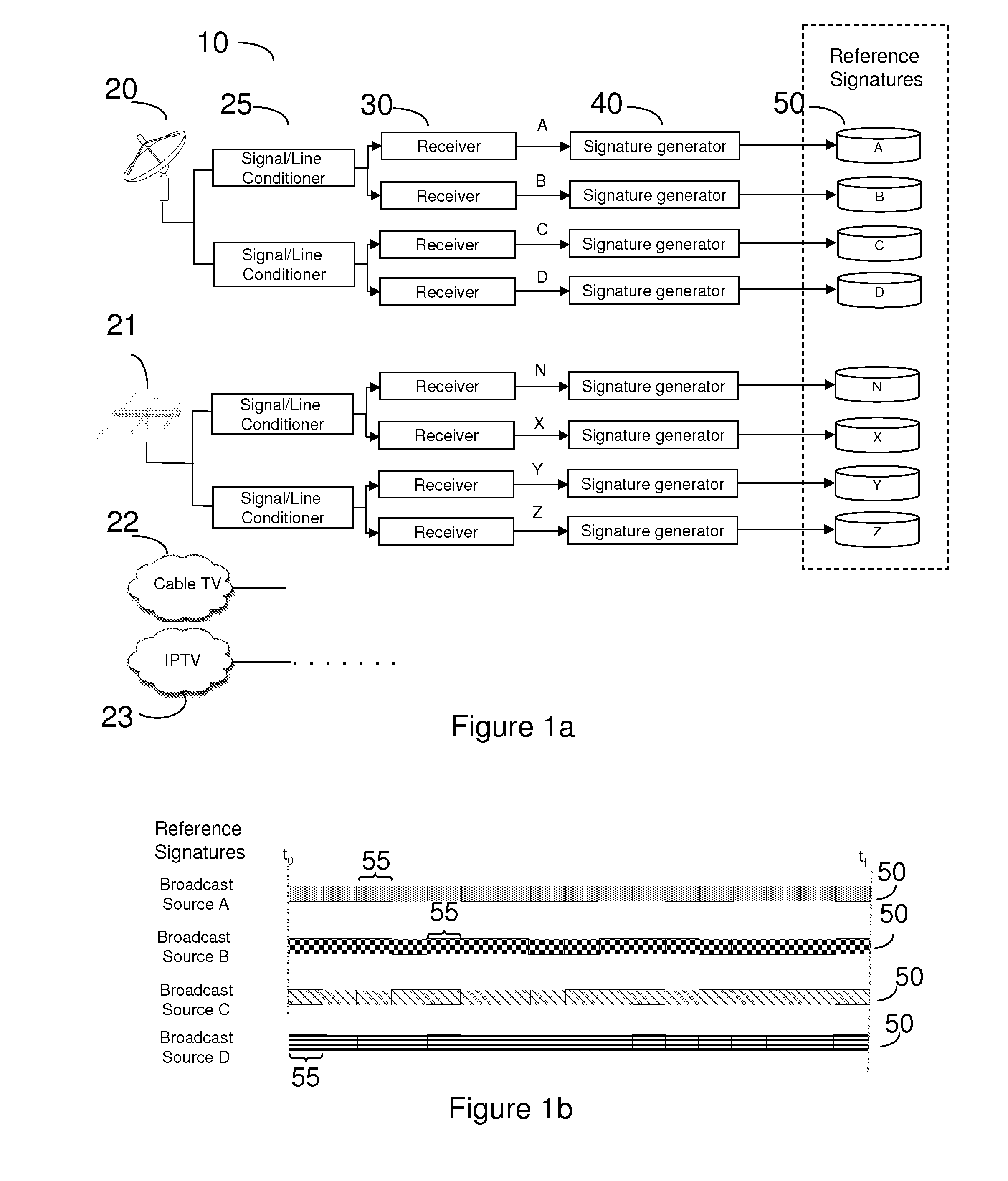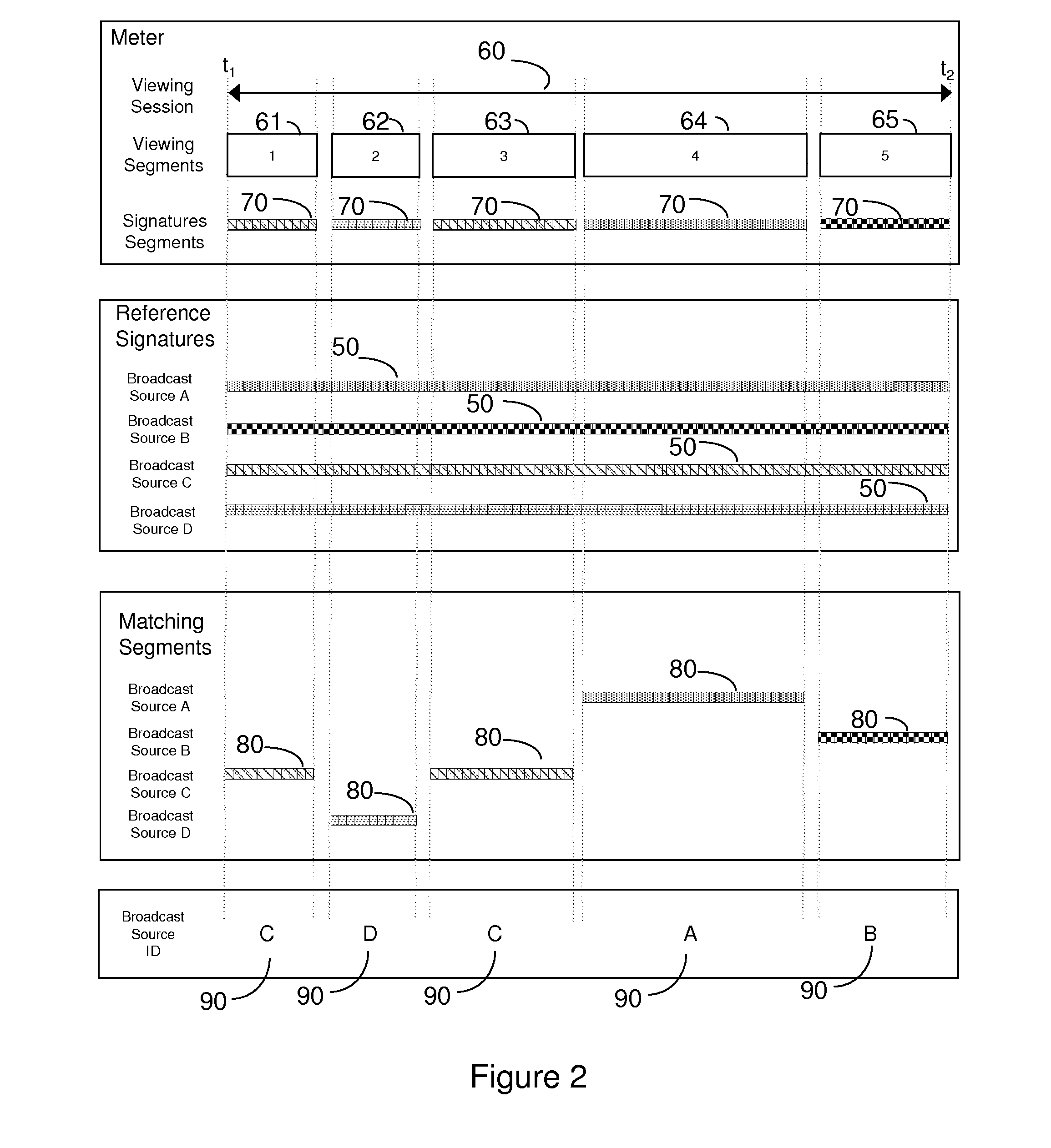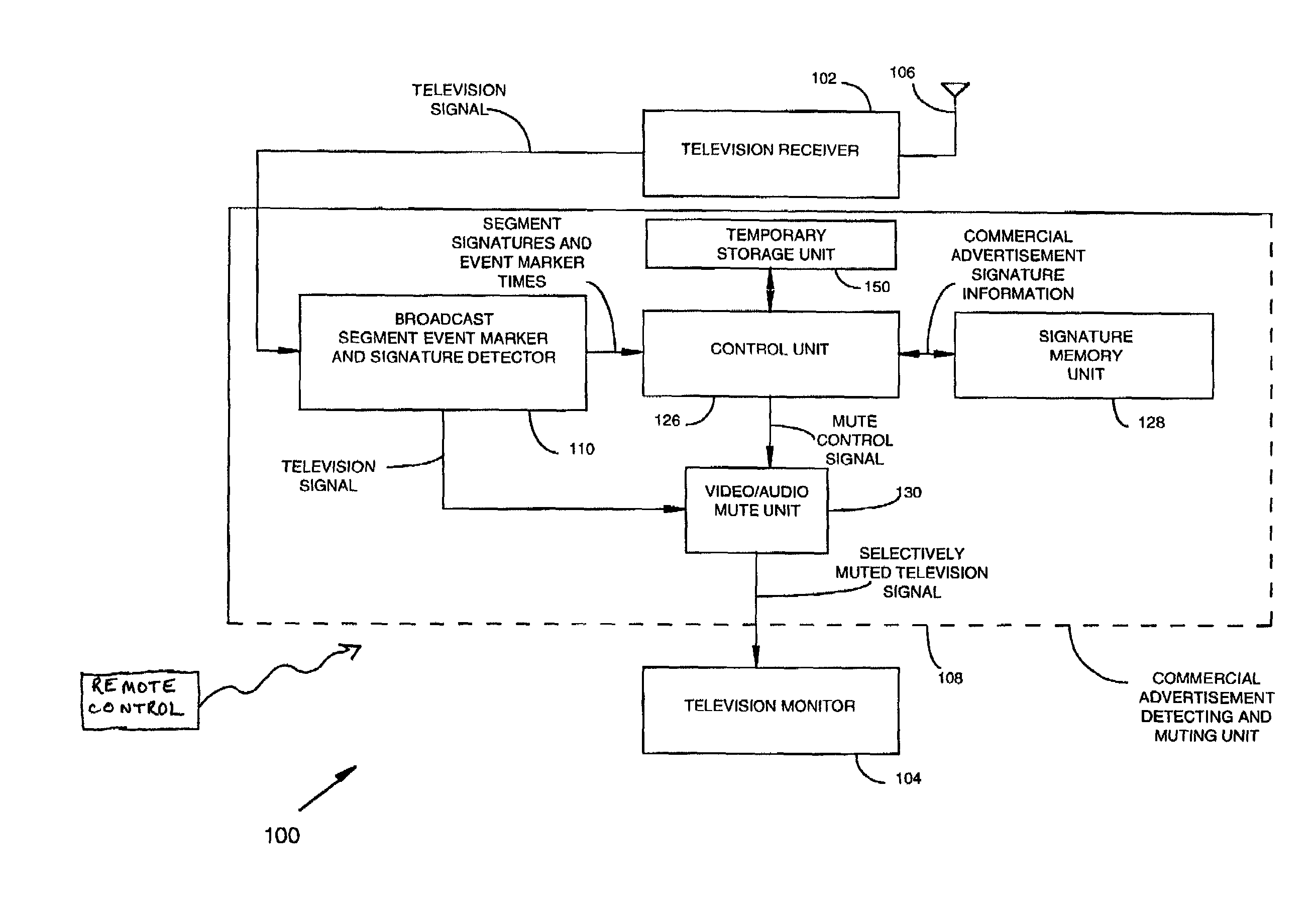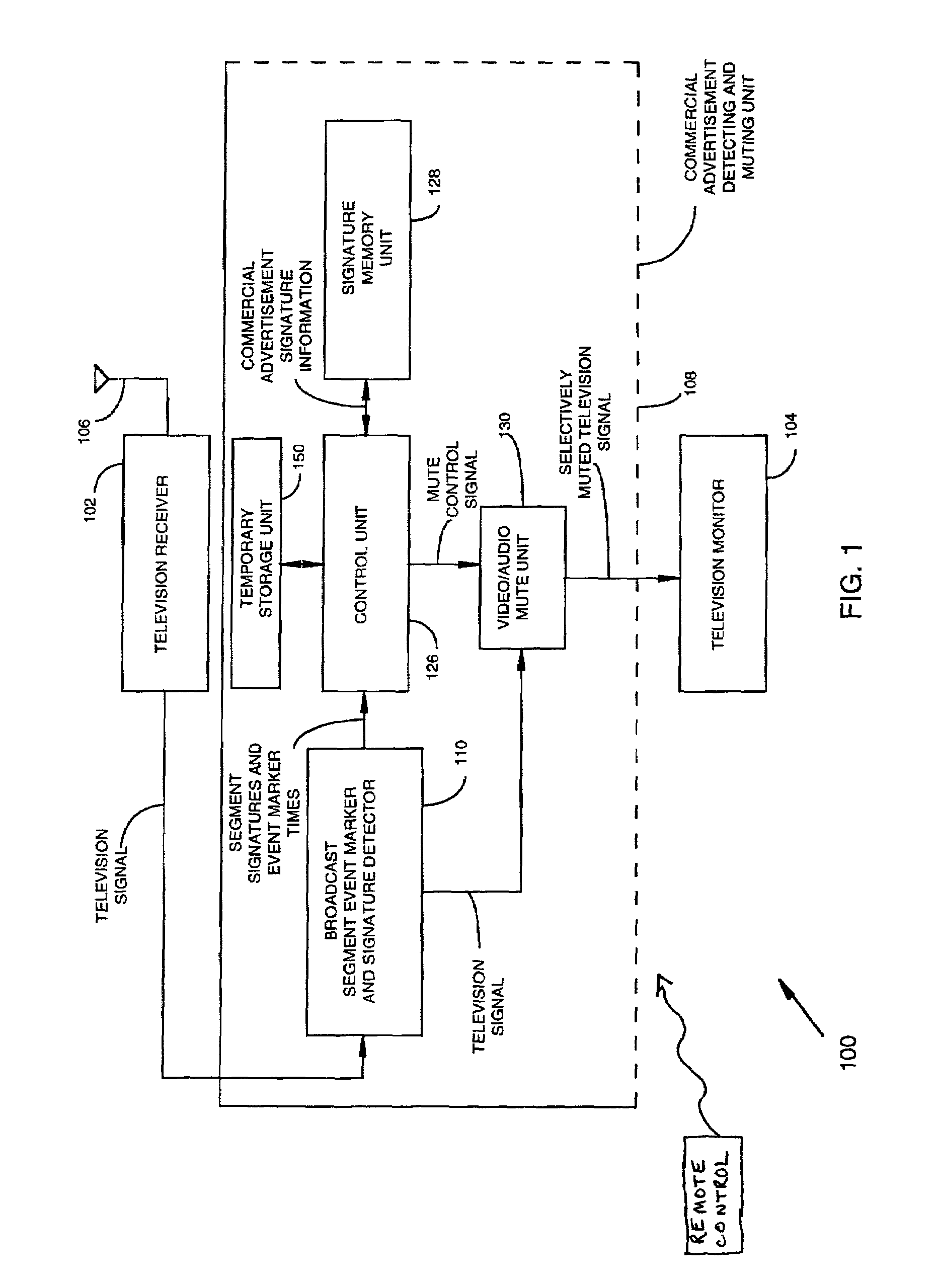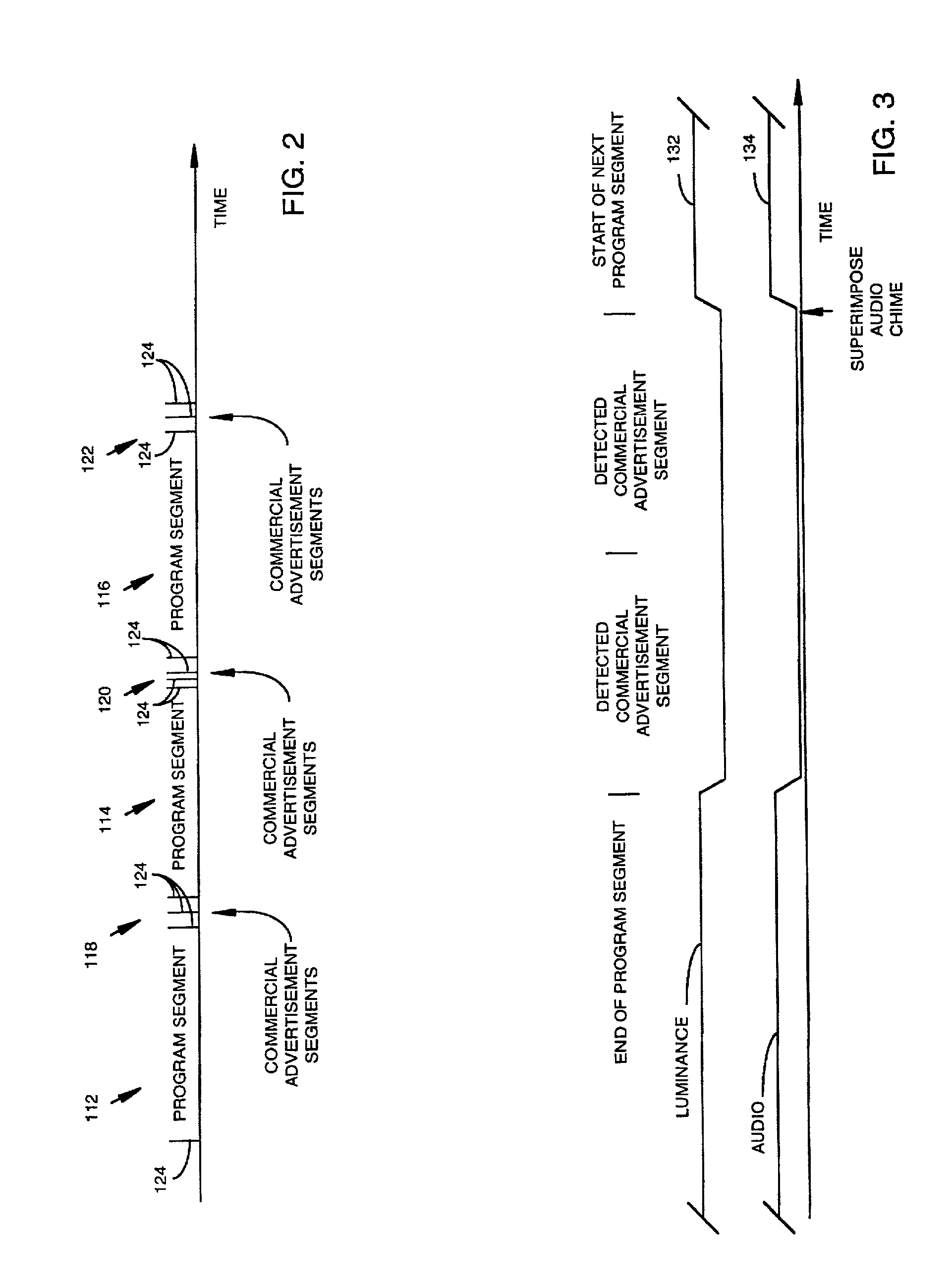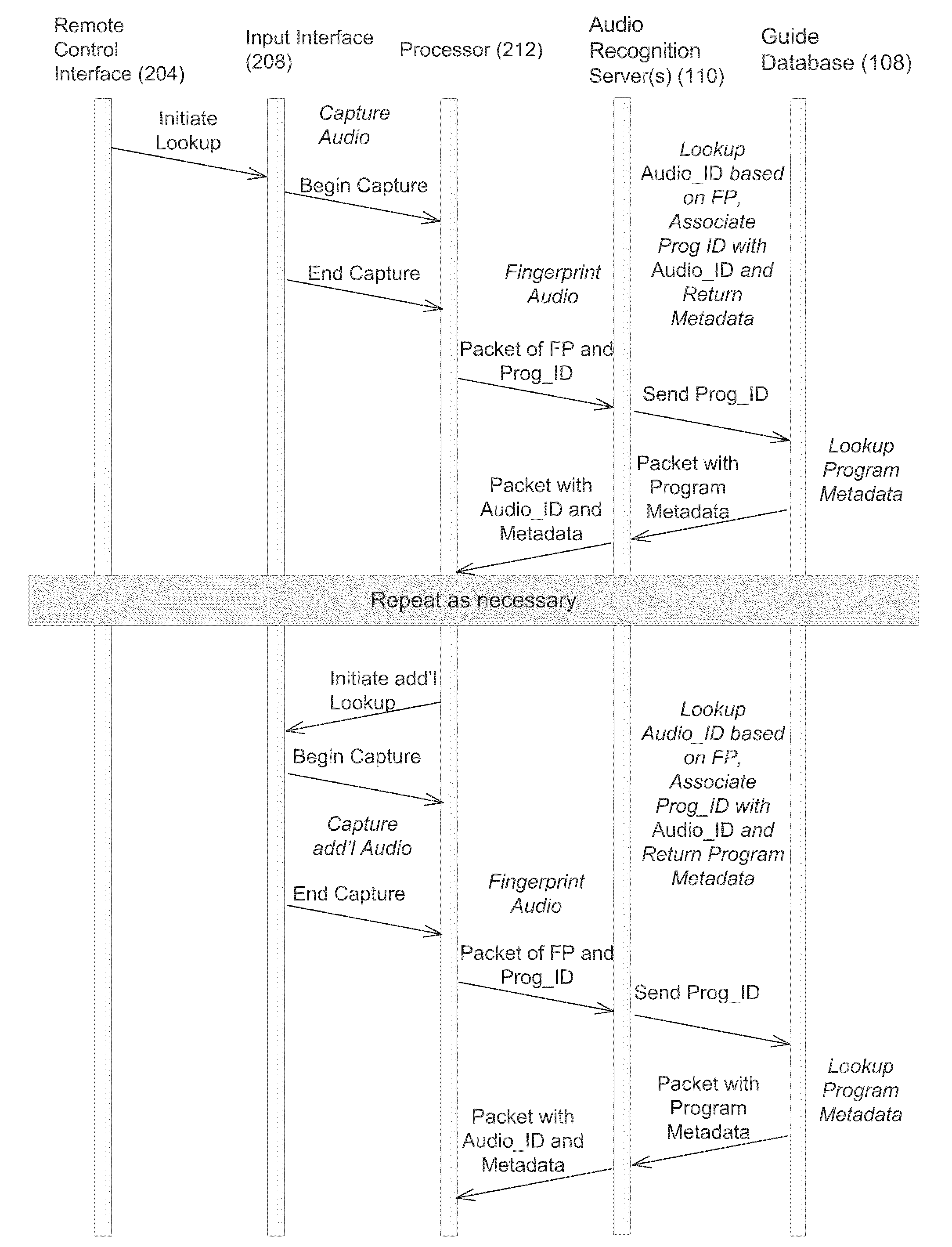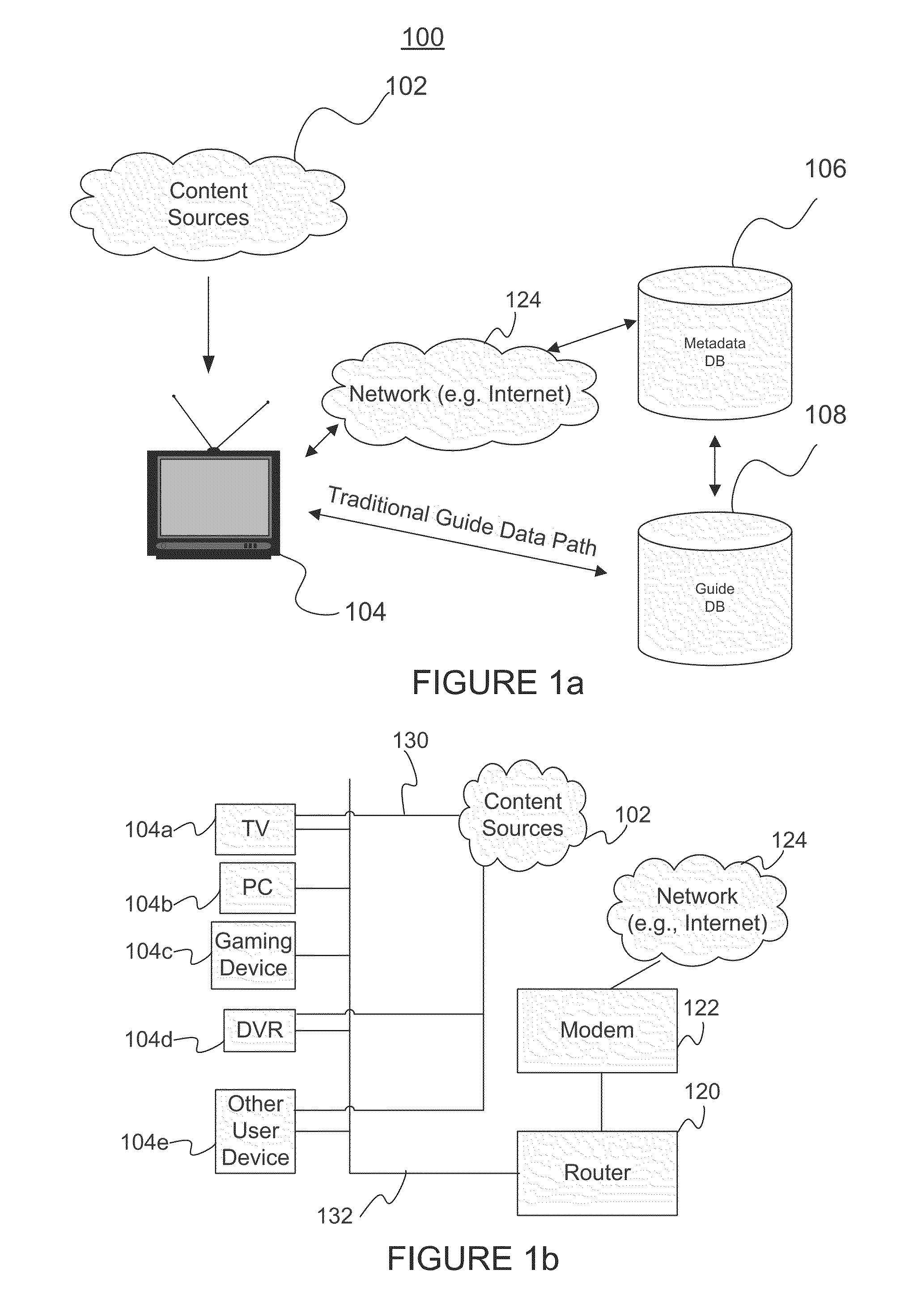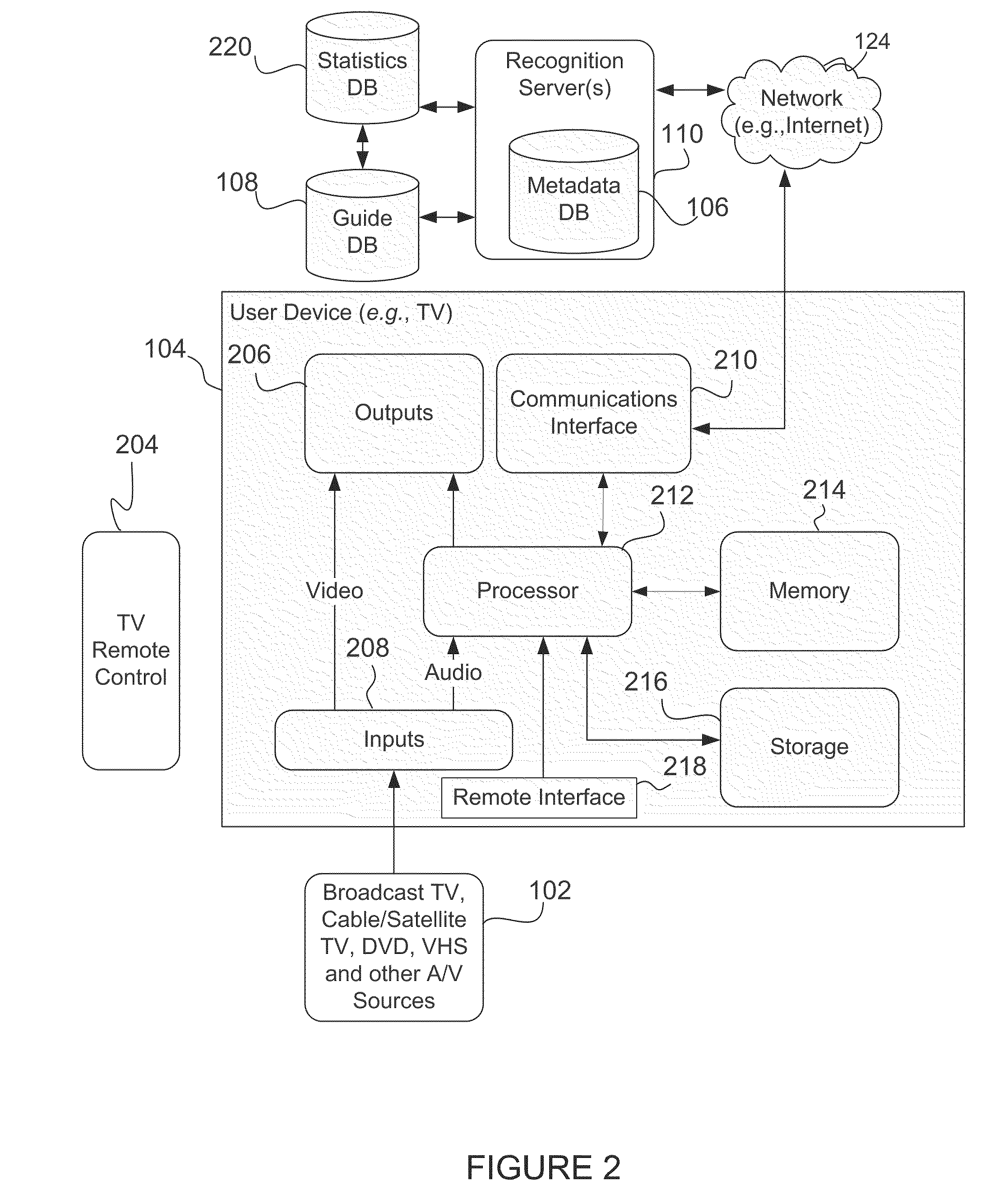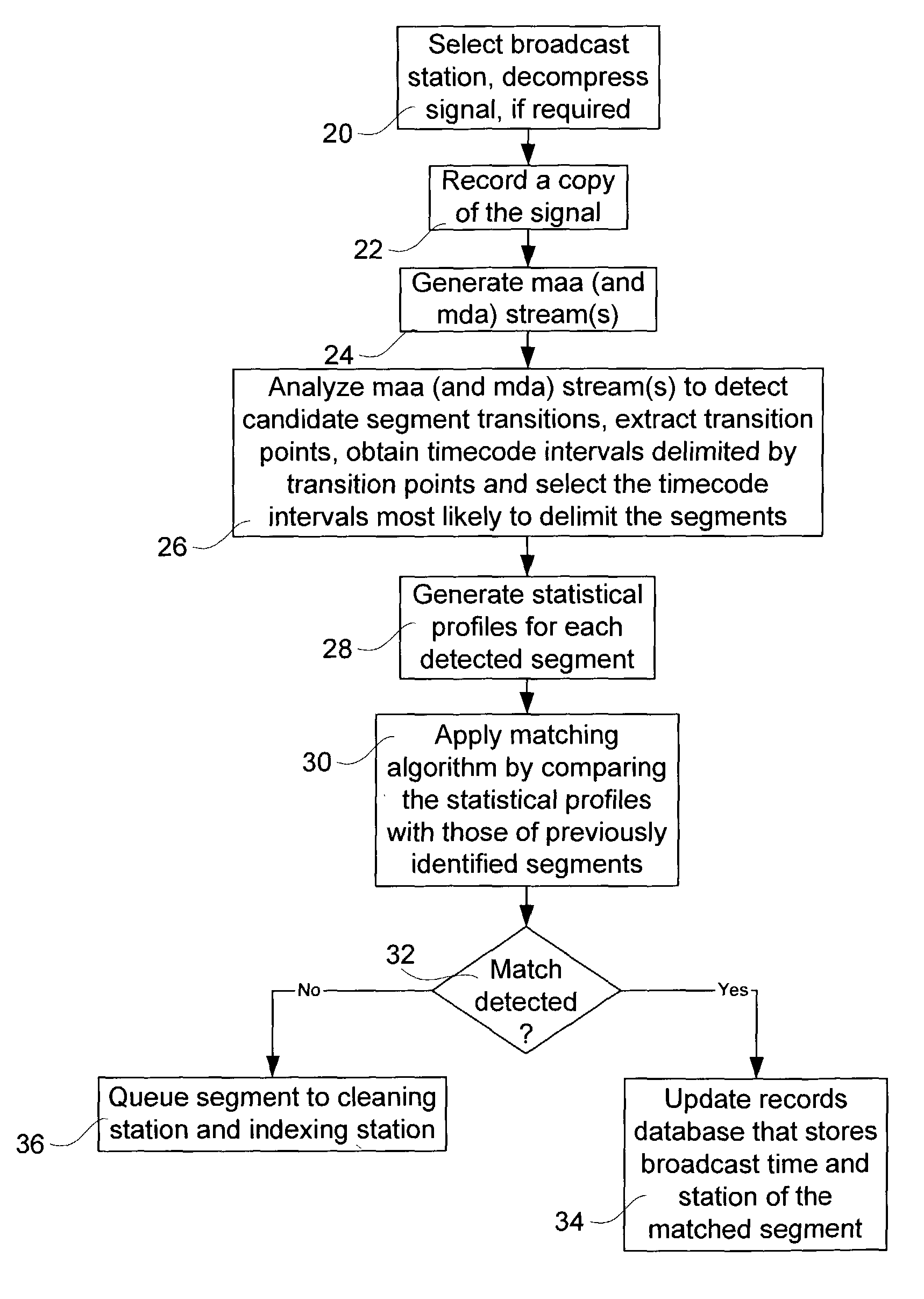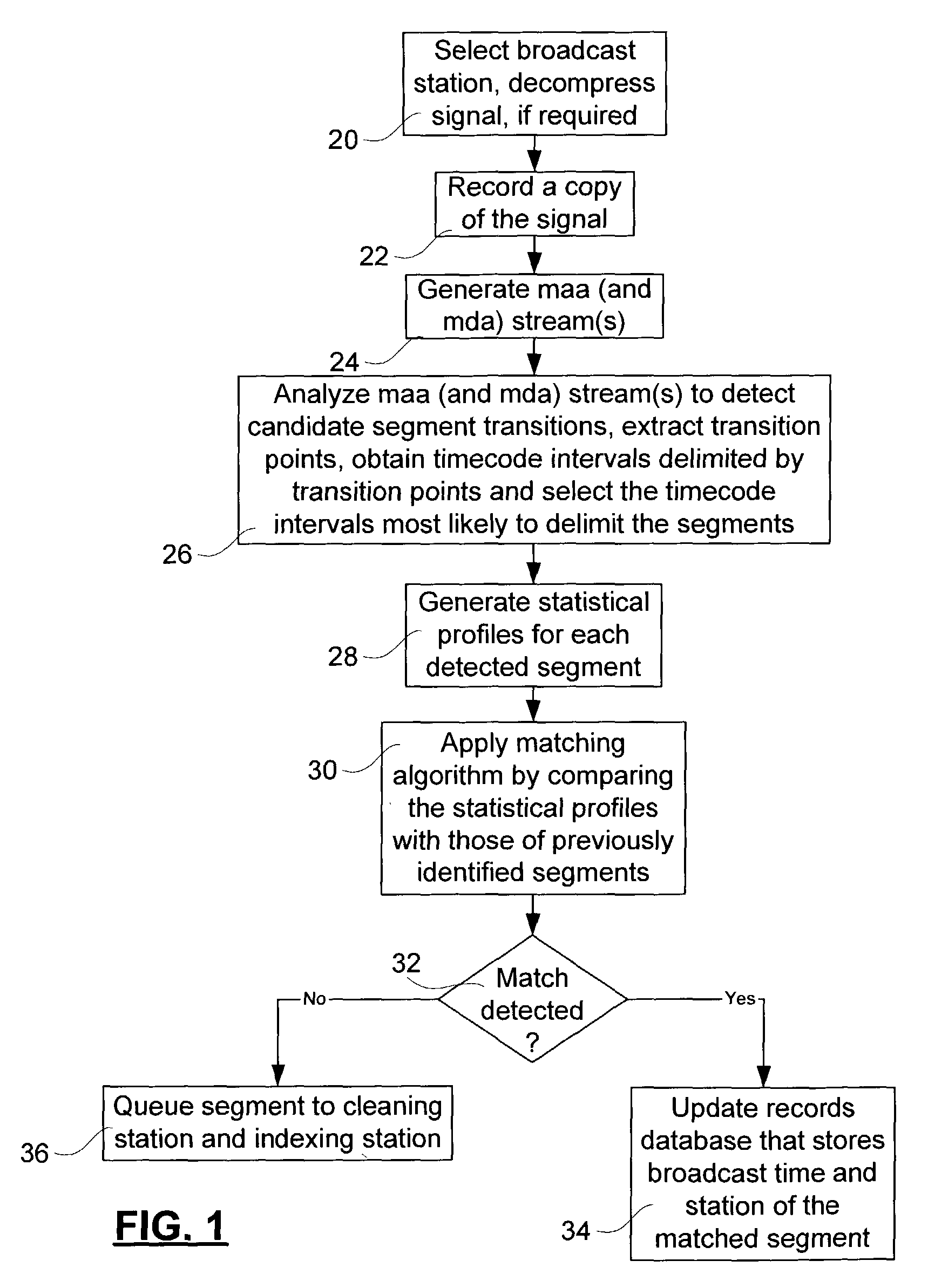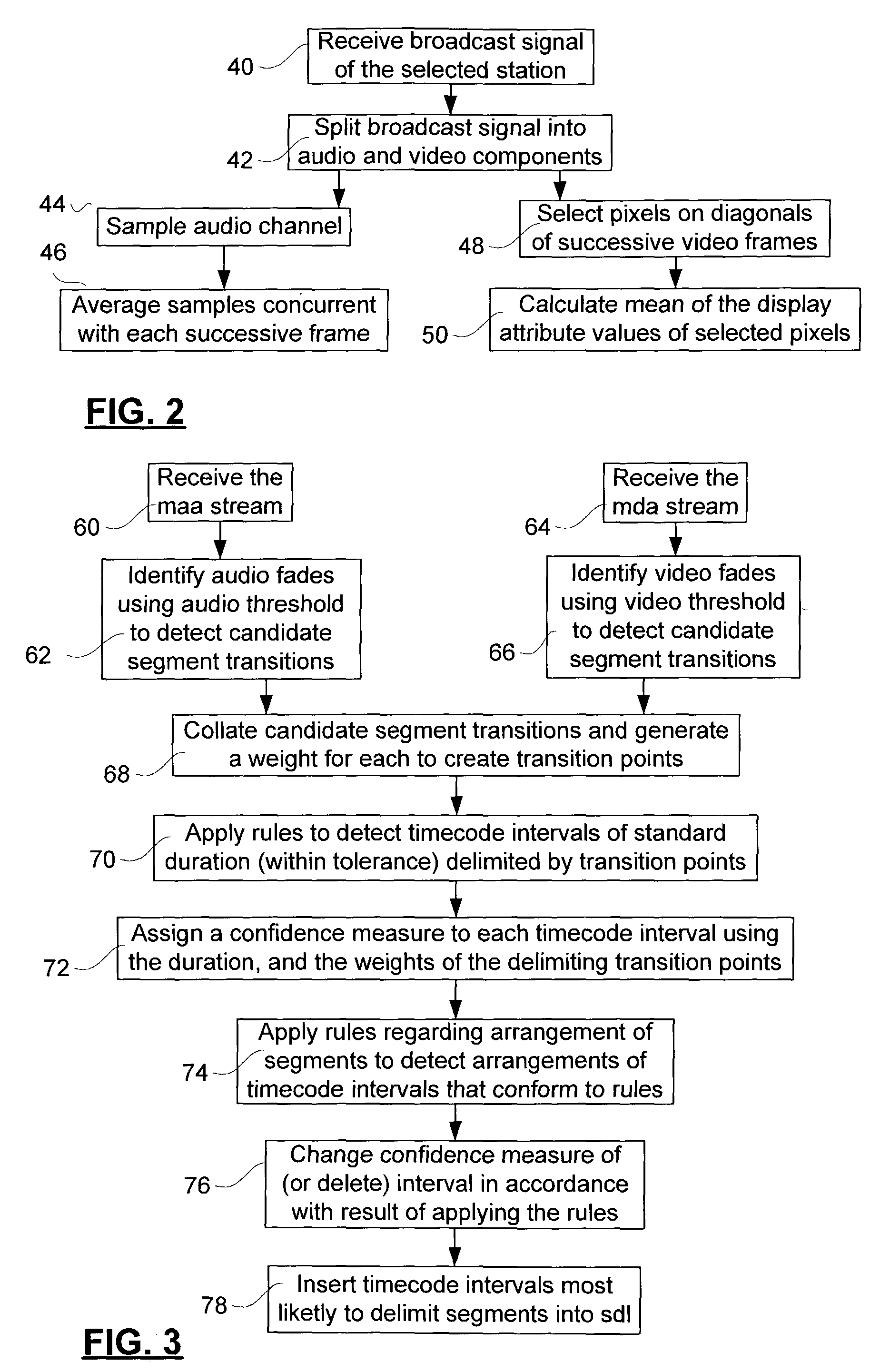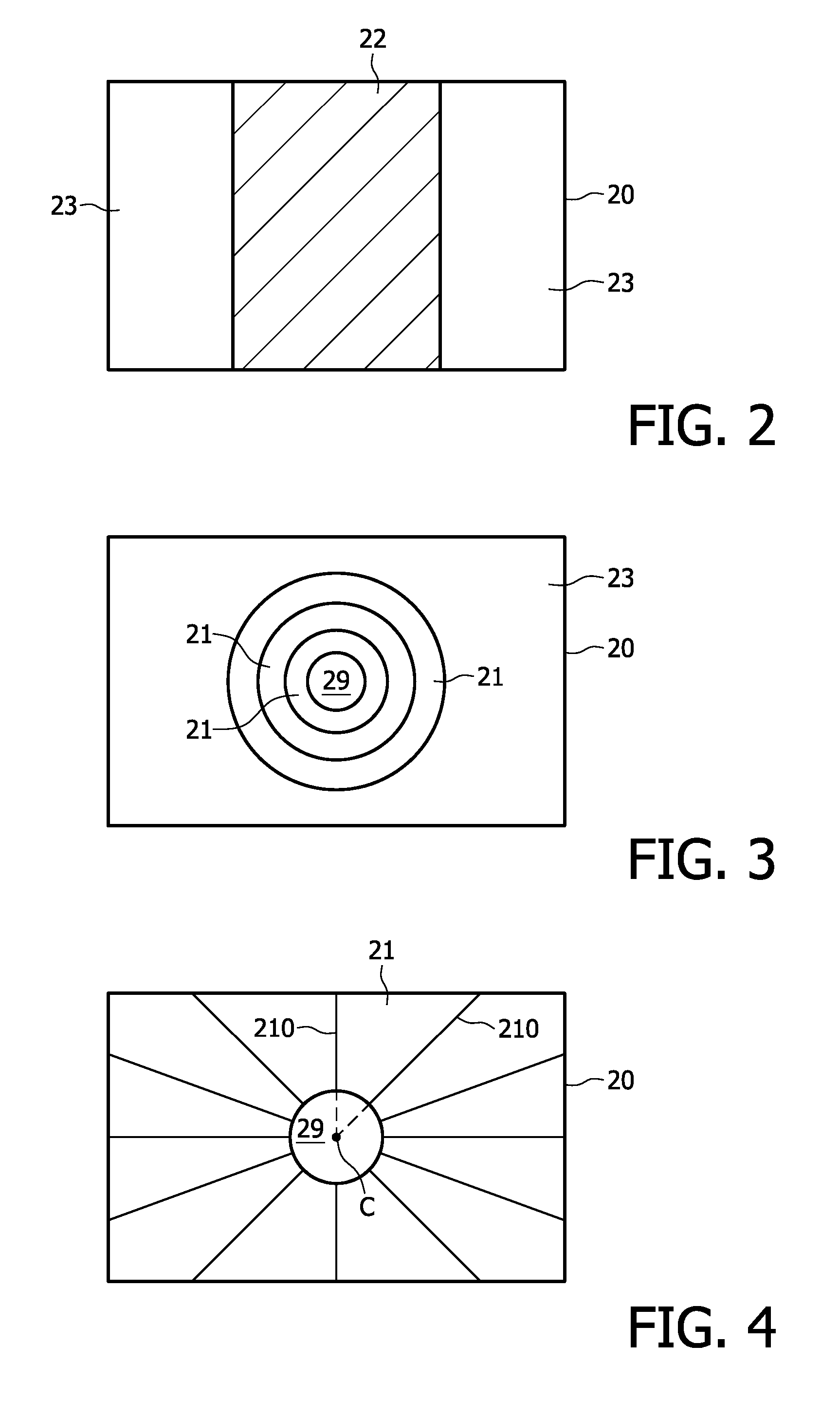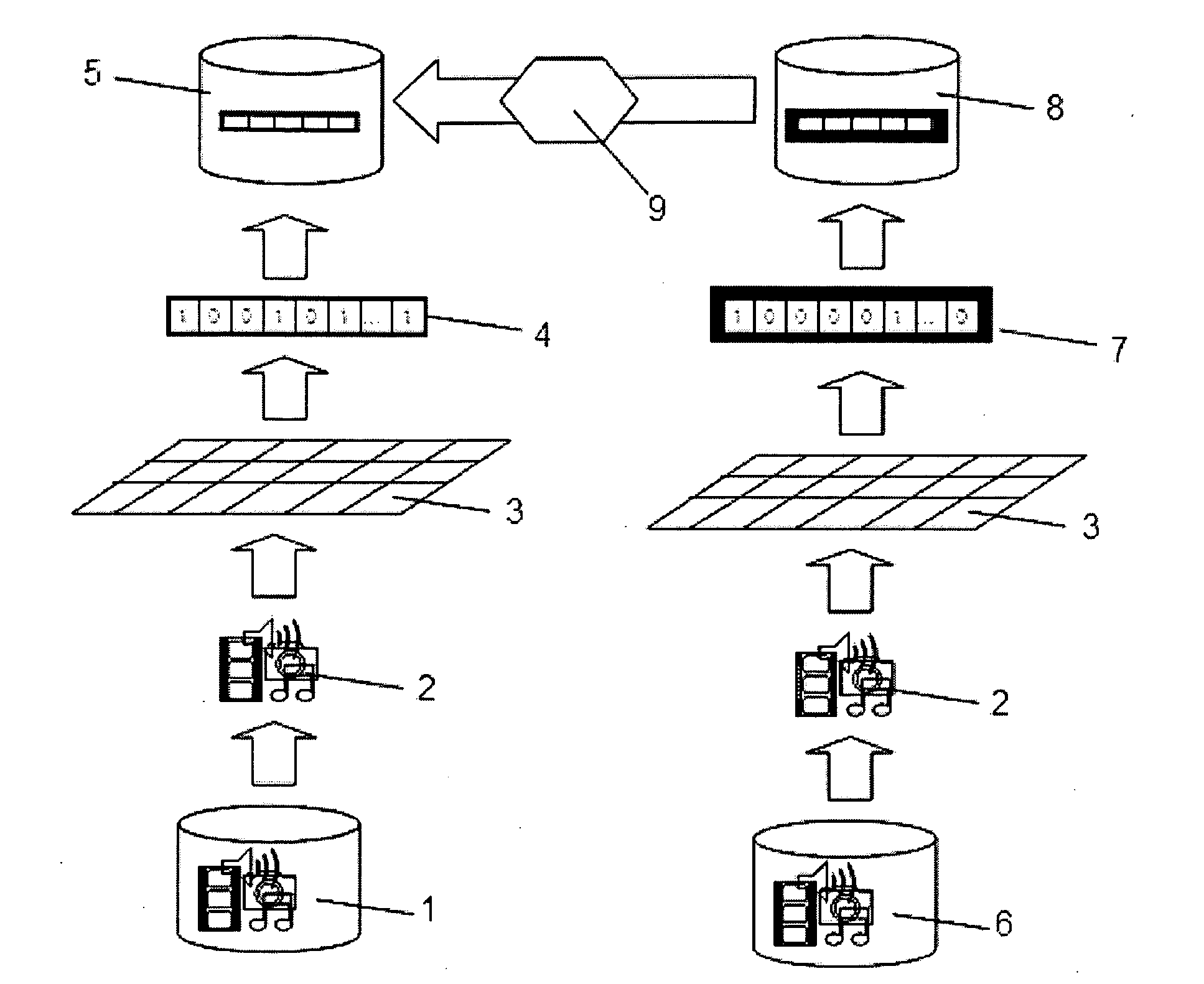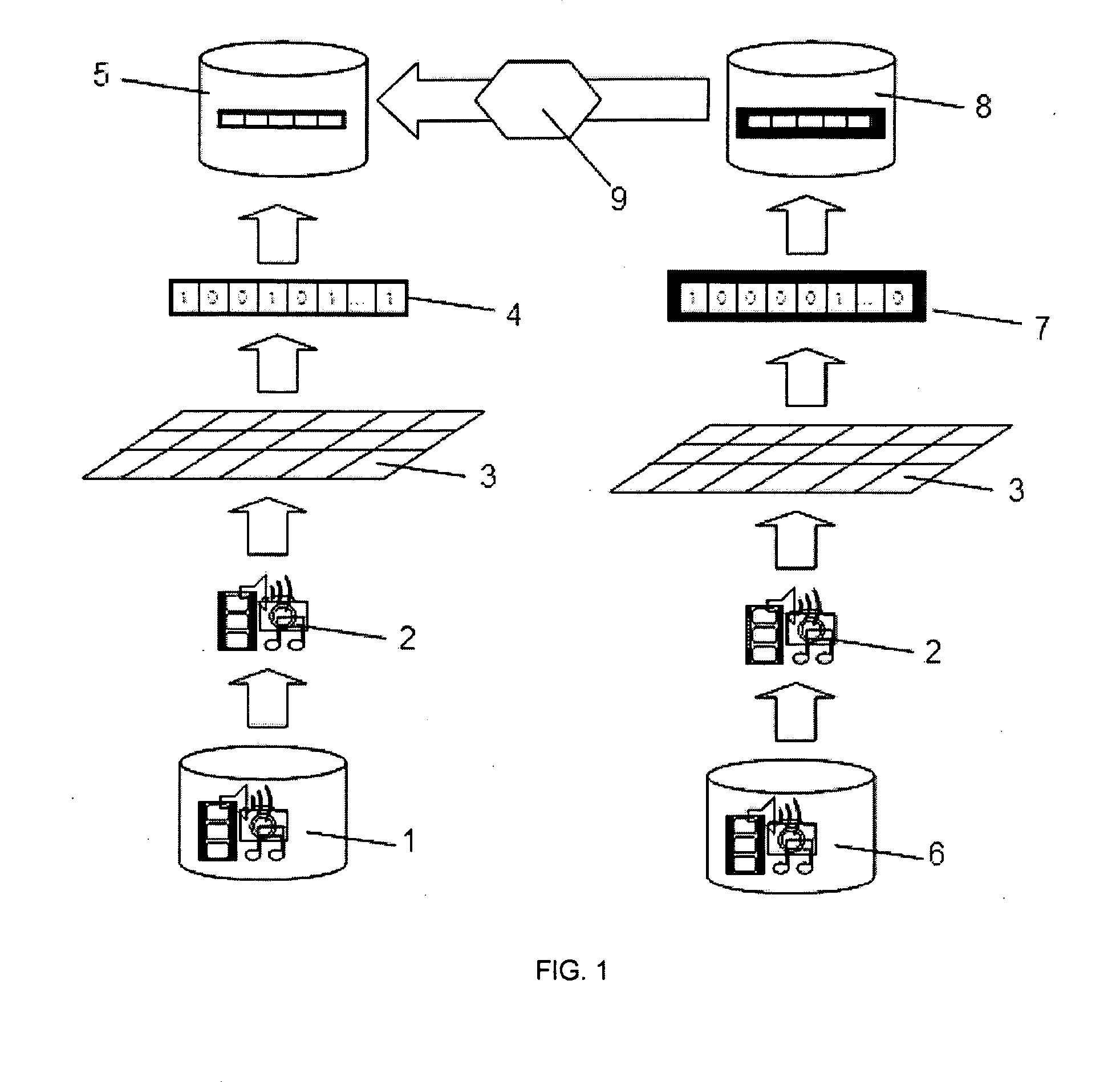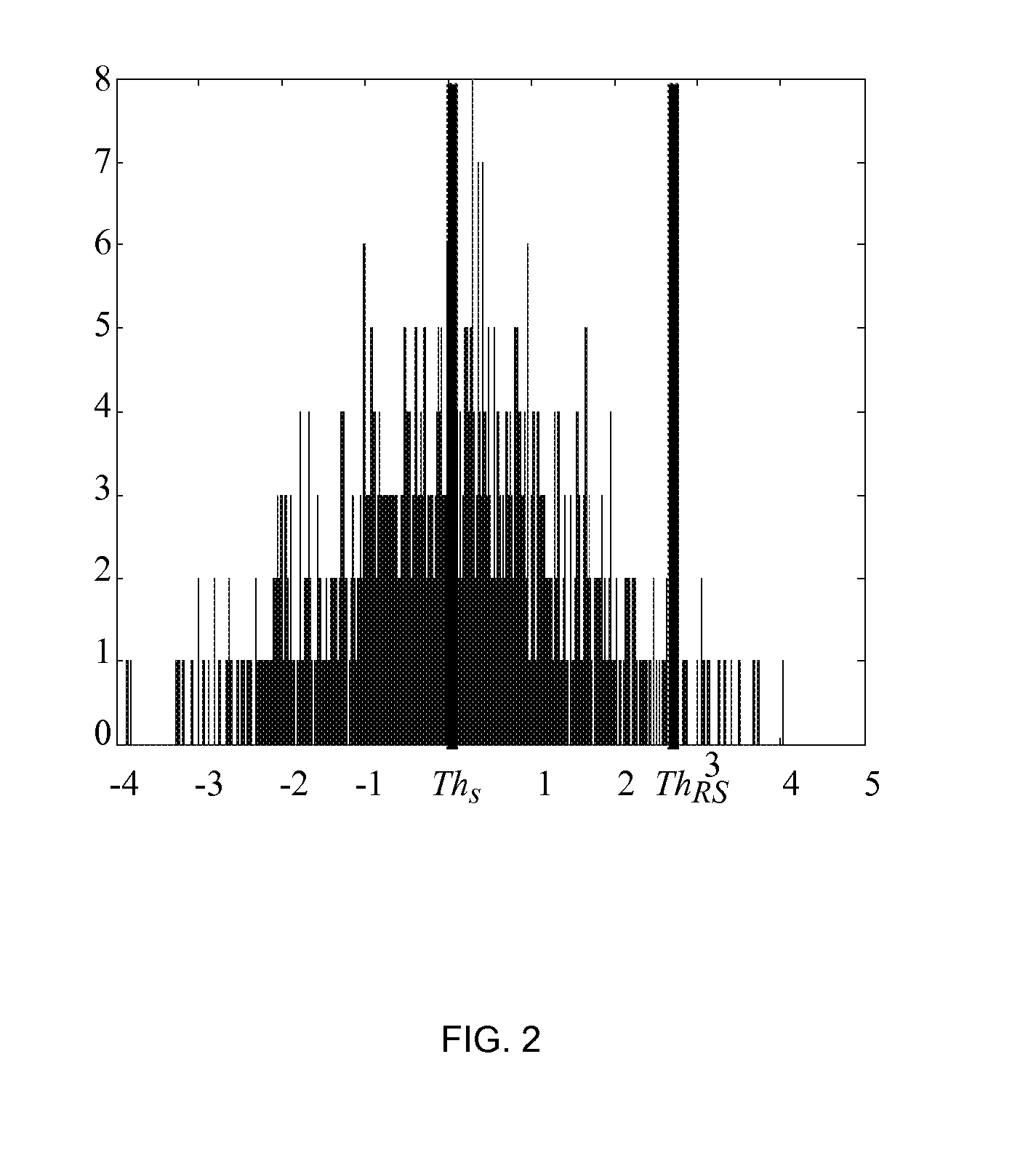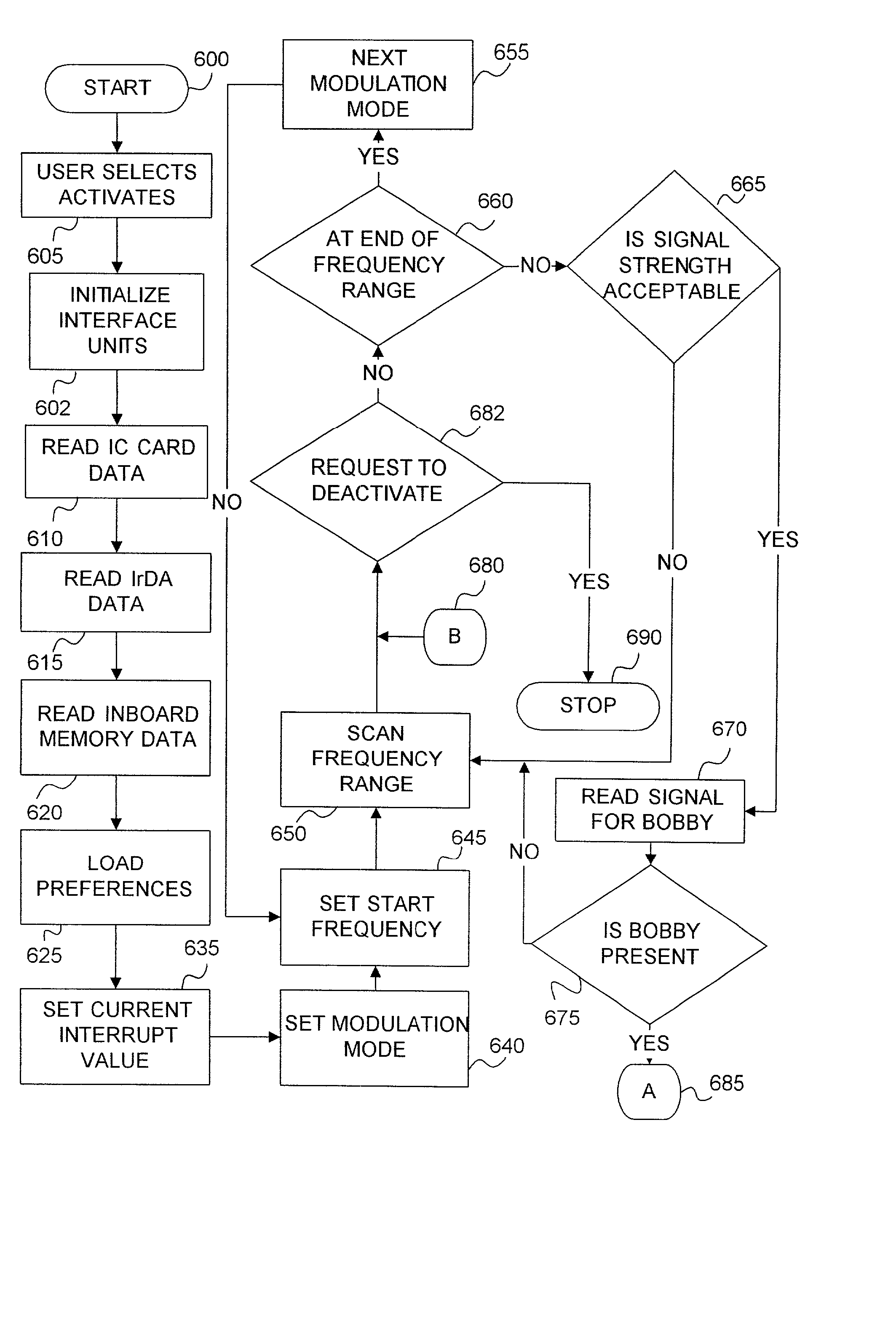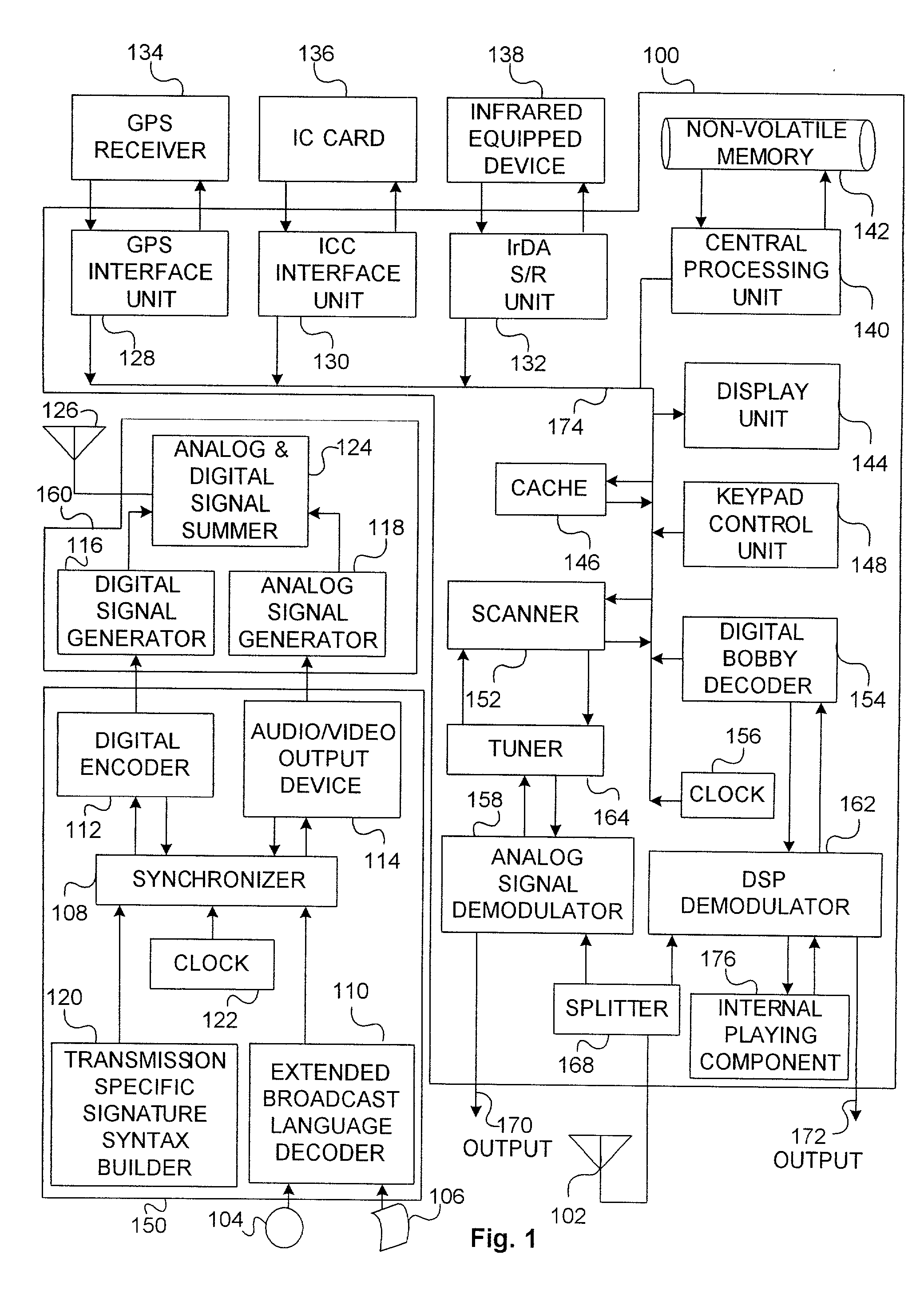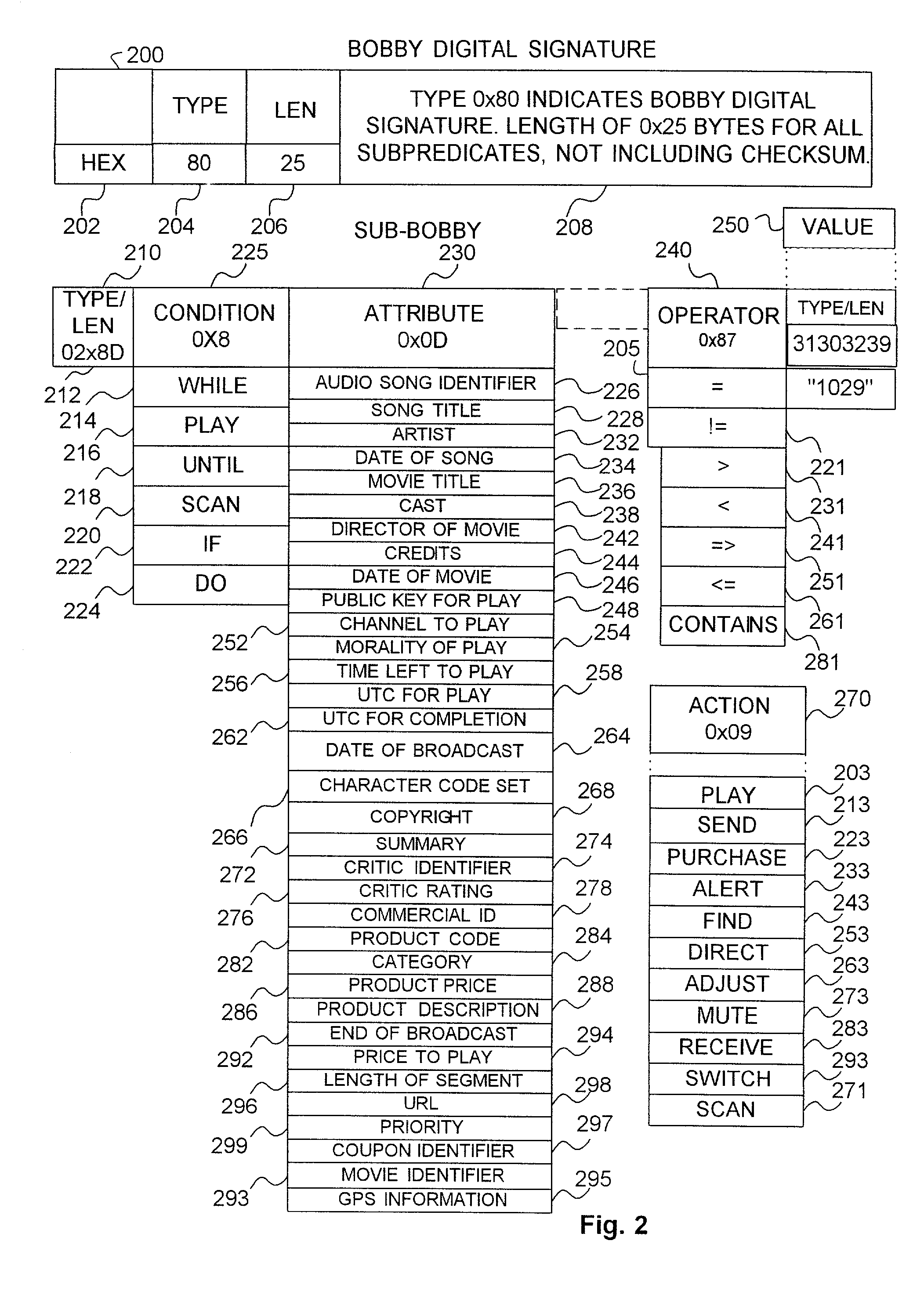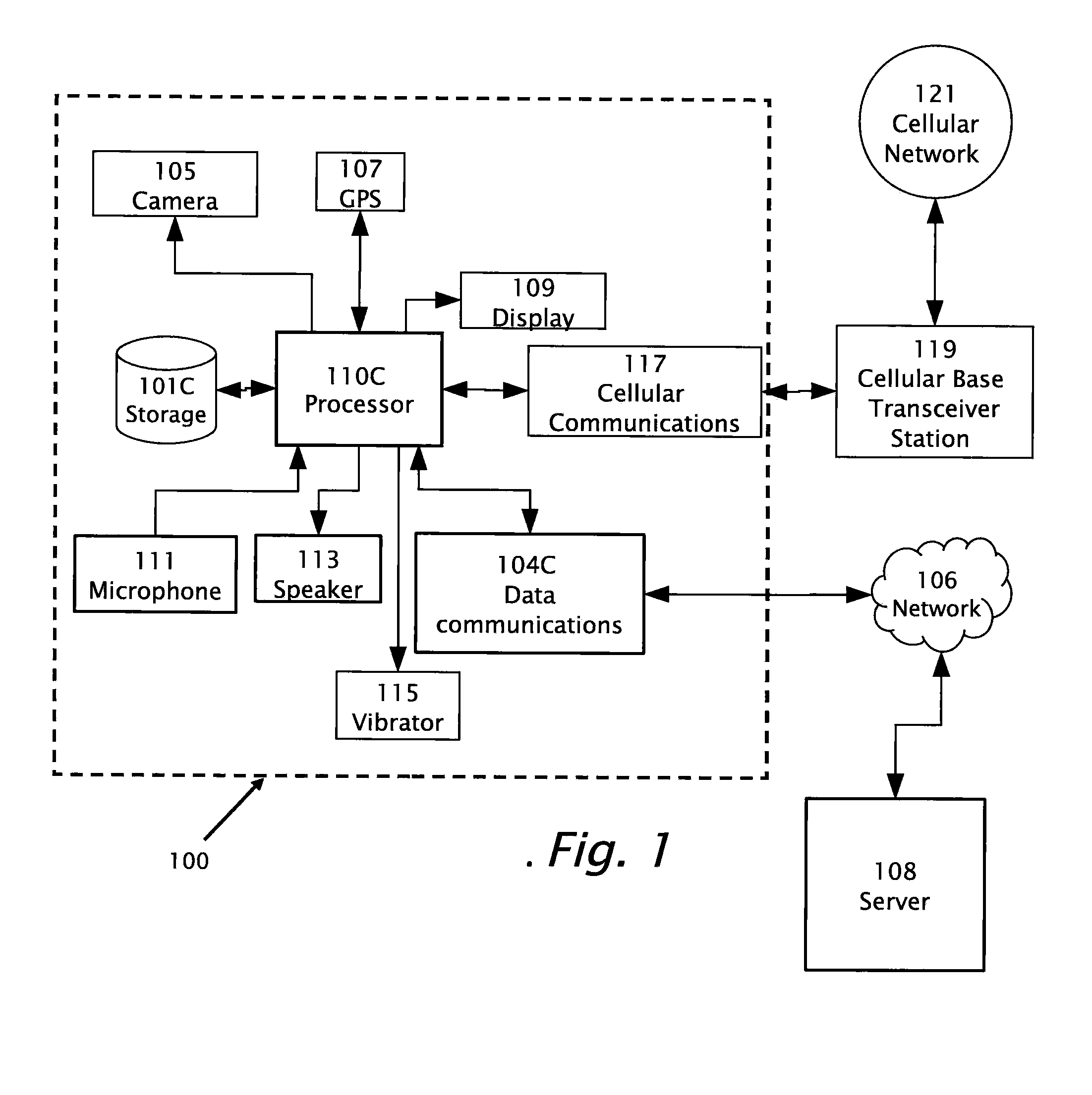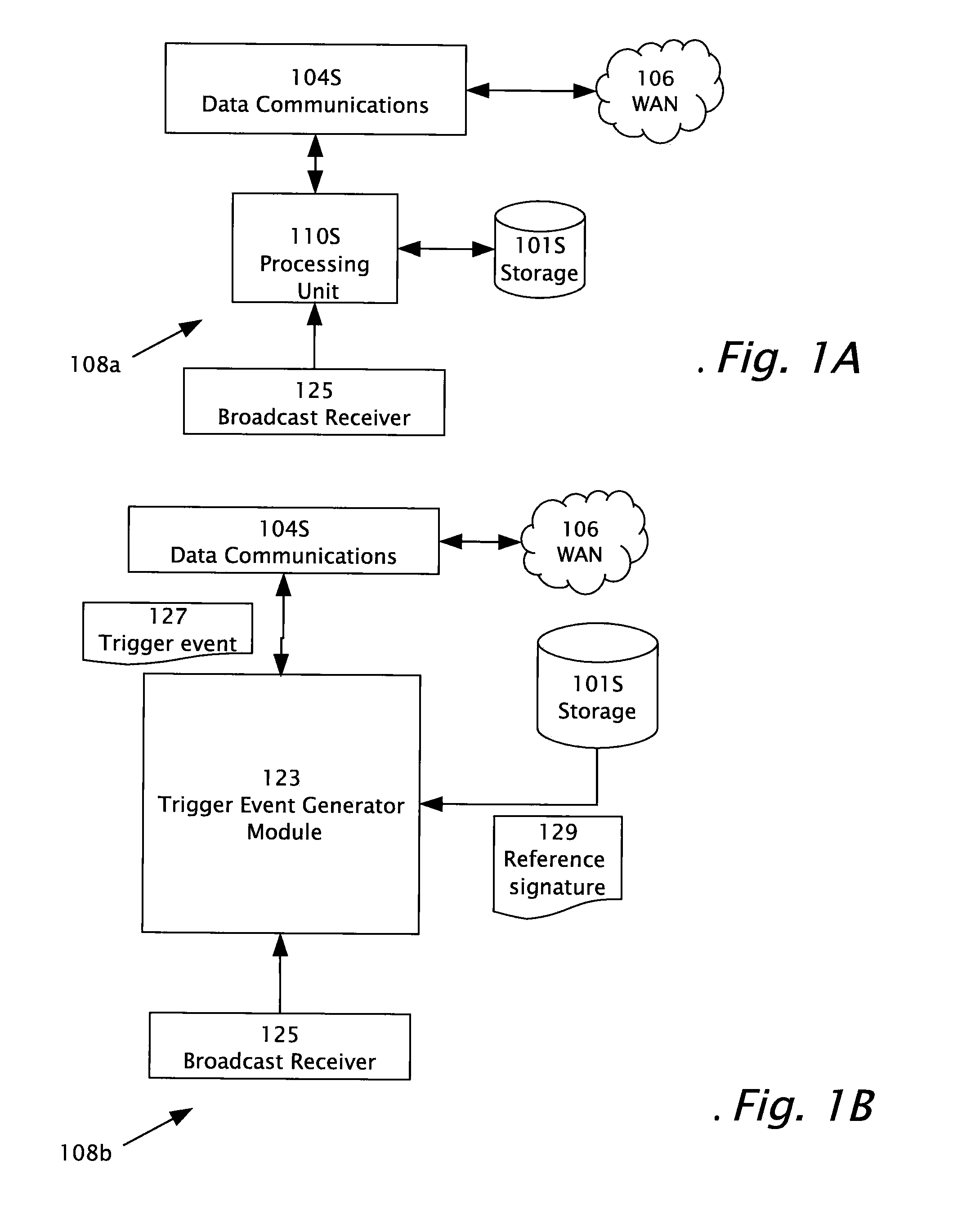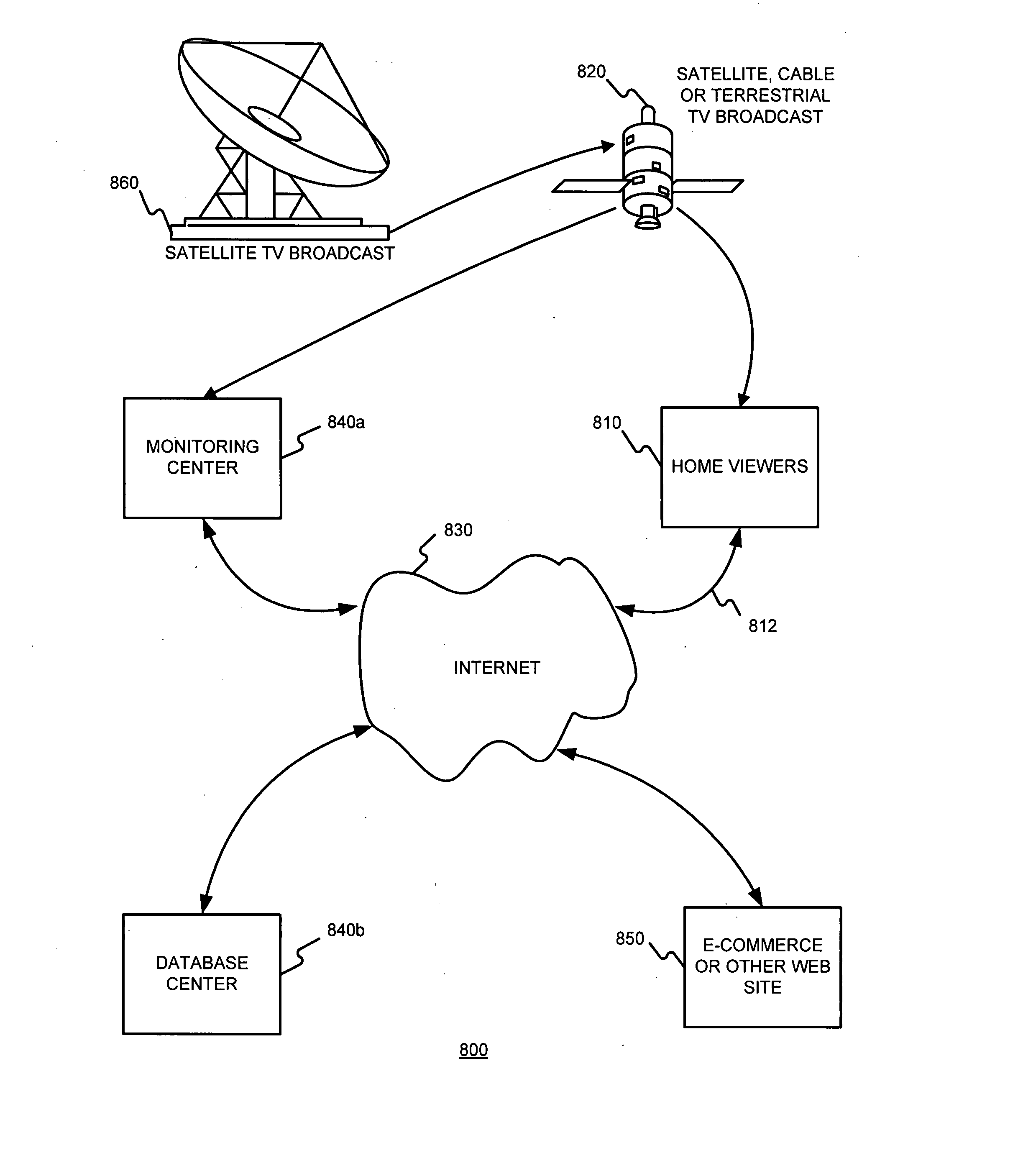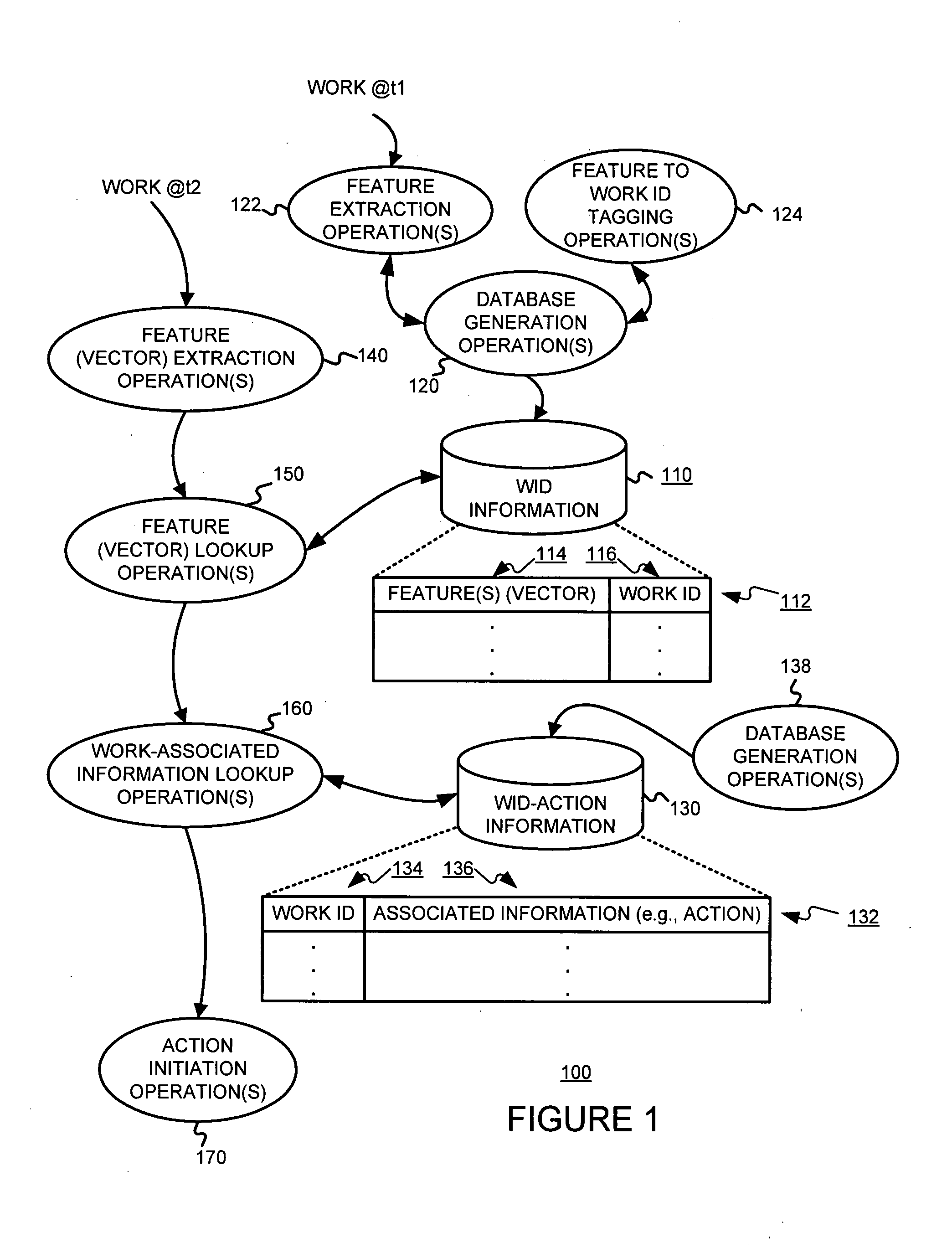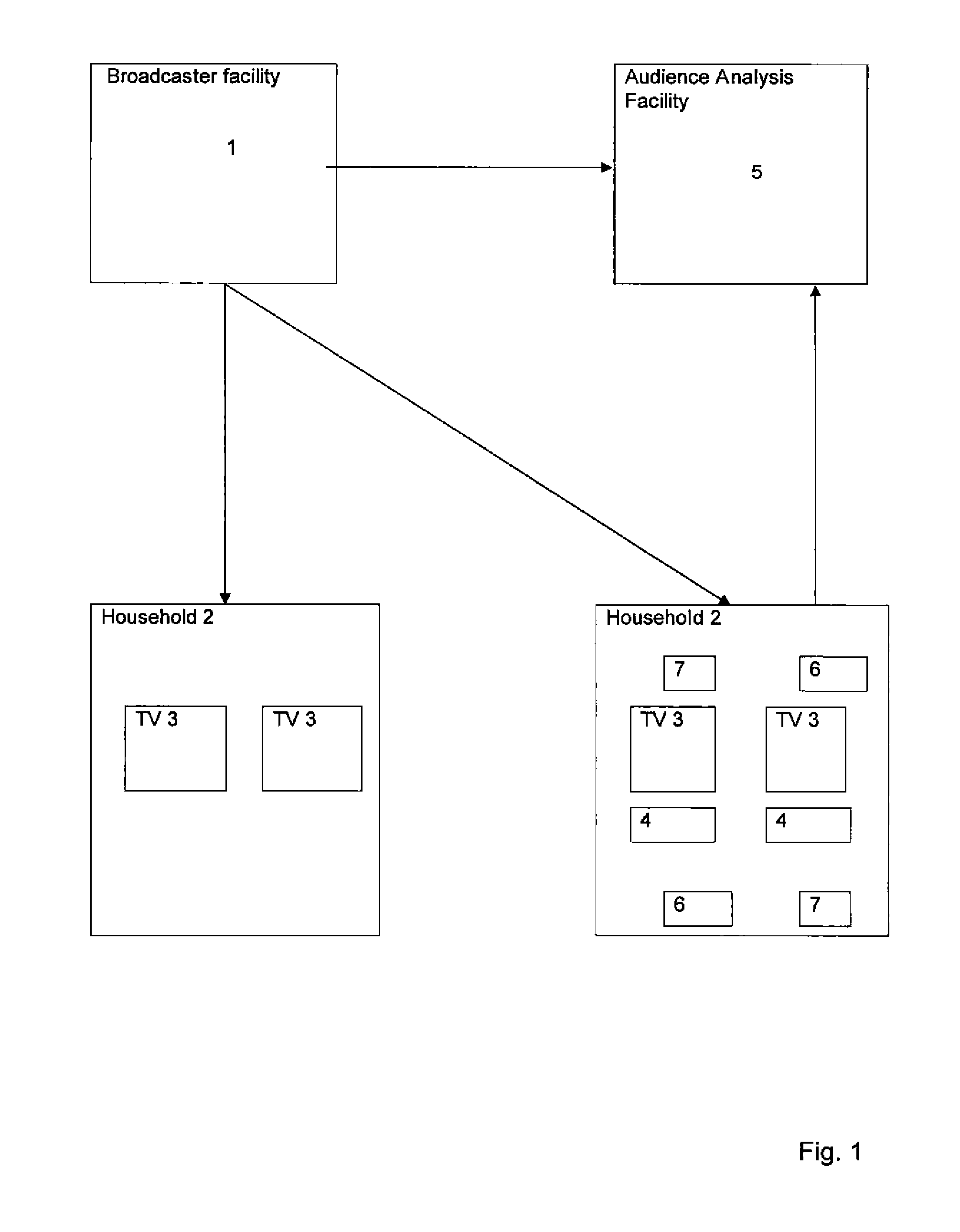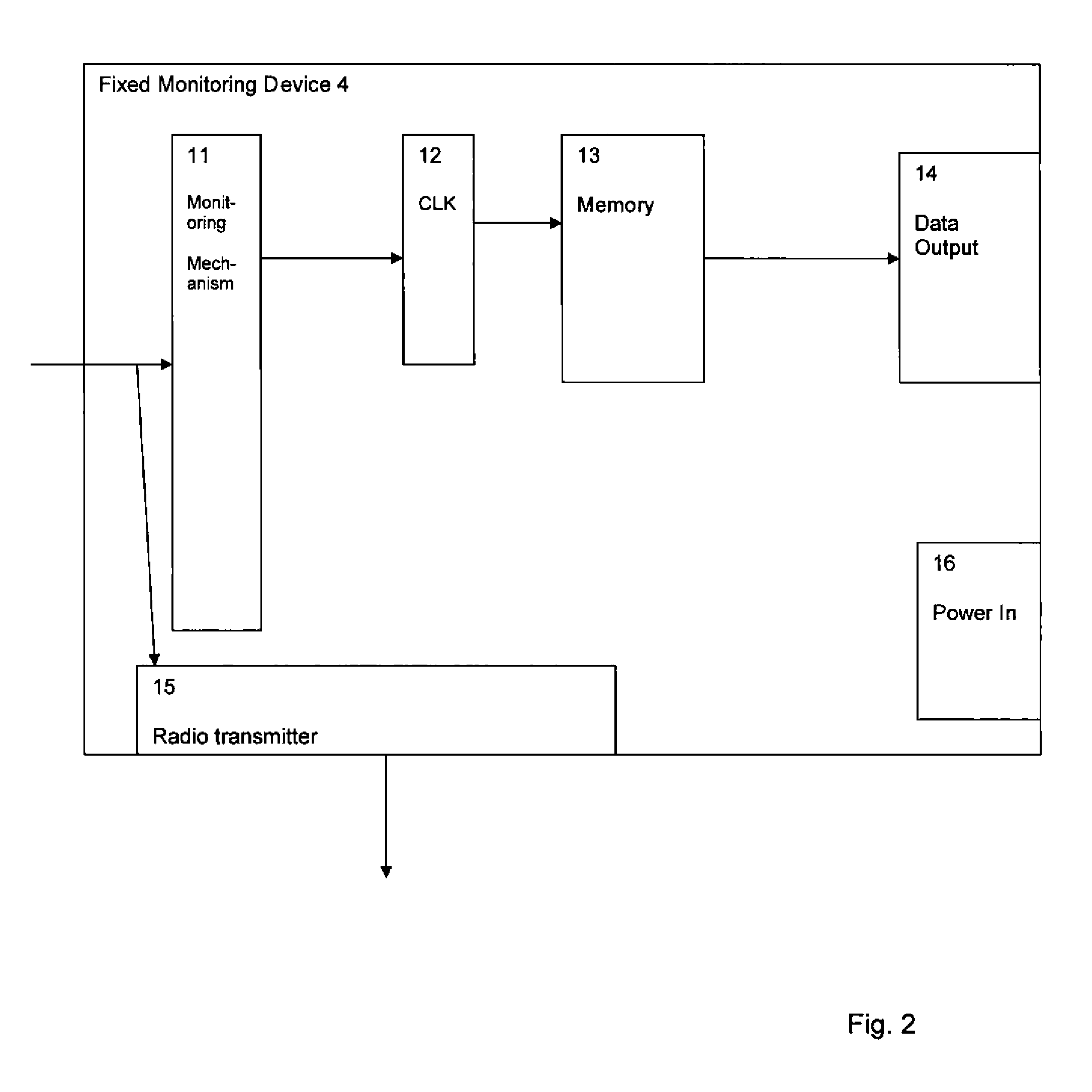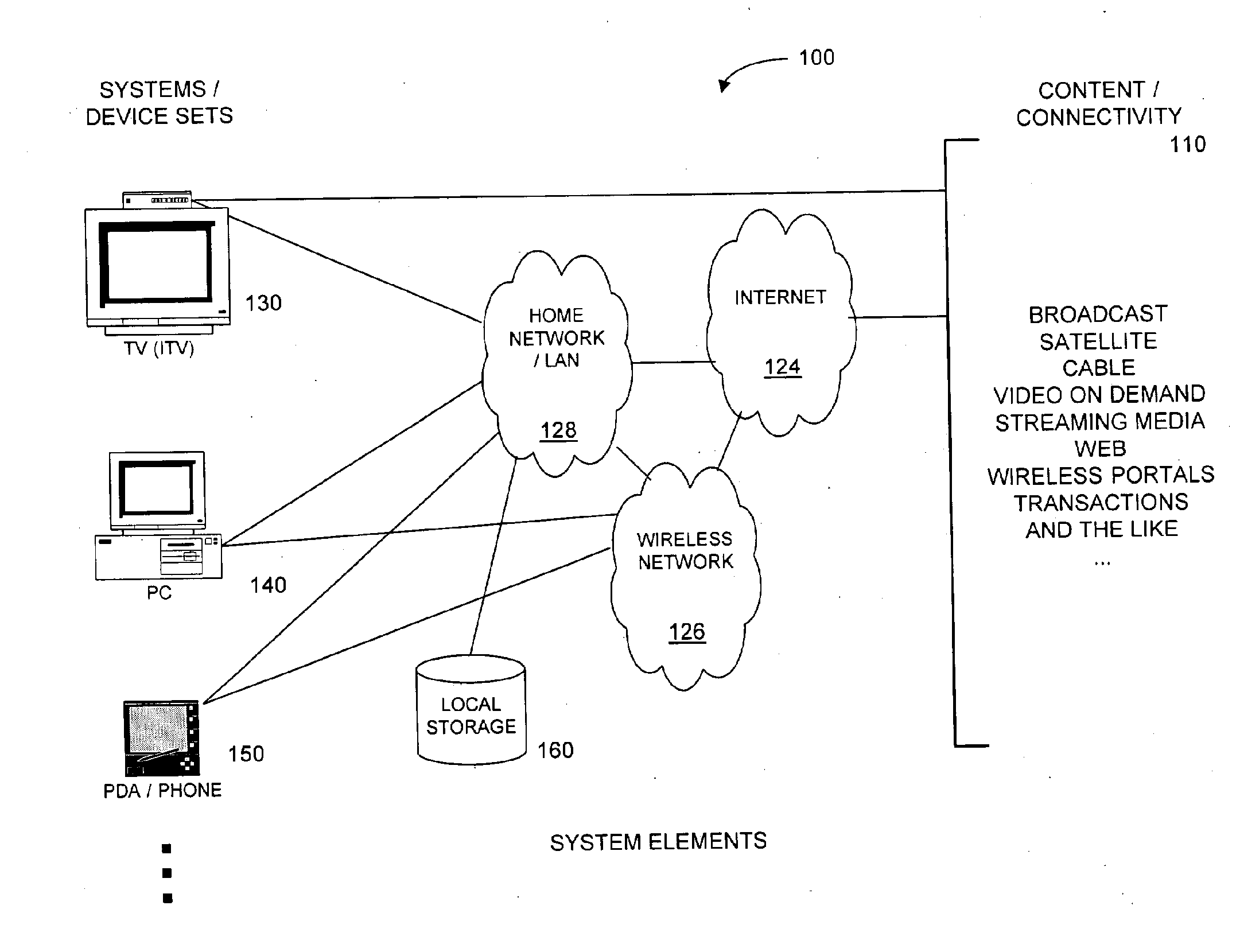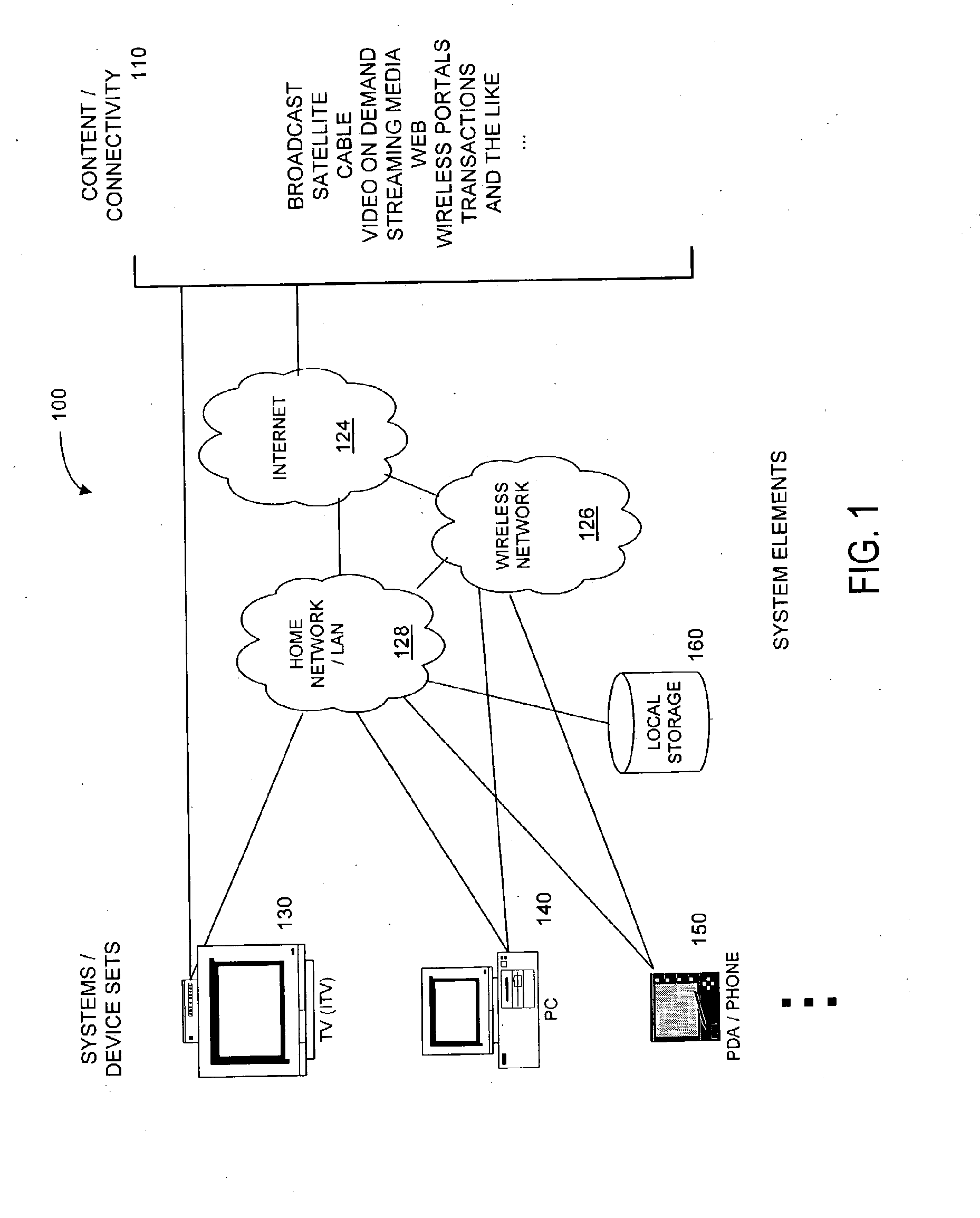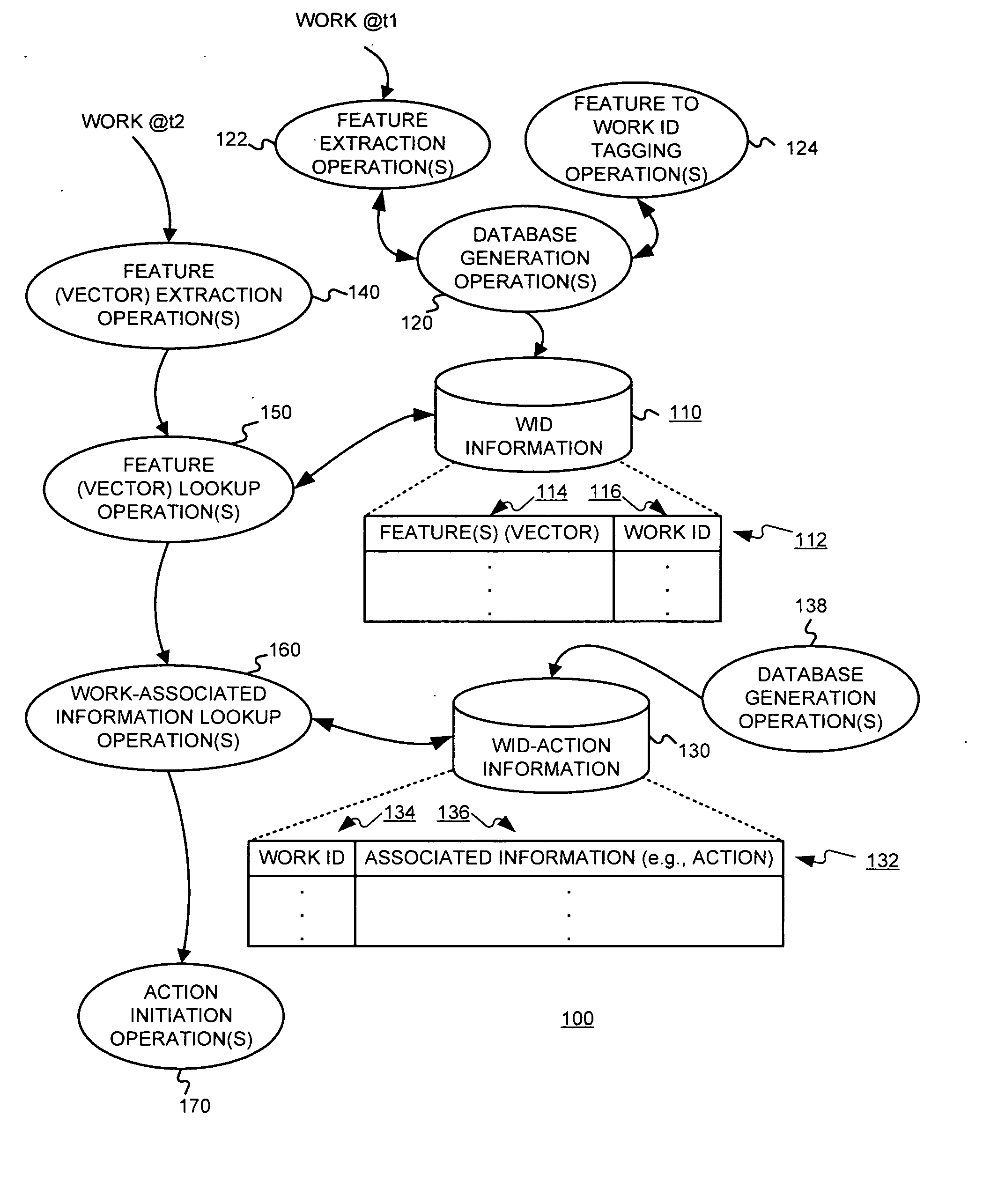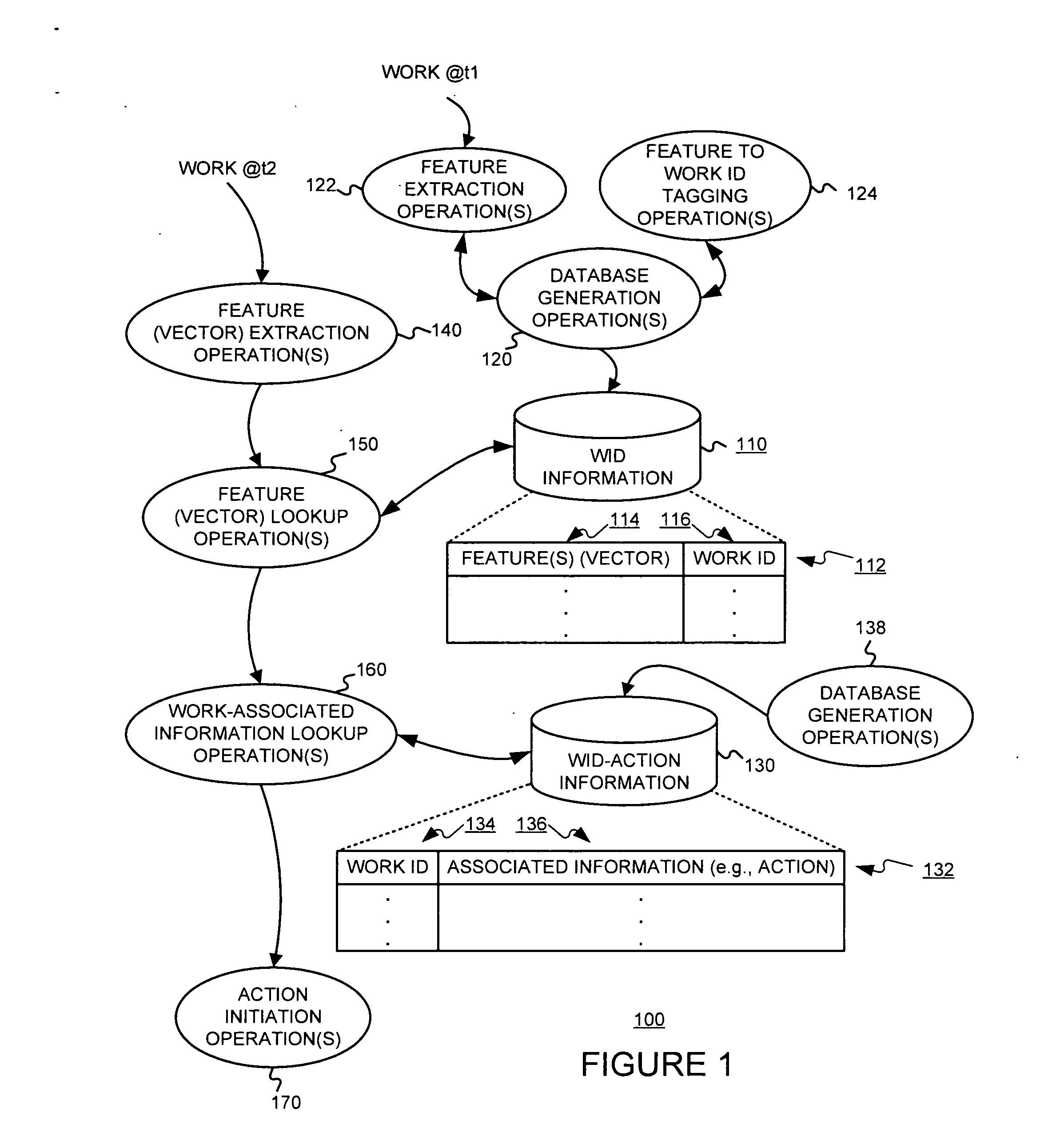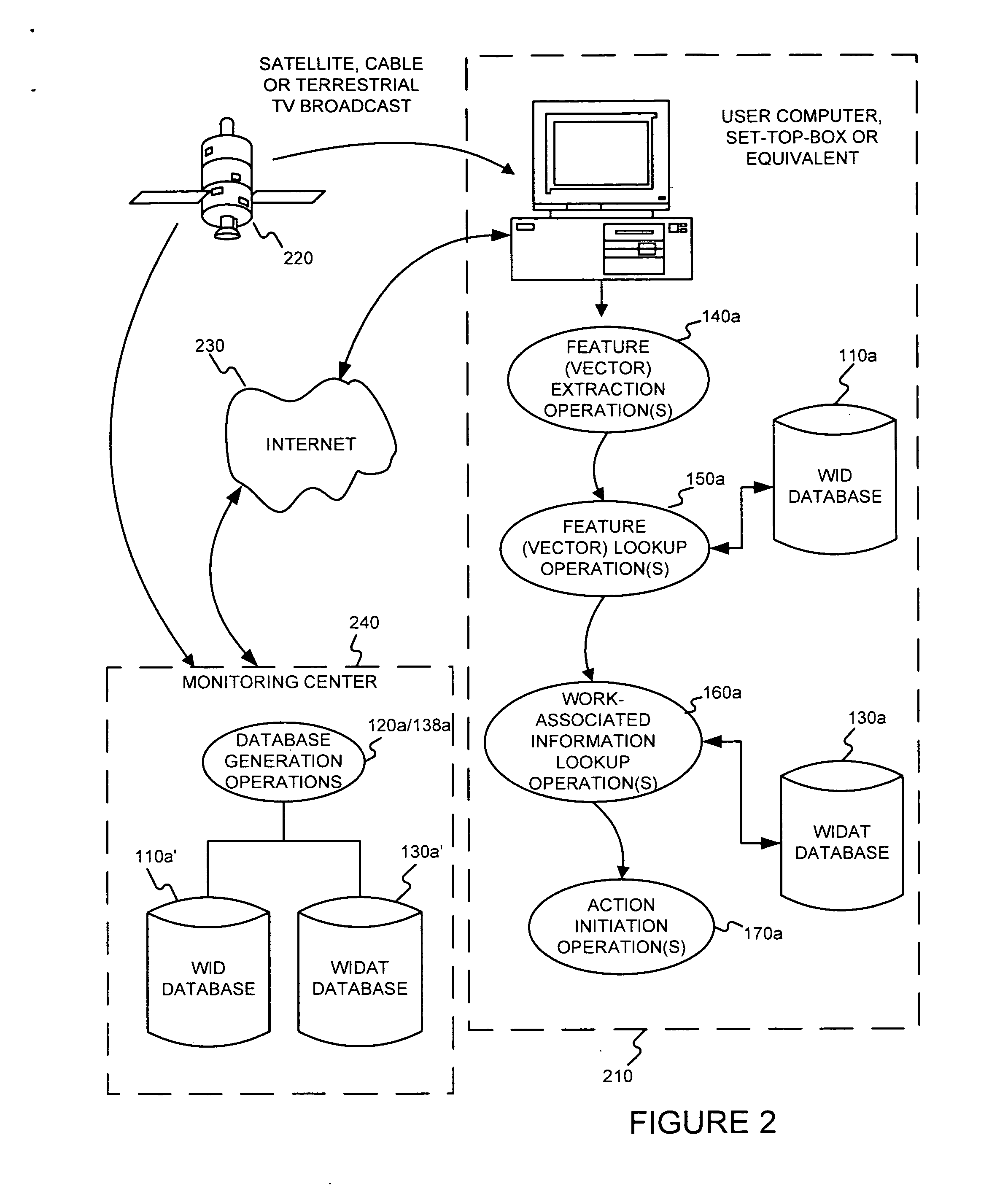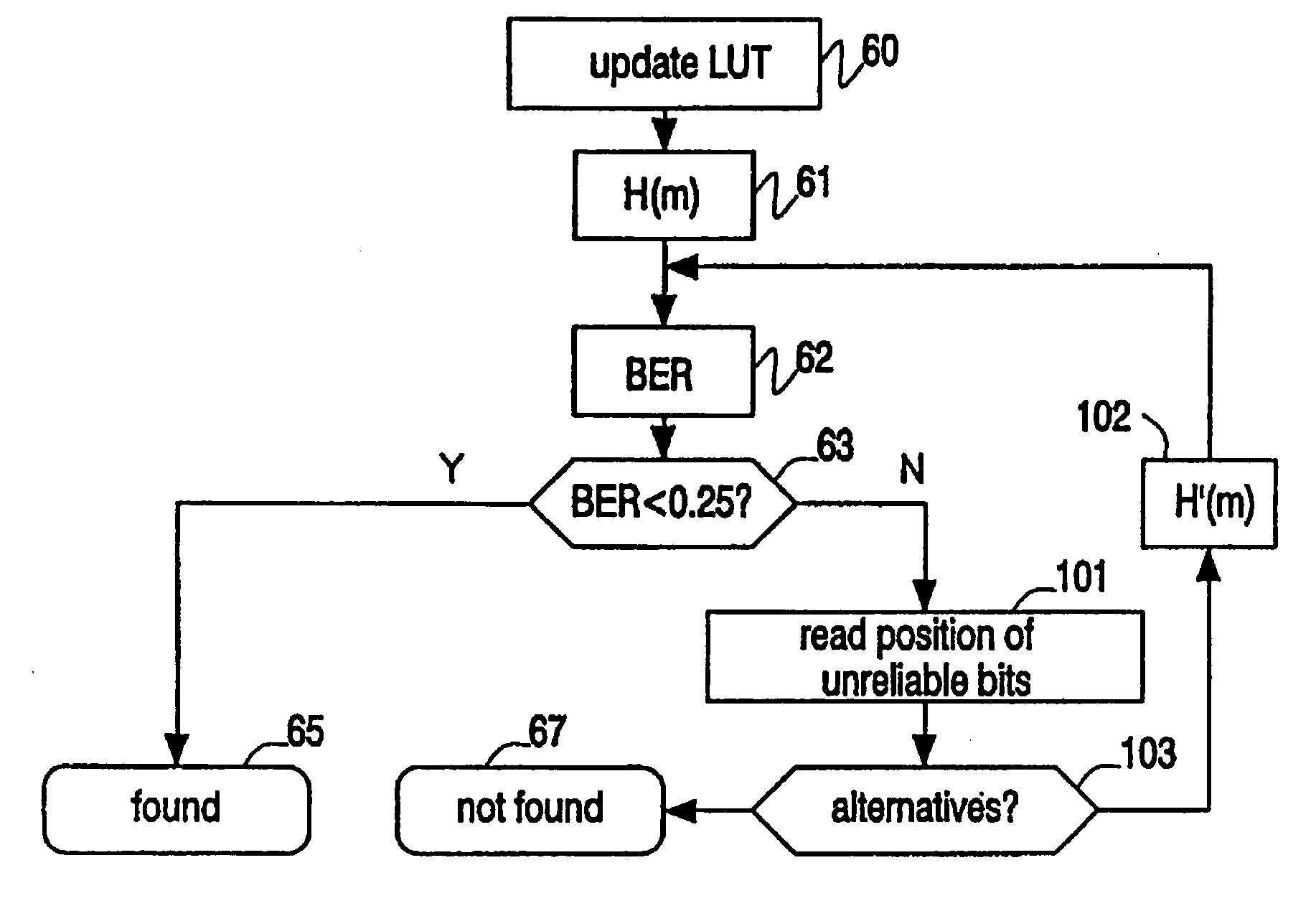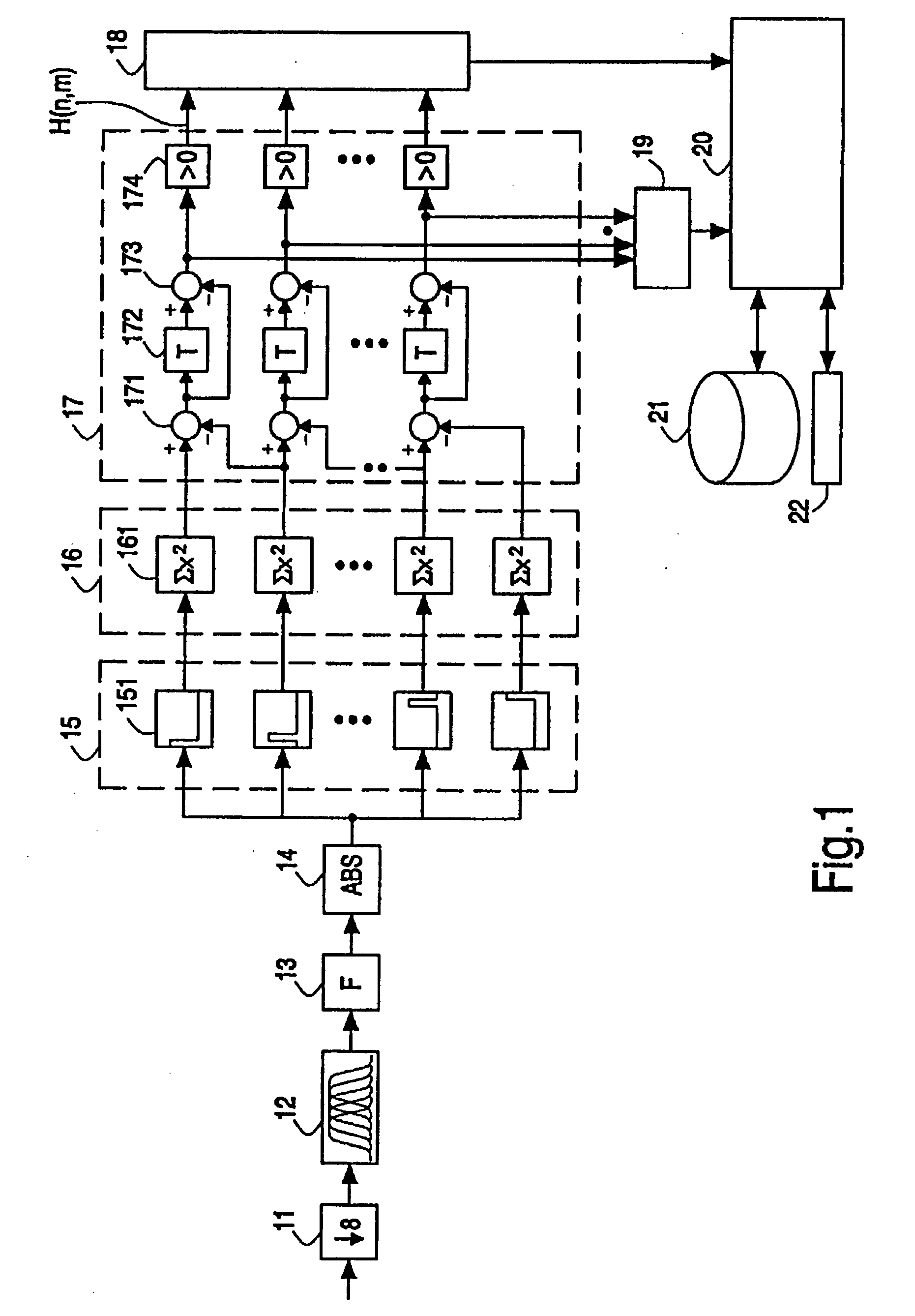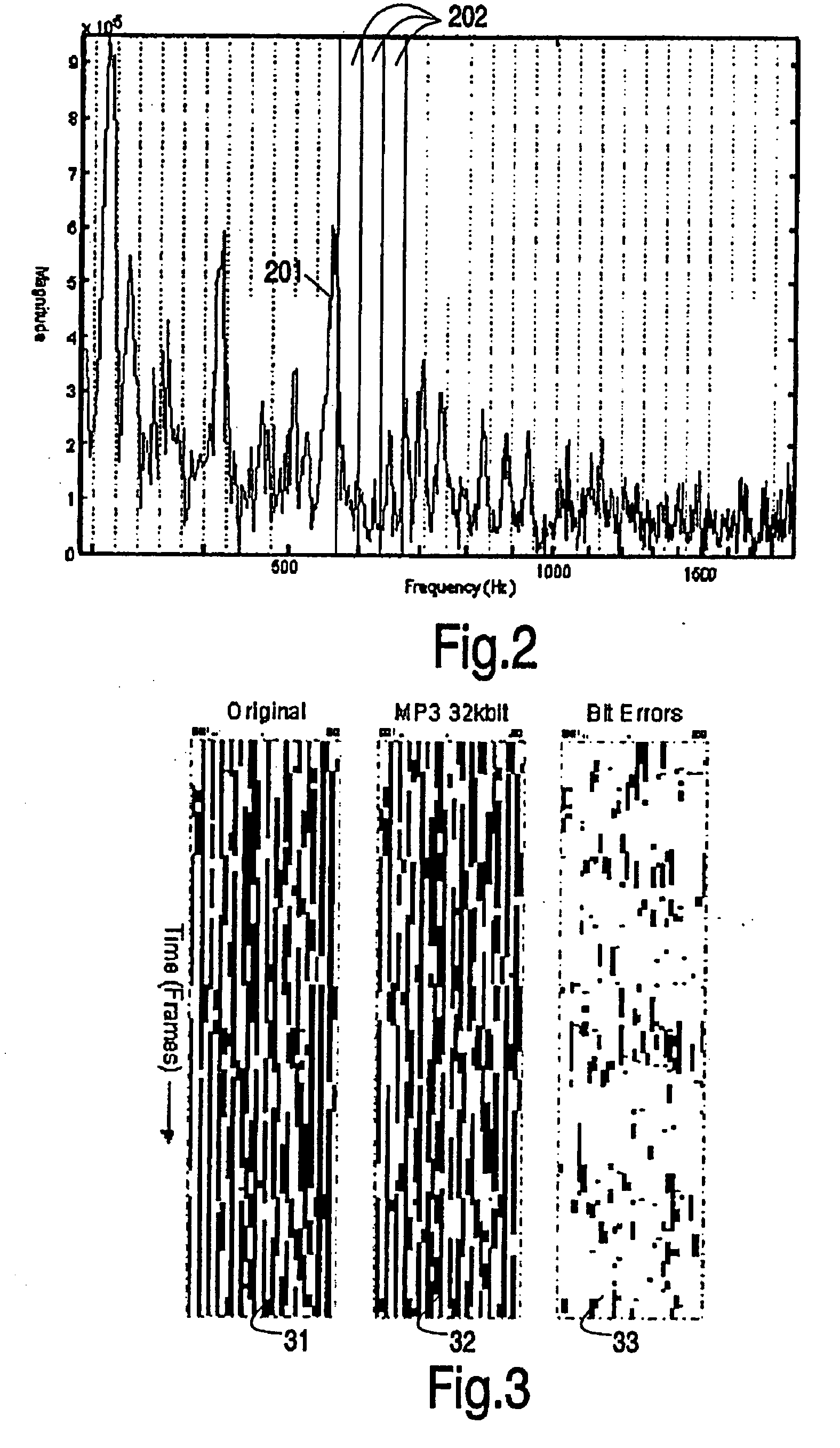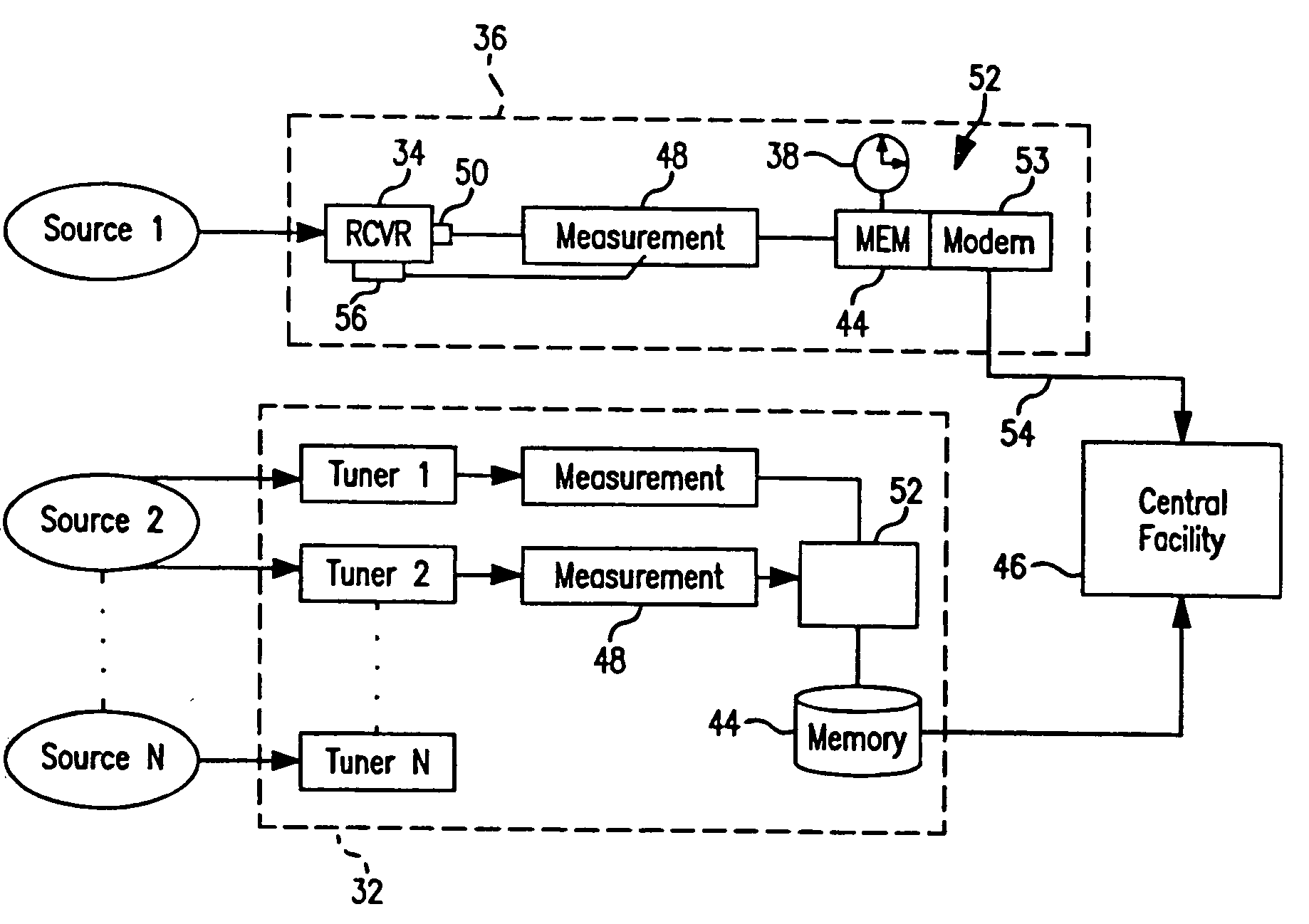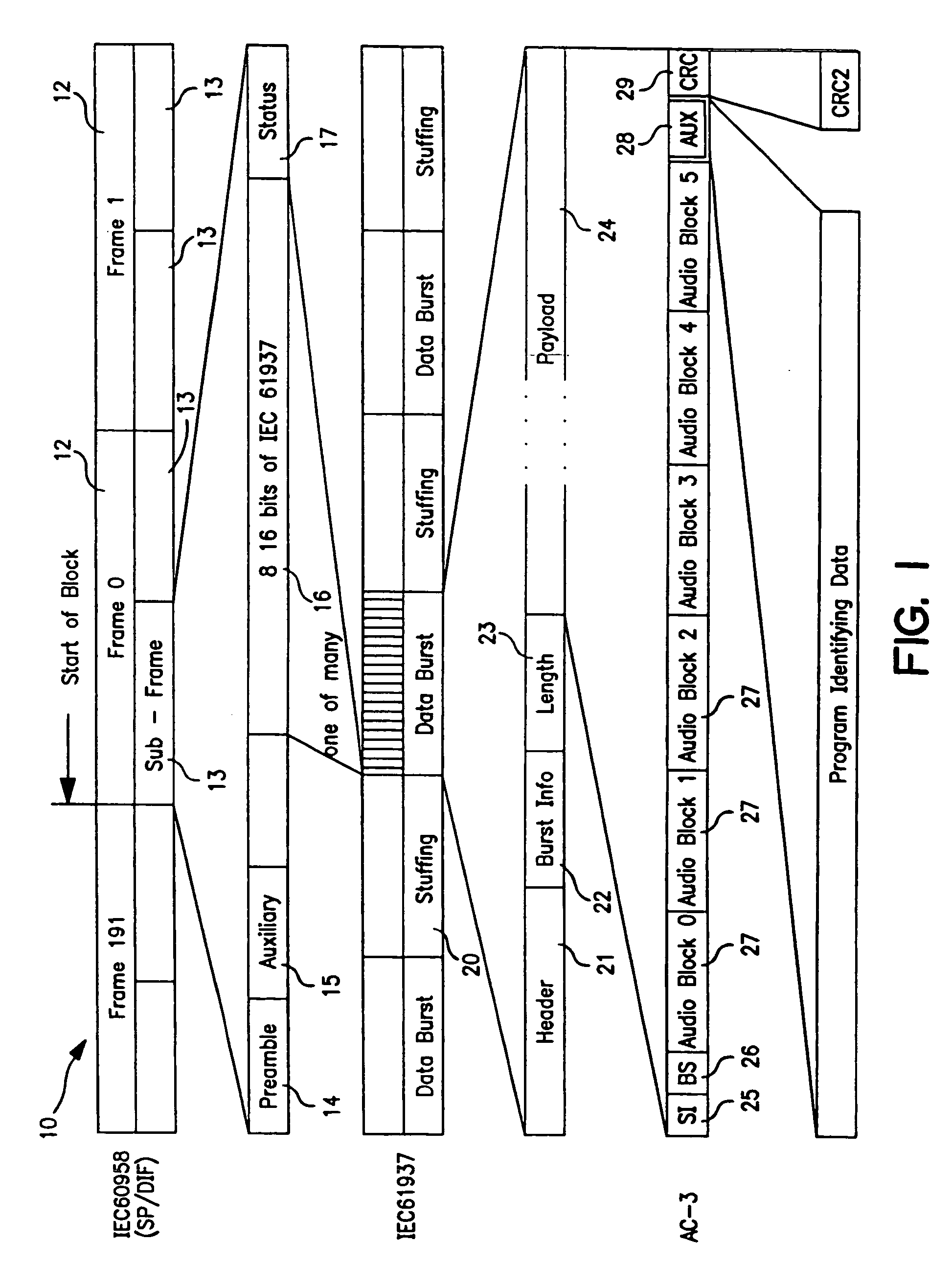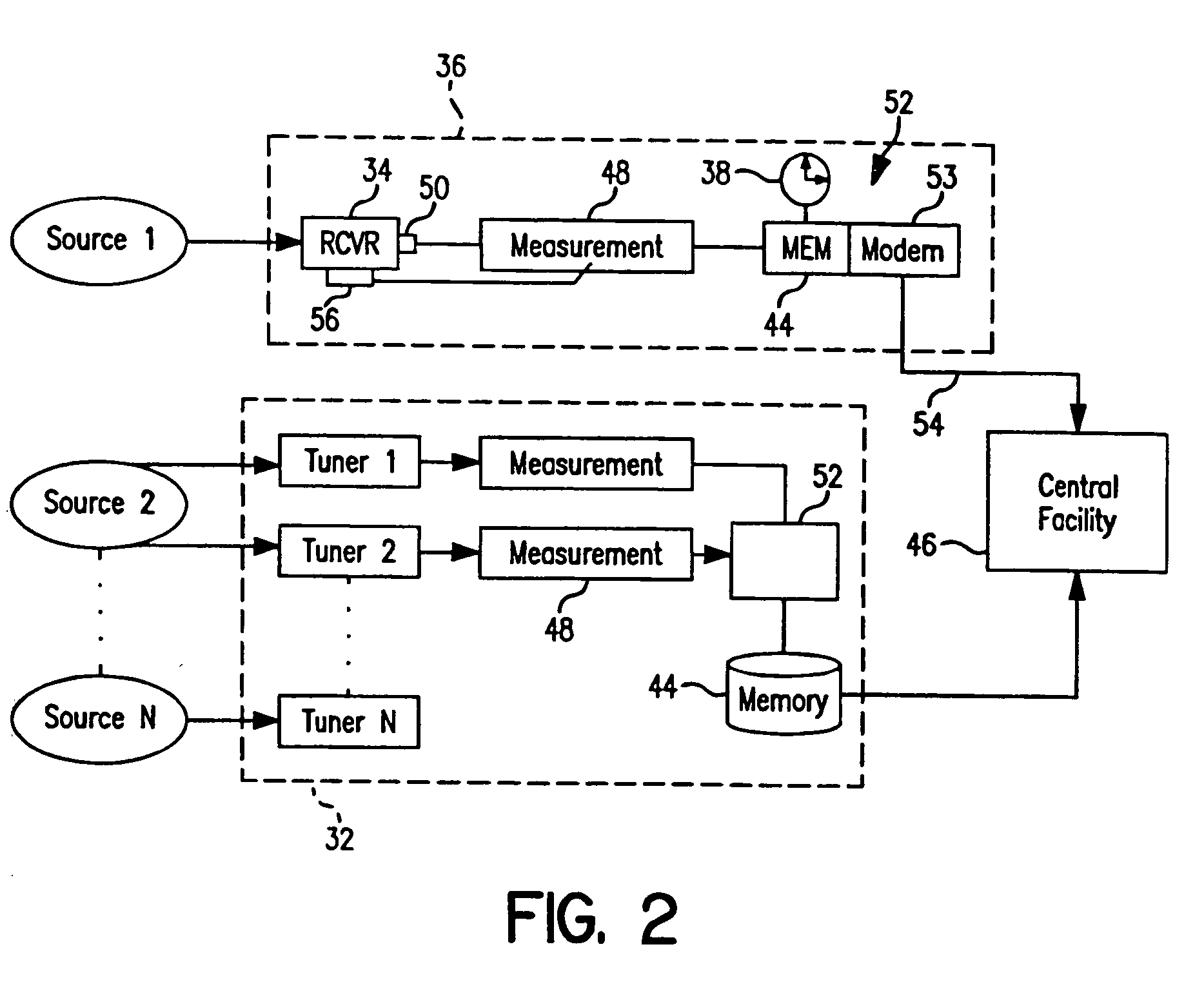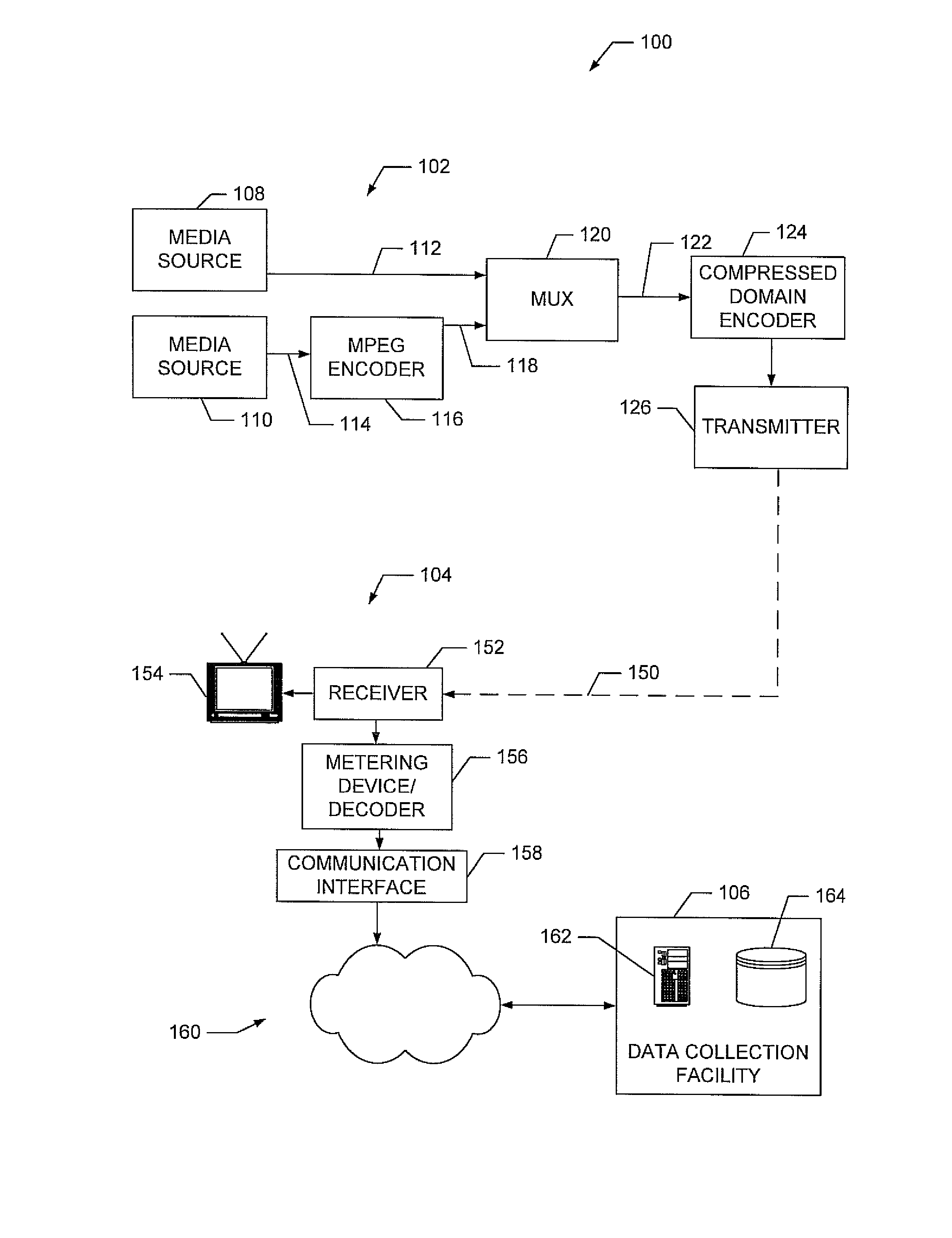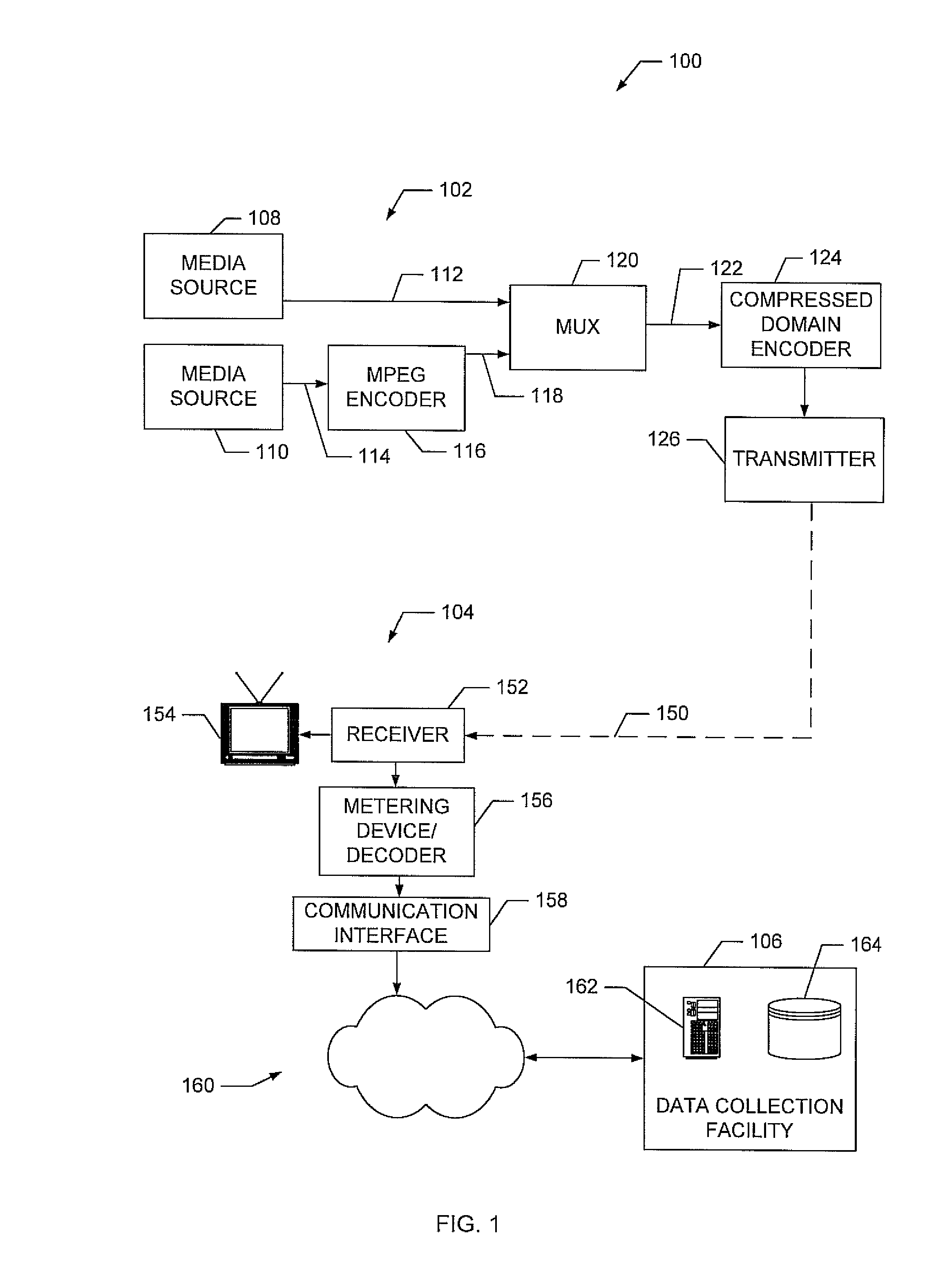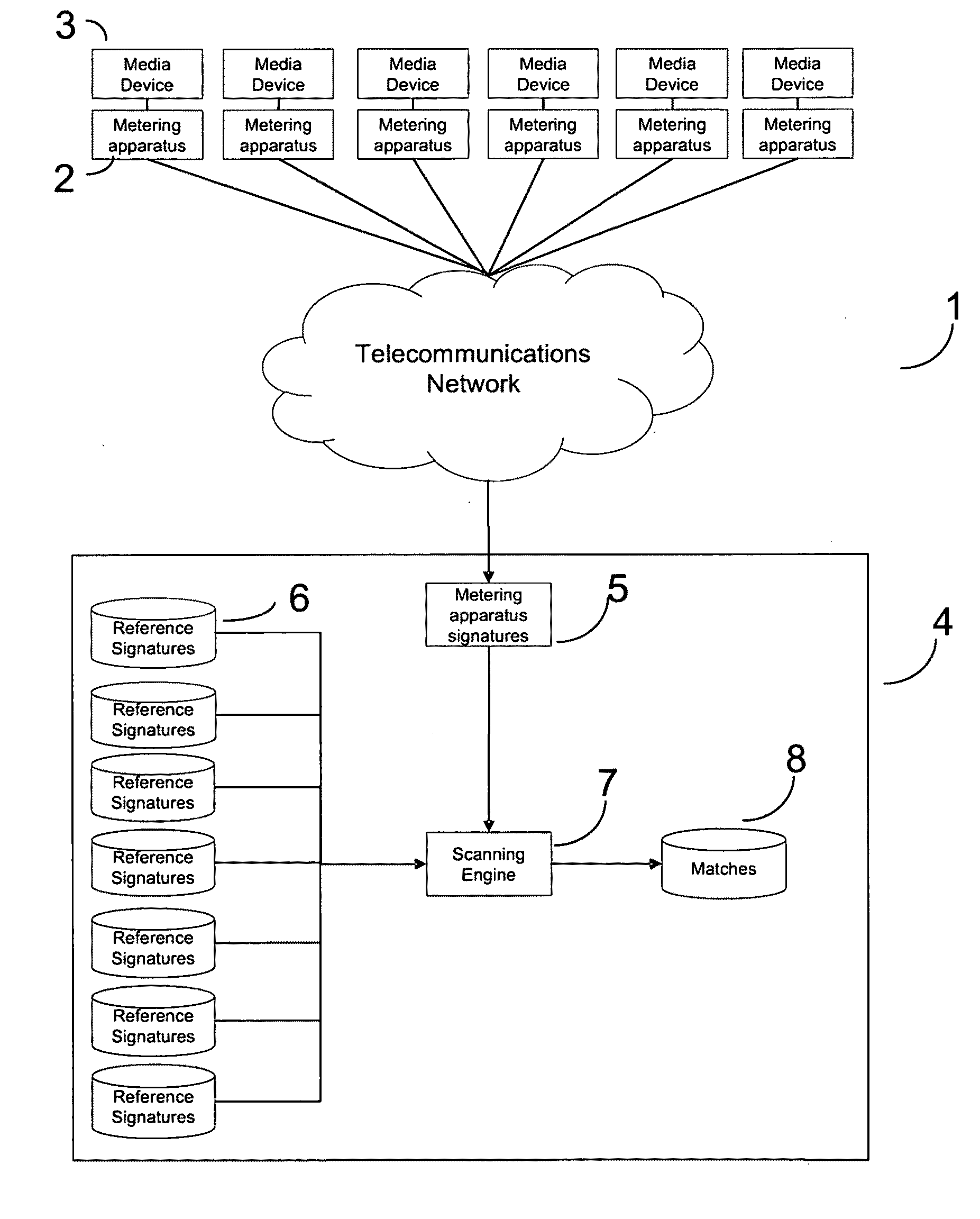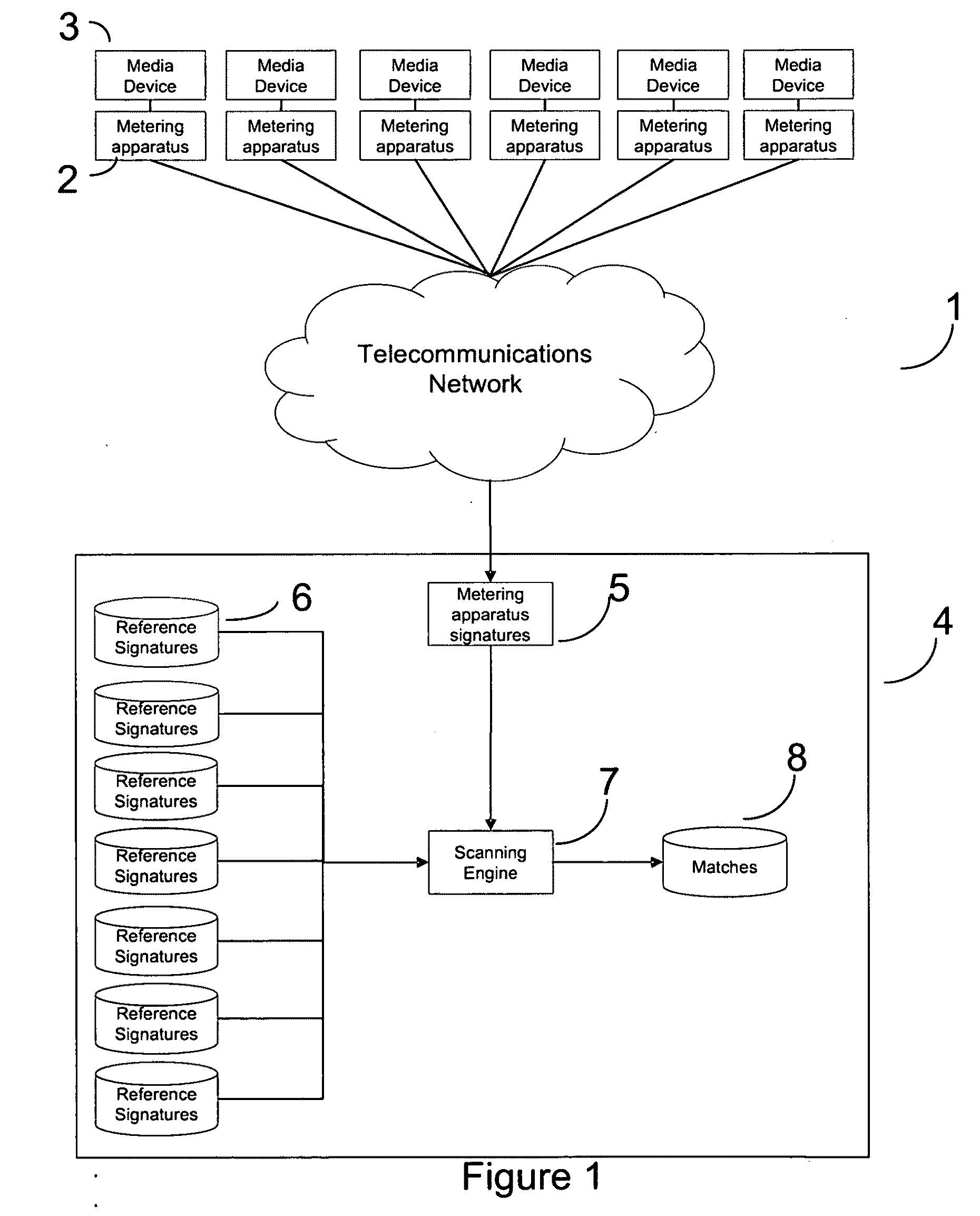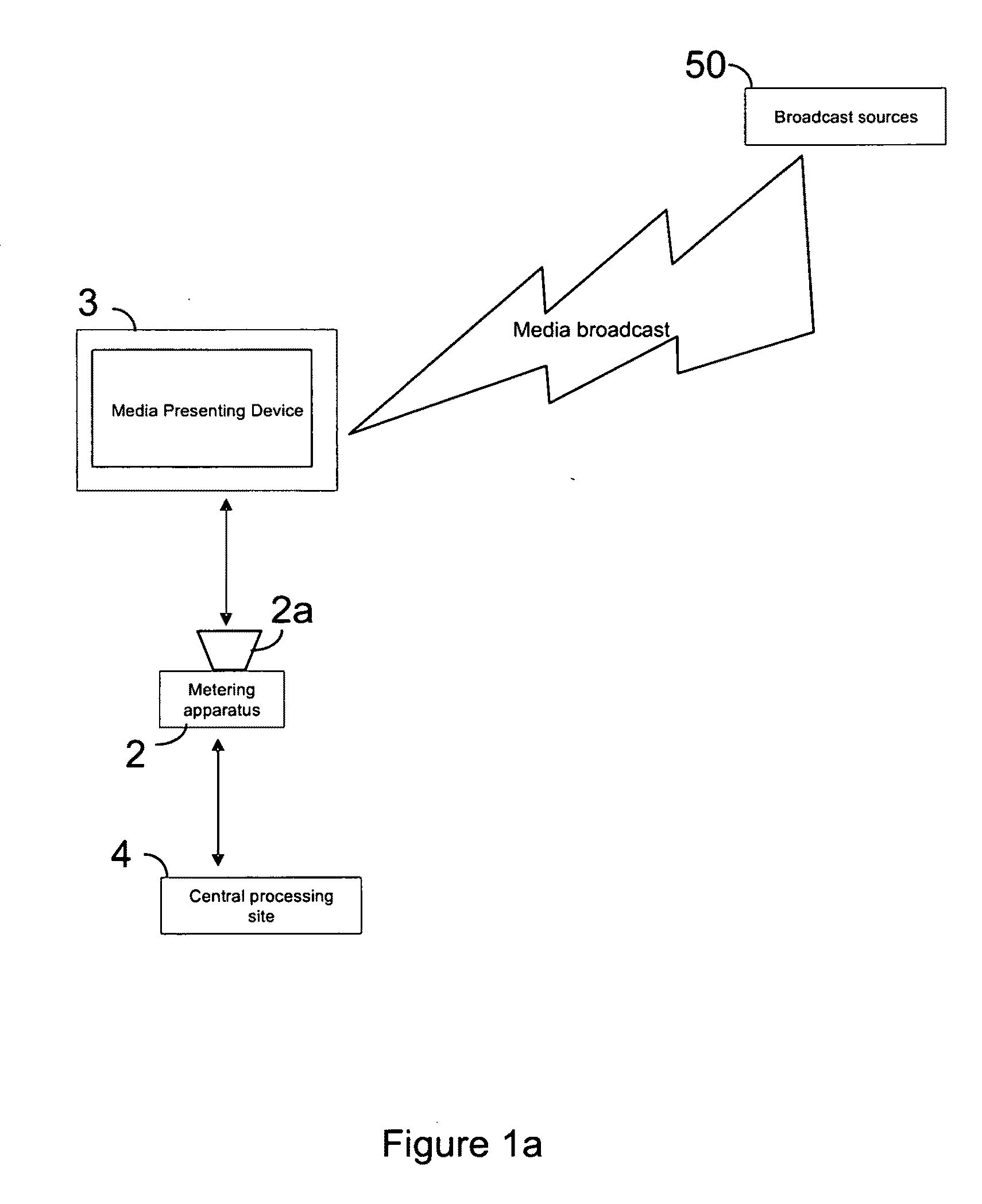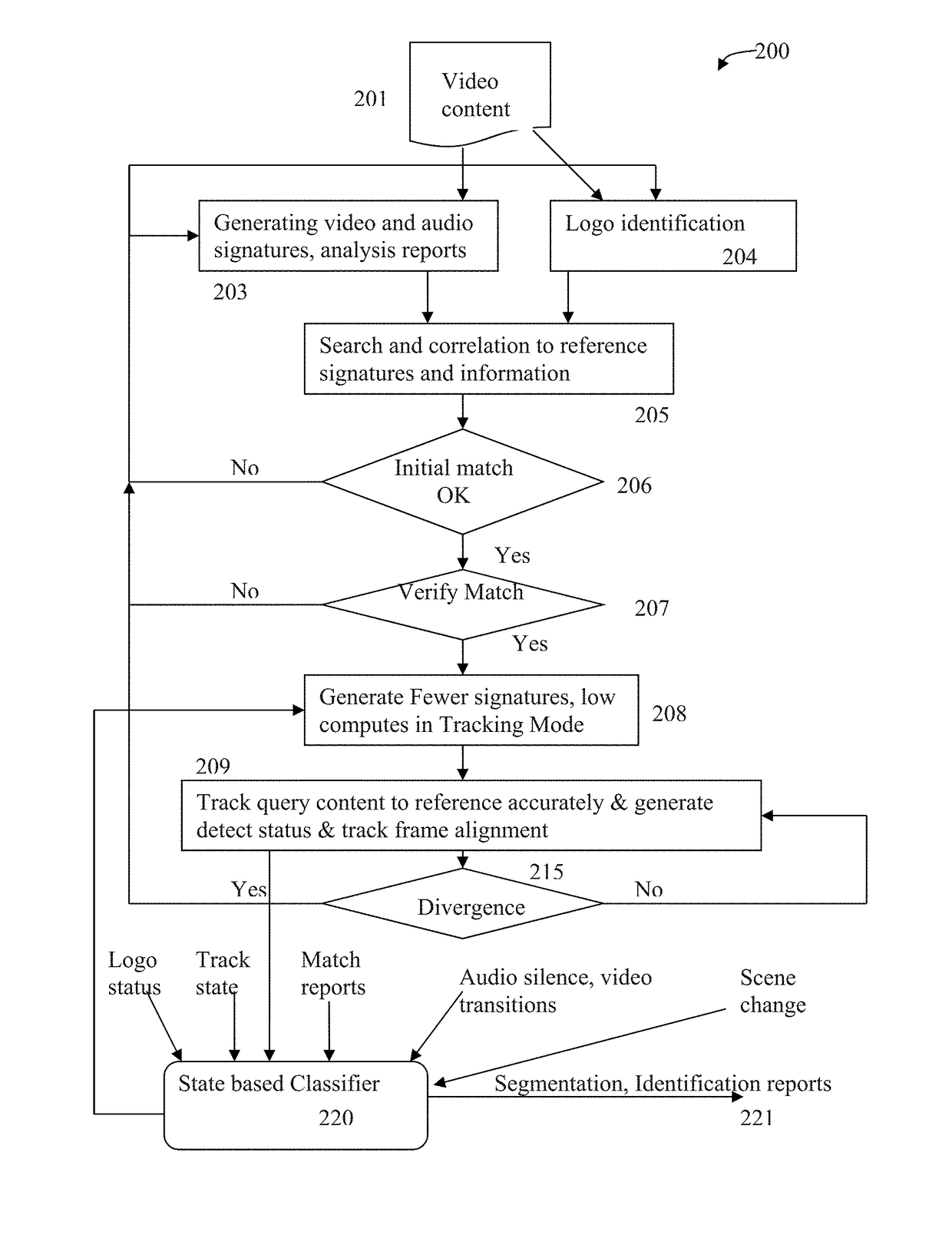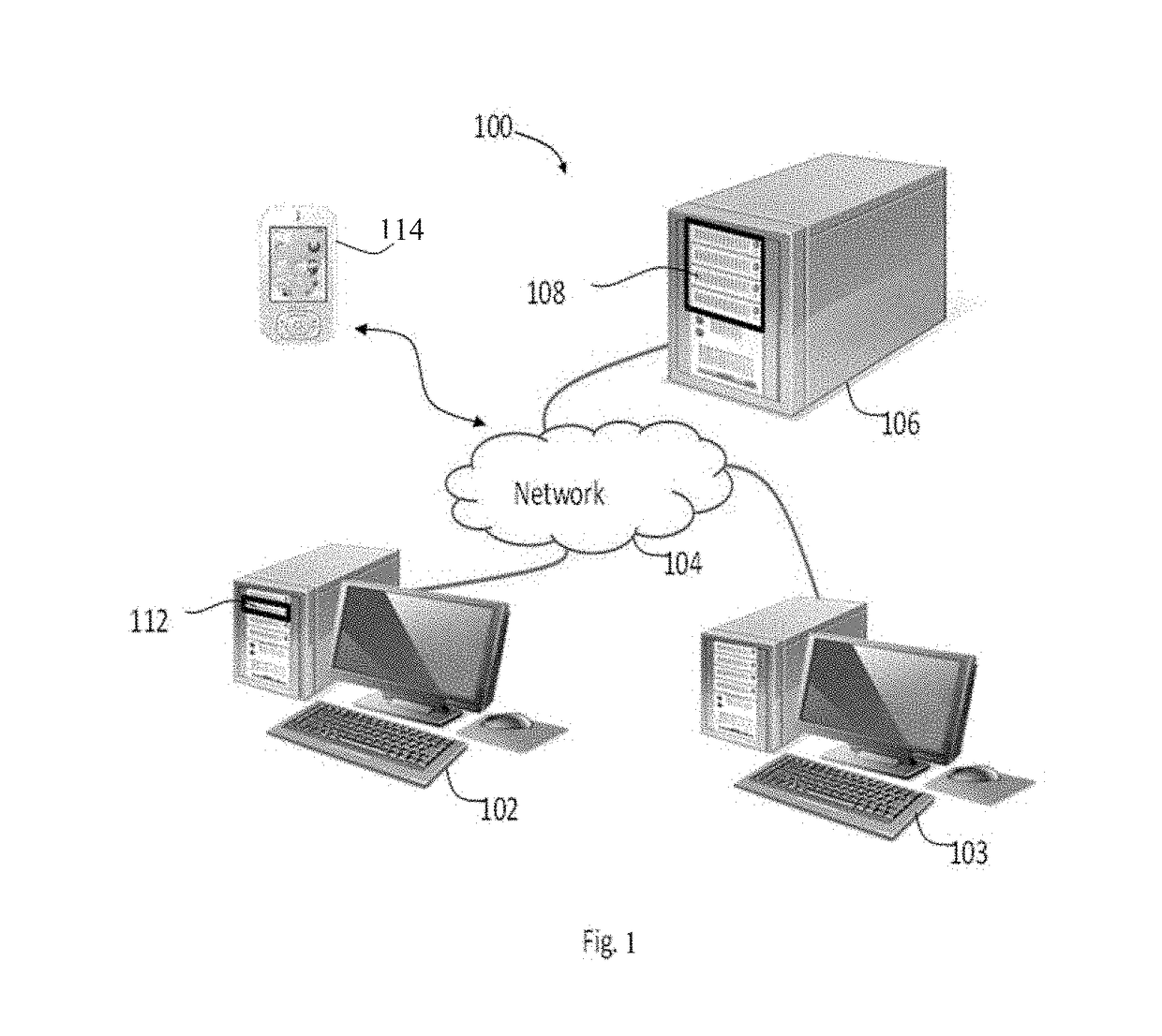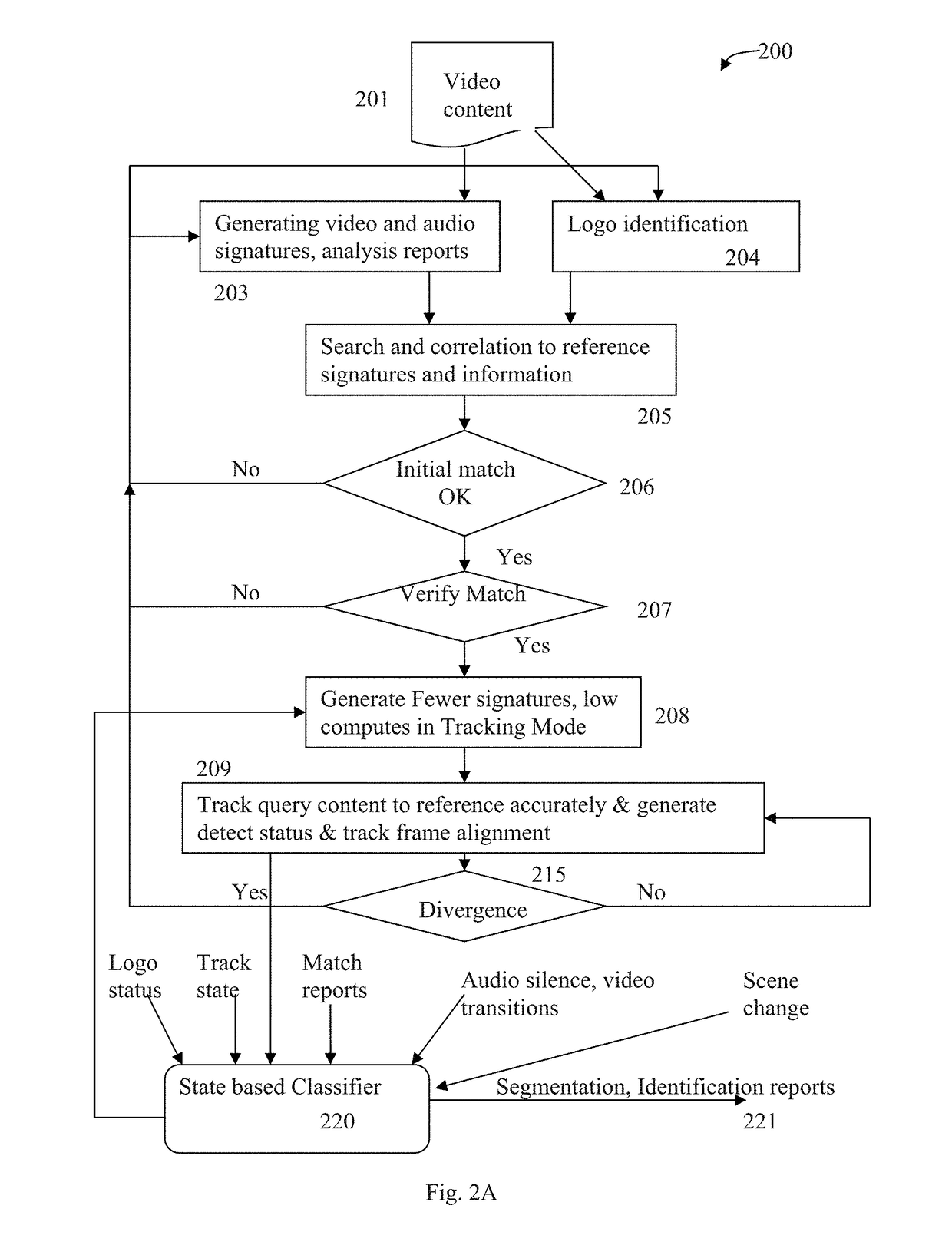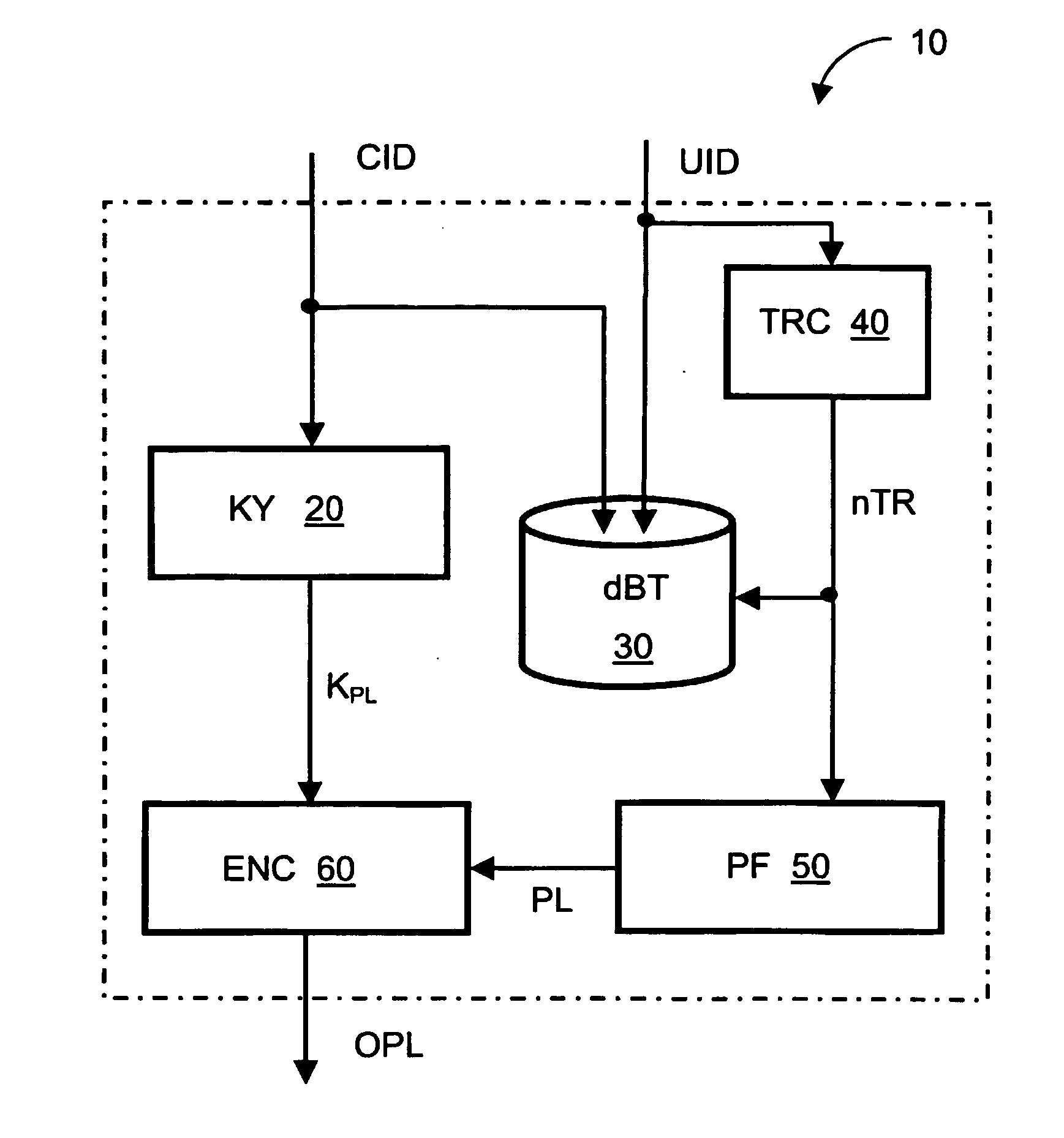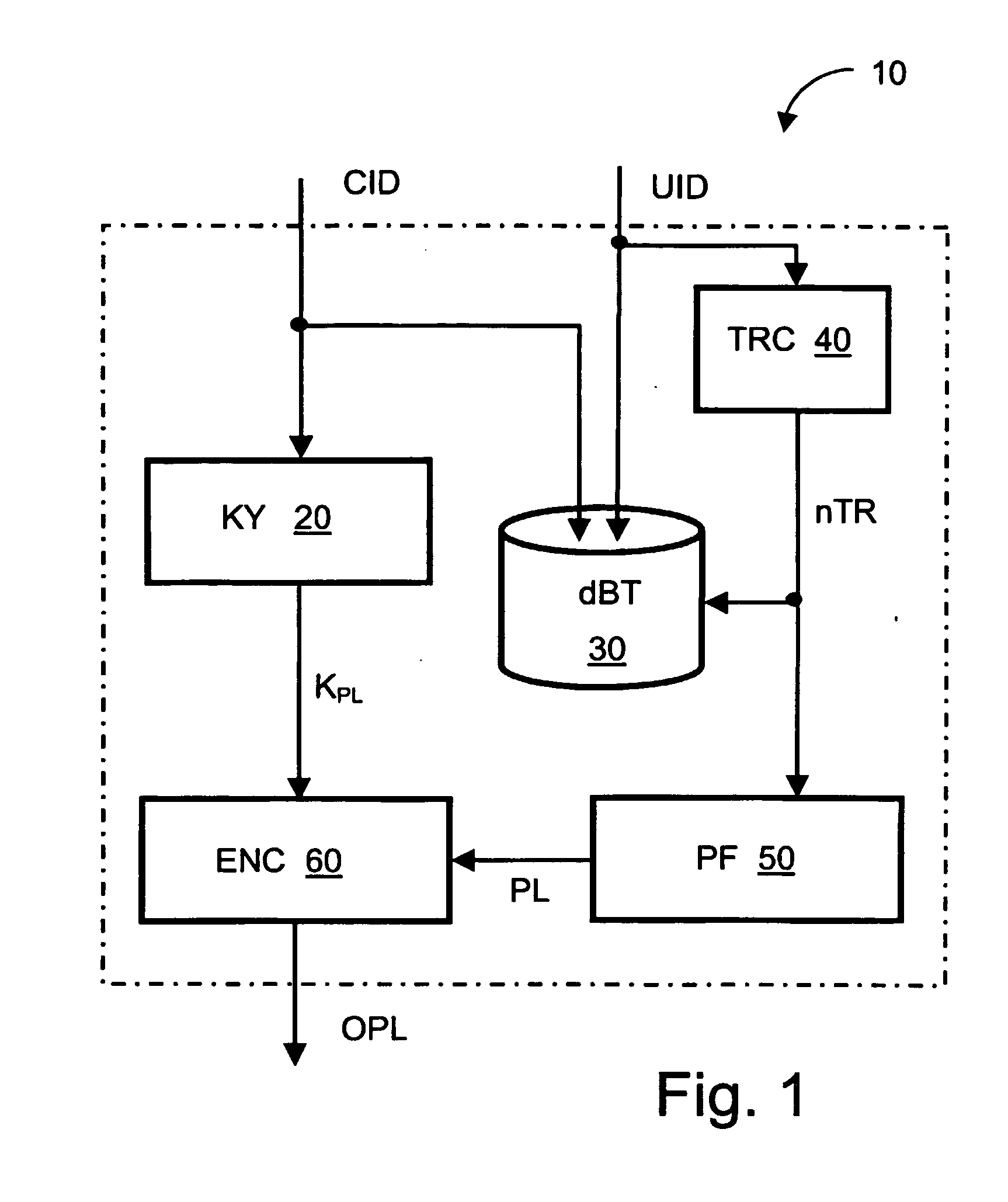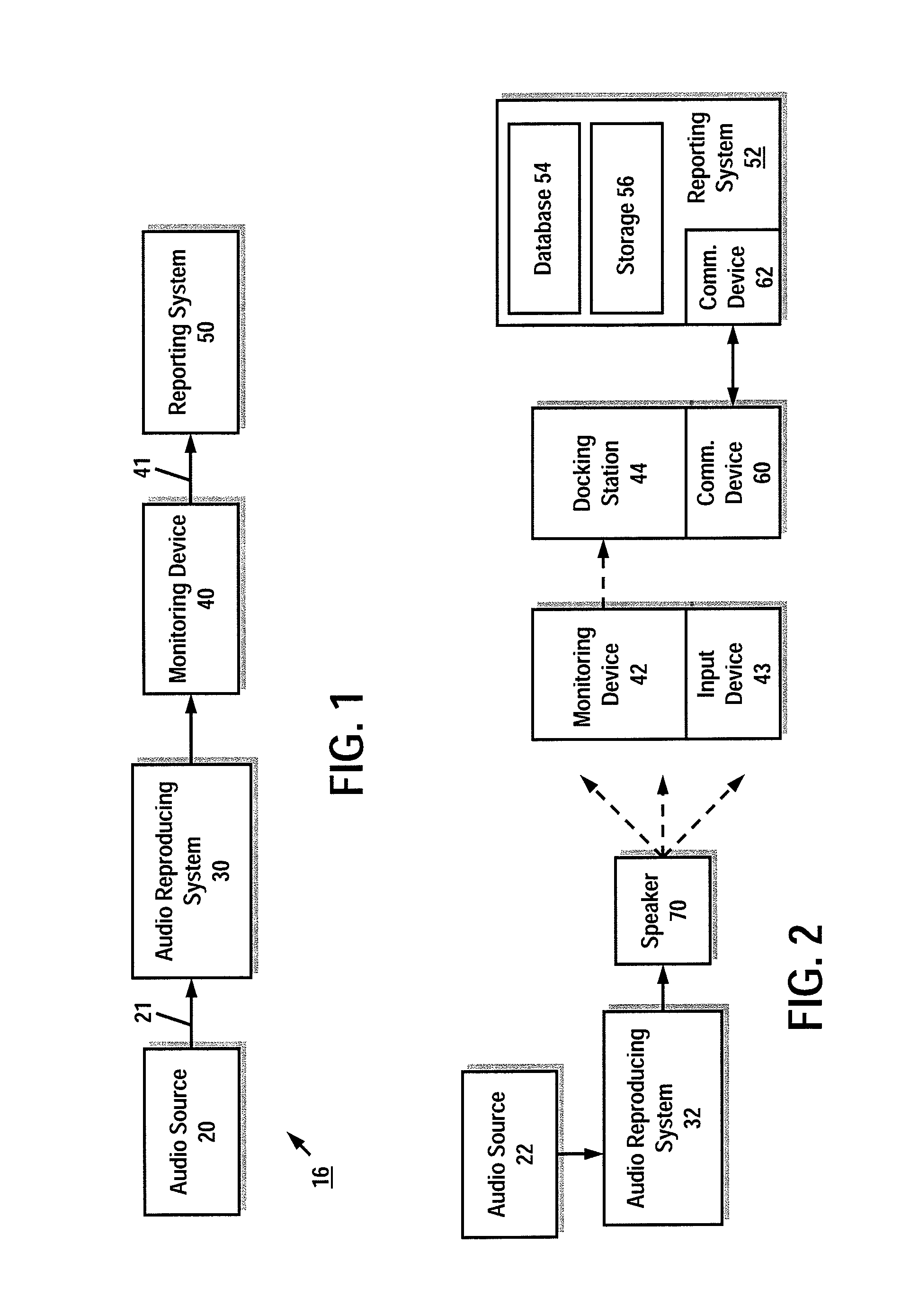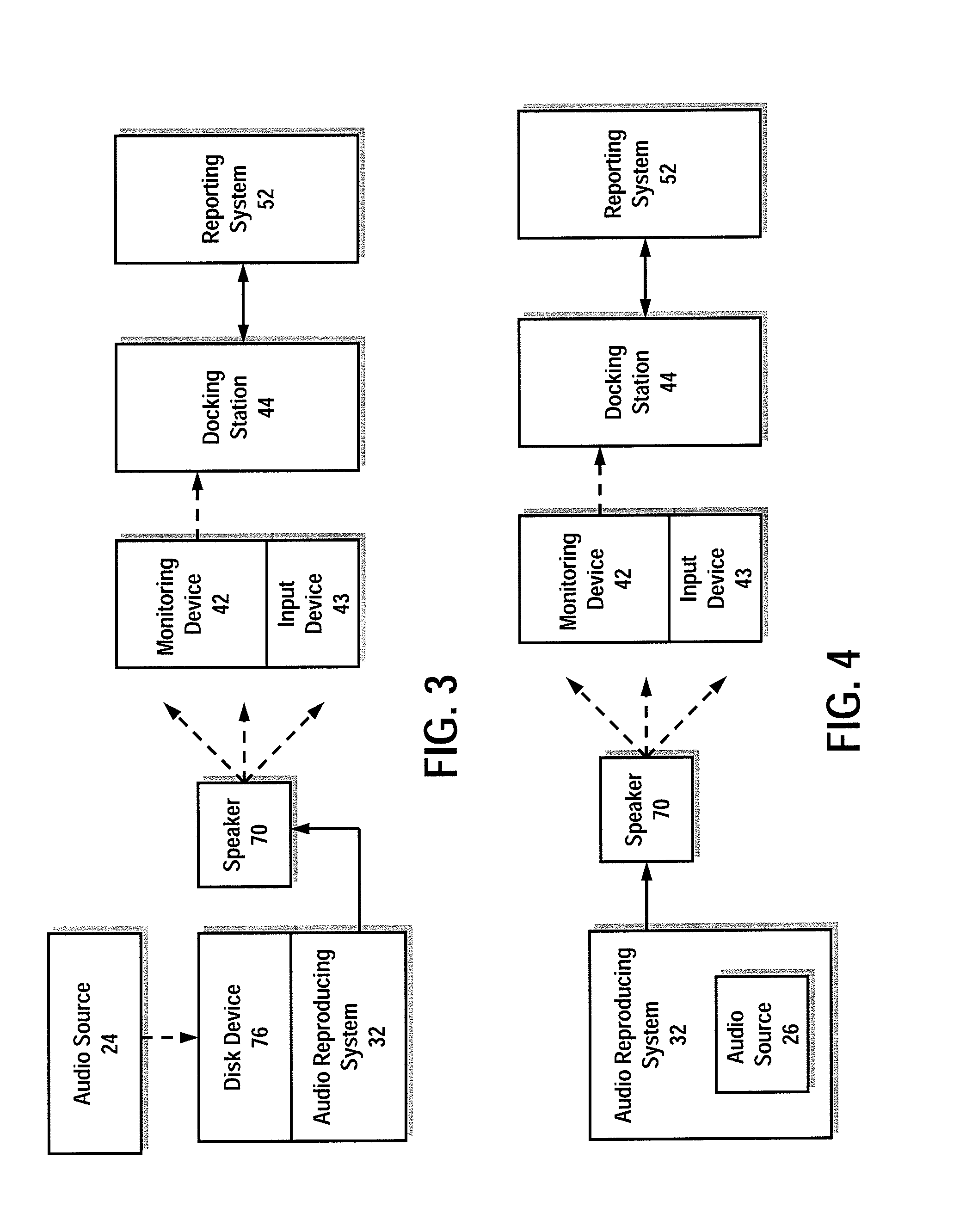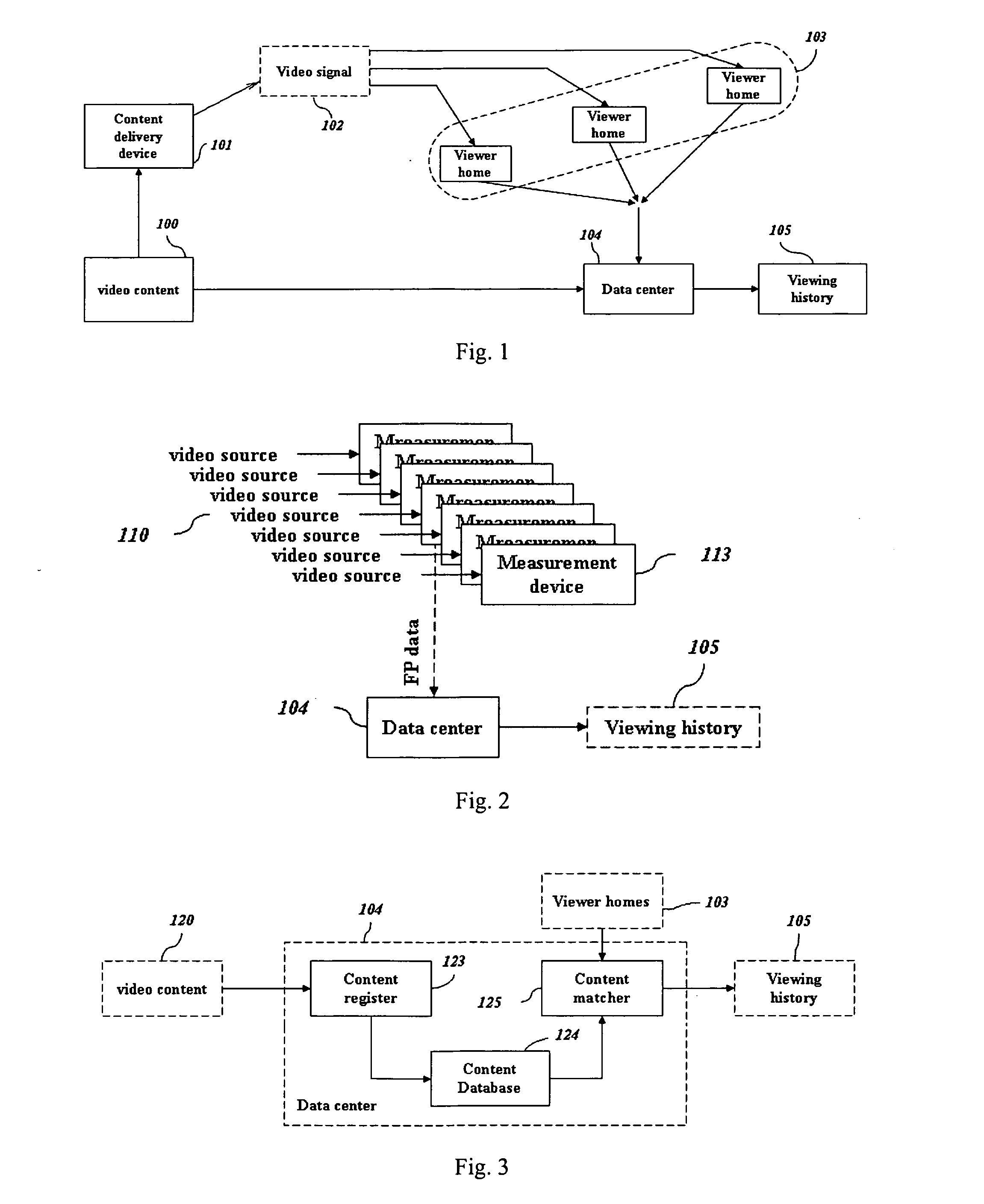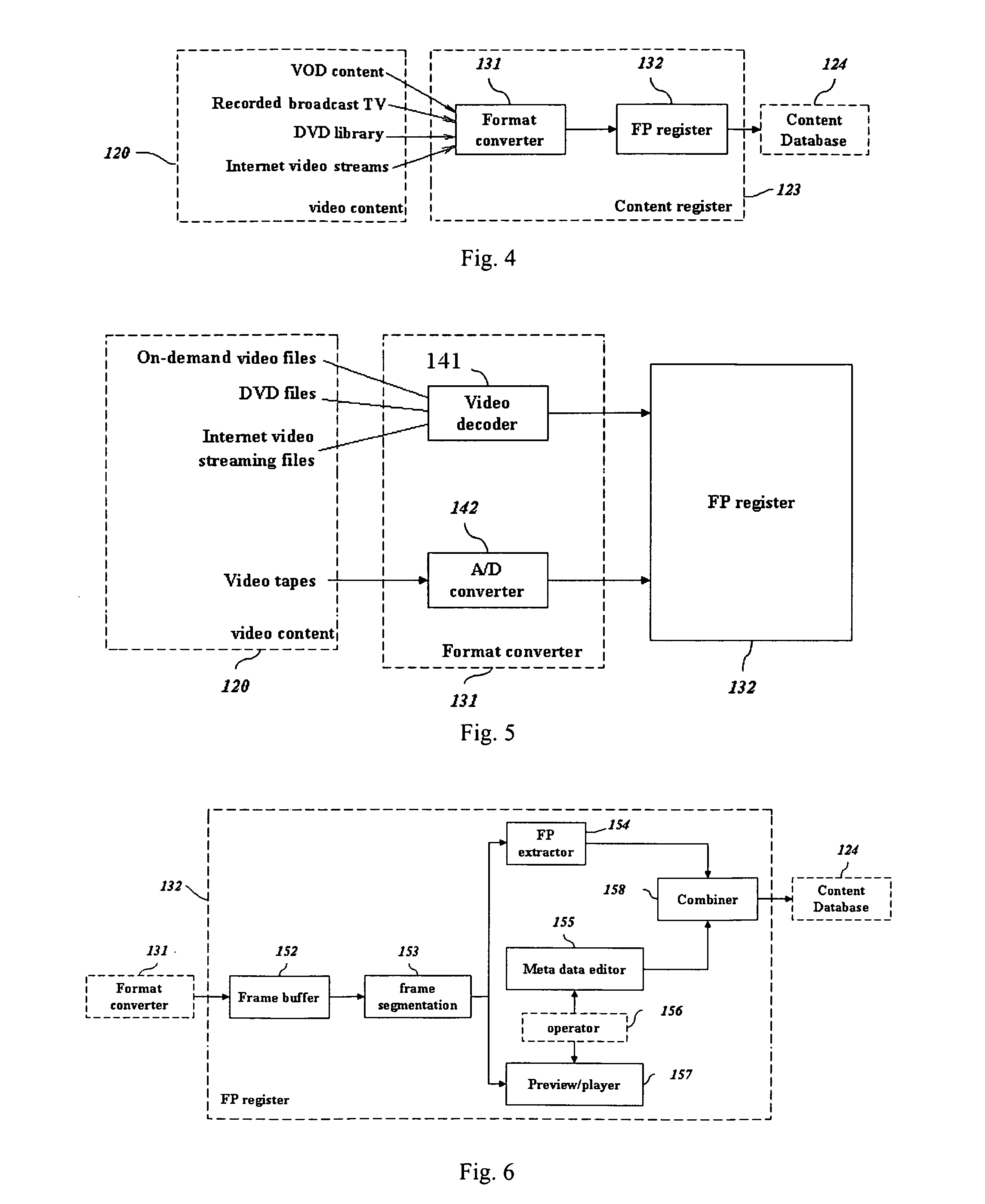Patents
Literature
Hiro is an intelligent assistant for R&D personnel, combined with Patent DNA, to facilitate innovative research.
96results about "Broadcast systems characterised by signatures" patented technology
Efficacy Topic
Property
Owner
Technical Advancement
Application Domain
Technology Topic
Technology Field Word
Patent Country/Region
Patent Type
Patent Status
Application Year
Inventor
Generating and matching hashes of multimedia content
ActiveUS20020178410A1RobustRobust hashingElectrophonic musical instrumentsCode conversionFrequency spectrumAlgorithm
Hashes are short summaries or signatures of data files which can be used to identify the file. Hashing multimedia content (audio, video, images) is difficult because the hash of original content and processed (e.g. compressed) content may differ significantly. The disclosed method generates robust hashes for multimedia content, for example, audio clips. The audio clip is divided (12) into successive (preferably overlapping) frames. For each frame, the frequency spectrum is divided (15) into bands. A robust property of each band (e.g. energy) is computed (16) and represented (17) by a respective hash bit. An audio clip is thus represented by a concatenation of binary hash words, one for each frame. To identify a possibly compressed audio signal, a block of hash words derived therefrom is matched by a computer (20) with a large database (21). Such matching strategies are also disclosed. In an advantageous embodiment, the extraction process also provides information (19) as to which of the hash bits are the least reliable. Flipping these bits considerably improves the speed and performance of the matching process.
Owner:GRACENOTE
Methods and apparatus to collect audience information associated with a media presentation
ActiveUS20050144632A1Analogue secracy/subscription systemsBroadcast components for monitoring/identification/recognitionComputer scienceMultimedia
Owner:NIELSEN COMPANY US LLC THE A DELAWARE LIMITED LIABILITY
TV content segmentation, categorization and identification and time-aligned applications
ActiveUS9510044B1Receiver side switchingCharacter and pattern recognitionMulti languageDisplay device
Content segmentation, categorization and identification methods are described. Content tracking approaches are illustrated that are suitable for large scale deployment. Time-aligned applications such as multi-language selection, customized advertisements, second screen services and content monitoring applications can be economically deployed at large scales. A client performs fingerprinting, scene change detection, audio turn detection, and logo detection on incoming video and gathers database search results, logos and text to identify and segment video streams into content, promos, and commercials. A learning engine is configured to learn rules for optimal identification and segmentation at each client for each channel and program. Content sensed at the client site is tracked with reduced computation and applications are executed with timing precision. A user interface for time-aligned publishing of content and subsequent usage and interaction on one or more displays is also described.
Owner:ROKU INCORPORATED
Audio data receipt/exposure measurement with code monitoring and signature extraction
InactiveUS7222071B2Analogue secracy/subscription systemsBroadcast components for monitoring/identification/recognitionComputer hardwareComputer science
Systems and methods are provided for gathering audience measurement data relating to receipt of and / or exposure to audio data by an audience member. Audio data is monitored to detect a monitoring code. Based on detection of the monitoring code, a signature characterizing the audio data is extracted.
Owner:THE NIELSEN CO (US) LLC +1
Method and apparatus for identifying a digital audio signal
InactiveUS20030131350A1Low costAnalogue secracy/subscription systemsBroadcast components for monitoring/identification/recognitionMonitoring siteRating system
Method and apparatus for identifying broadcast digital audio signals include structure and / or function whereby the digital audio signal is provided to processing structure which is configured to (i) identify a program-identifying code in the received digital audio signal, (ii) identify a program-identifying code in a decompressed received digital audio signal, (iii) identify a feature signature in the received digital audio signal, and (iv) identify a feature signature in the decompressed received digital audio signal. Preferably, such processing structure is disposed in a dwelling or a monitoring site in an audience measurement system, such as the Nielsen TV ratings system.
Owner:NIELSEN MEDIA RES
Temporal segment based extraction and robust matching of video fingerprints
ActiveUS20090154806A1Character and pattern recognitionBroadcast components for monitoring/identification/recognitionPattern recognitionTime segment
A computer implemented method, apparatus, and computer program product code for temporal, event-based video fingerprinting. In one embodiment, events in video content are detected. The video content comprises a plurality of video frames. An event represents discrete points of interest in the video content. A set of temporal, event-based segments are generated using the events. Each temporal, event-based segment is a segment of the video content covering a set of events. A time series signal is derived from each temporal, event-based segment using temporal tracking of content-based features of a set of frames associated with the each temporal, event-based segment. A temporal segment based fingerprint is extracted based on the time series signal for the each temporal, event-based segment to form a set of temporal segment based fingerprints associated with the video content.
Owner:SINOEAST CONCEPT
Identifying works, using a sub-linear time search, such as an approximate nearest neighbor search, for initiating a work-based action, such as an action on the internet
A media work may be associated with an action by (a) extracting features from the media work, (b) determining an identification of the media work, based on the features extracted, using a sub-linear time search, such as an approximate nearest neighbor search for example, and (c) determining an action based on the identification of the media work determined. The media work may be an audio work. The features extracted from the work may include (A) a frequency decomposition of a signal of the audio work, (B) information samples of the audio work, (C) average intensities of sampled windows of the audio work, and / or (D) information from frequencies of the audio work.
Owner:NETWORK 1 TECH
Audio data receipt/exposure measurement with code monitoring and signature extraction
InactiveUS20070226760A1Analogue secracy/subscription systemsBroadcast components for monitoring/identification/recognitionComputer hardwareAudio frequency
Owner:THE NIELSEN CO (US) LLC +1
Interactive method based on multimedia programs, terminal, server and system
ActiveCN104093079ASimple and fast operationImprove interaction efficiencyBroadcast components for monitoring/identification/recognitionBroadcast services for monitoring/identification/recognitionComputer terminalWeb technology
The invention discloses an interactive method based on multimedia programs, a terminal, a server and a system and belongs to the technical field of networks. The interactive method comprises the steps of obtaining at least segment image information of the multimedia programs in the multimedia program playing process; sending the segment image information, wherein the segment image information are used for being matched with corresponding multimedia programs; receiving interactive information corresponding to the multimedia program information; outputting an interactive interface and performing interaction with the multimedia programs based on interactive operations of the interactive interface. The operations are simple and convenient, and the interactive efficiency is improved.
Owner:TENCENT TECH (SHENZHEN) CO LTD +1
Audience measurement apparatus, system and method
ActiveUS20100131970A1Analogue secracy/subscription systemsBroadcast components for monitoring/identification/recognitionMultiplexingData mining
An audience measurement system generates signatures of unknown pieces of content viewed by panel members, and generates multiplexed reference signatures of known pieces of content. The signatures of the unknown pieces of content are stored and transmitted to a central processing site, where they are compared with the reference signatures for their identification. A signature comparator finds matches between the signatures of the unknown and the known contents.
Owner:THE NIELSEN CO (US) LLC
Method and apparatus for controlling a video recorder/player to selectively alter a video signal
InactiveUS7269330B1Promote rapid developmentEasy to detectTelevision system detailsPicture reproducers using cathode ray tubesPattern recognition
The method and apparatus operates in a video recorder and playback unit to identify selected broadcast segments, such as commercial advertisements, of a television signal in real-time for the purpose of either suspending recording or advancing playback of the television signal during each unwanted segment. A signature pattern associated with each segment of the television signal is detected and compared to stored signature patterns representative of selected segments such as commercial advertisement segments. If the signature pattern matches one of the stored signature patterns, the segment is thereby immediately identified as being one of the selected segments and is processed in real-time to control operation of the video recorder / player. If the signature pattern of the segment does not match any of the stored signature patterns, the segment is analyzed to determine whether the segment is nevertheless a selected segment and, if so, its signature pattern is stored along with the stored signature patterns.
Owner:TELEVENTIONS
Content Recognition and Synchronization on a Television or Consumer Electronics Device
InactiveUS20110041154A1Improve computing powerTelevision system detailsDigital data information retrievalUser deviceMetadata
An audio portion of content, such as an audio stream, is associated with a multimedia program. A server receives an audio fingerprint and a program identifier from a network and associates the audio fingerprint with an audio identifier. A request packet including the program identifier is transmitted over the network to request program guide information associated with the program identifier. The program data including the program guide information is received from the network and metadata associated with the audio identifier and the program data are transmitted onto the network. A user device initiates a request for the metadata by using an audio fingerprint and the program identifier.
Owner:ROVI TECH CORP
Method and system for re-identifying broadcast segments using statistical profiles
InactiveUS7064796B2Easy to identifyMinimize impactTelevision system detailsPicture reproducers using cathode ray tubesRe identificationConsecutive frame
A method and system for extracting segments from a broadcast television signal uses a mean display attribute value of pixels of each successive frame of a video component of the signal to identify segment transitions. Elapsed times between the identified segment transitions are compared with expected durations of segments, in order to detect intervals that are likely to constitute segments. Groups of the detected intervals are subjected to tests to see if they are temporally arranged in an expected distribution typical of segments in broadcast signals. The mean display attribute values concurrent with each detected segment are then used to form a statistical profile for the segment. These statistical profiles may be used to identify re-broadcast segments. Further a stream of mean audio amplitudes is preferably used to supply further segment transitions, to improve segment detection, and to provide more statistical values.
Owner:ELODA
Generating fingerprints of video signals
InactiveUS20090324199A1Made robustIncrease in sizeTelevision system detailsColor television signals processingPattern recognitionEngineering
The present invention provides novel techniques for generating more robust fingerprints (1) of video signals (2). Certain embodiments of the invention derive video fingerprints only from blocks (21) in a central portion (22) of each frame (20), ignoring a remaining outer portion (23), the resultant fingerprints (1) being more robust with respect to transformations comprising cropping or shifts. Other embodiments divide each frame (or a central portion of it) into non-rectangular blocks, such as pie-shaped or annular blocks, and generate fingerprints from these blocks. The shape of the blocks can be selected to provide robustness against particular transformations. Pie blocks provide robustness to scaling, and annular blocks provide robustness to rotations, for example. Other embodiments use blocks of different sizes, so that different portions of the frame may be given different weighting in the fingerprint.
Owner:KONINKLIJKE PHILIPS ELECTRONICS NV
Signature generation for multimedia deep-content-classification by a large-scale matching system and method thereof
ActiveUS20090043818A1Broadcast information characterisationBroadcast information switching/replacementApplication softwareComputer vision
Content-based clustering, recognition, classification and search of high volumes of multimedia data in real-time. The invention is dedicated to real-time fast generation of signatures to high-volume of multimedia content-segments, based on relevant audio and visual signals, and to scalable matching of signatures of high-volume database of content-segments' signatures. The invention can be implemented in any applications which involve large-scale content-based clustering, recognition and classification of multimedia data, such as, content-tracking, video filtering, multimedia taxonomy generation, video fingerprinting, speech-to-text, audio classification, object recognition, video search and any other application requiring content-based signatures generation and matching for large content volumes such as, web and other large-scale databases.
Owner:CORTICA LTD
Method and system for processing correlated audio-video segments with digital signatures within a broadcast system
InactiveUS20030014755A1Receiver side switchingBroadcast information characterisationDigital signatureAudio frequency
A method and apparatus for correlating the transmission of audio-video segments to digital signatures over a wireless or non-wireless medium to allow for real-time substitution and processing of audio and video programs. In one embodiment at least one digital signature having a correlated audio-video segment is transmitted as a digital waveform within an analog modulated signal representing the audio-video segment. The analog modulated signal is transmitted to a wireless receiver. The wireless receiver demodulates the digital waveforms while concurrently playing the correlated audio-video segment. An electronic user interface enables the wireless receiver to define conditional preferences to actively scan a plurality of channels and Internet addresses to substitute a currently playing audio-video segment with a preferred audio-video segment. In an alternative embodiment, a distributed computer network is the broadcast system transmitting digital signatures to either a wireless or non-wireless computer.
Owner:WILLIAMS MARVIN LYNN
System and method for engaging a person in the presence of ambient audio
A computerized method for engaging a user of a mobile computer system, The mobile computer system may be connectible to a server over a wide area network. An audio signal of ambient audio is autonomously sampled in the vicinity of the mobile computer system to capture one or more audio samples of the audio signal. The multiple samples of the audio signal are autonomously sampled without requiring any interaction from the user, thus avoiding an input from the user to capture each of the samples. The audio sample may be processed to extract an audio signature of the audio sample. The audio signature may be compared with multiple previously stored reference audio signatures. Upon matching the audio signature with at least one reference audio signature a matched reference audio signature may be produced.
Owner:MOBILE RES LABS
Identifying works, using a sub-linear time search, such as an approximate nearest neighbor search, for initiating a work-based action, such as an action on the internet
A media work may be associated with an action by (a) extracting features from the media work, (b) determining an identification of the media work, based on the features extracted, using a sub-linear time search, such as an approximate nearest neighbor search for example, and (c) determining an action based on the identification of the media work determined. The media work may be an audio work. The features extracted from the work may include (A) a frequency decomposition of a signal of the audio work, (B) information samples of the audio work, (C) average intensities of sampled windows of the audio work, and / or (D) information from frequencies of the audio work.
Owner:NETWORK 1 TECH
Audience measurement system and monitoring devices
InactiveUS20080148309A1Accurately determineAnalogue secracy/subscription systemsBroadcast information monitoringMonitor equipmentReal-time computing
Audience measurement systems having fixed and portable monitoring devices are provided. Embodiments of the audience measurement system may be suitable for monitoring programs viewed and / or listened to by one or more members of a sample household. The fixed monitoring device may be associated with a particular media device, for example, in the household's home and monitor a received broadcast signal and / or a state of the media device to extract information enabling a received program and / or station to be identified. The portable monitoring device may comprise a receiver for receiving sound of a program emitted by any nearby media device; a data extractor for extracting data from the received sound to enable a program and / or station to be identified. Either a first or a second communicator may be operable to transmit a device present signal in the vicinity of its respective monitoring device, and / or detect the said signal.
Owner:TAYLOR NELSON SOFRES PLC
Method and apparatus for browsing using alternative linkbases
InactiveUS20150135206A1Synchronised browsingBroadcast information characterisationBusiness activitiesHuman–computer interaction
Systems and methods for navigating hypermedia using multiple coordinated input / output device sets. Disclosed systems and methods allow a user and / or an author to control what resources are presented on which device sets (whether they are integrated or not), and provide for coordinating browsing activities to enable such a user interface to be employed across multiple independent systems. Disclosed systems and methods also support new and enriched aspects and applications of hypermedia browsing and related business activities.
Owner:CONVERGENT MEDIA SOLUTIONS
Using features extracted from an audio and/or video work to obtain information about the work
InactiveUS20070041667A1Multimedia data retrievalCharacter and pattern recognitionAudio frequencyMultimedia
Information about an audio or video file played on a device is provided by (a) extracting features from the audio or video file, (b) communicating the features to a database, and (c) receiving the information about the audio or video file from the database. The information might include a song title, an album title, and / or a performer name. The information might include a title of a video work, a director of the video work, and / or names of performers in the video work. The information might be rendered on an output of the device. The information might be stored (e.g., persistently) locally on the device.
Owner:NETWORK 1 TECH
Generating and matching hashes of multimedia content
ActiveUS20080263360A1Overcomes this NP-complete search complexityElectrophonic musical instrumentsEncryption apparatus with shift registers/memoriesComputer hardwareFrequency spectrum
Hashes are short summaries or signatures of data files which can be used to identify the file. Hashing multimedia content (audio, video, images) is difficult because the hash of original content and processed (e.g. compressed) content may differ significantly. The disclosed method generates robust hashes for multimedia content, for example, audio clips. The audio clip is divided (12) into successive (preferably overlapping) frames. For each frame, the frequency spectrum is divided (15) into bands. A robust property of each band (e.g. energy) is computed (16) and represented (17) by a respective hash bit. An audio clip is thus represented by a concatenation of binary hash words, one for each frame. To identify a possibly compressed audio signal, a block of hash words derived therefrom is matched by a computer (20) with a large database (21). Such matching strategies are also disclosed. In an advantageous embodiment, the extraction process also provides information (19) as to which of the hash bits are the least reliable. Flipping these bits considerably improves the speed and performance of the matching process.
Owner:GRACENOTE
Method and apparatus for identifying a digital audio dignal
ActiveUS20040210922A1Low costAnalogue secracy/subscription systemsBroadcast components for monitoring/identification/recognitionMonitoring siteRating system
Method and apparatus for identifying broadcast digital audio signals include structure and / or function whereby the digital audio signal is provided to processing structure which is configured to (i) identify a program-identifying code in the received digital audio signal, (ii) identify a program-identifying code in a decompressed received digital audio signal, (iii) identify a feature signature in the received digital audio signal, and (iv) identify a feature signature in the decompressed received digital audio signal. Preferably, such processing structure is disposed in a dwelling or a monitoring site in an audience measurement system, such as the Nielsen TV ratings system.
Owner:THE NIELSEN CO (US) LLC
Compressed domain encoding apparatus and methods for use with media signals
ActiveUS20080037658A1Pulse modulation television signal transmissionPicture reproducers using cathode ray tubesSignal onArtificial intelligence
Apparatus, methods, and articles of manufacture for encoding a compressed media stream are disclosed. A disclosed method encodes frames associated with one or more compressed media streams within the media signal on a frame-by-frame basis and releases for transmission an encoded version of the media signal containing the encoded frames on a packet-by-packet basis.
Owner:THE NIELSEN CO (US) LLC
Simulcast resolution in content matching systems
ActiveUS20100115543A1Broadcast transmission systemsAnalogue secracy/subscription systemsData miningCoincidence
An audience measurement system generates signatures of unknown pieces of content viewed by panel members, and generates reference signatures of known pieces of content. The signatures of the unknown pieces of content are stored and transmitted to a central processing site, where they are compared with the reference signatures for their identification. A scanning engine finds matches between the signatures of the unknown and the known contents, and stores matches so as to build “tracking segments”, i.e., strings of matches that indicate a coincidence between the unknown content and one or more known pieces of content for a certain period of time, and associates the unknown content to the known piece of content with the longest tracking segment.
Owner:THE NIELSEN CO (US) LLC
TV Content Segmentation, Categorization and Identification and Time-Aligned Applications
InactiveUS20170201793A1Receiver side switchingBroadcast components for monitoring/identification/recognitionMulti languageDisplay device
Owner:ROKU INCORPORATED
Method of allocating optimal payload space
InactiveUS20070003103A1Increase spaceRecord information storageCharacter and pattern recognitionContent IdentifierData content
There is provided a method of allocating optimal payload space in a watermarking system. The method includes steps of: (a) obtaining identification parameters relating to programme data content (PC), said identification parameters including at least one or more user identifiers (UID) and one or 5 more programme content identifiers (CID); (b) storing said identification parameters (UID, CID) in one or more databases (30); (c) generating one or more transaction numbers (nTR) capable of being uniquely mapped to corresponding identification parameters (UID, CID) stored in the one or more 10 databases (30); and (d) generating watermark information for carrying said one or more transaction numbers (nTR) and embedding said watermark information as an optimized payload (OPL) into said programme data content (PC) to generate corresponding watermarked data content (WPC).
Owner:KONINKLIJKE PHILIPS ELECTRONICS NV
Activating functions in processing devices using start codes embedded in audio
InactiveUS20120203559A1Level of sophisticationBroadcast information characterisationSpeech analysisComputer hardwareSoftware engineering
Apparatus, system and method for performing an action such as accessing supplementary data and / or executing software on a device capable of receiving multimedia are disclosed. After multimedia is received, a monitoring code is detected and a signature is extracted in response thereto from an audio portion of the multimedia. The ancillary code includes a plurality of code symbols arranged in a plurality of layers in a predetermined time period, and the signature is extracted from features of the audio of the multimedia. Supplementary data is accessed and / or software is executed using the detected code and / or signature.
Owner:THE NIELSEN CO (US) LLC +1
System for Automatically Monitoring Viewing Activities of Television Signals
InactiveUS20100169911A1Accurate measurementReduce hardware costsAnalogue secracy/subscription systemsBroadcast components for monitoring/identification/recognitionMeasurement deviceData center
A system for automatically monitoring the viewing activities of television signals, comprising a measurement device, in which the television signals are adapted to be communicated to the measurement device and the TV set, making the measurement device receive the same signals as the TV set; the measurement device is adapted to extract a fingerprint data from the television signals displayed to the viewers, making the measurement device measures the same video signals as those being seen by the viewers; a data center to which the fingerprint data is transferred; and a fingerprint matcher to which the television signals which the viewers are selected to watch are sent to be monitored through the measurement device. The system according to the present invention does not require any change to the other devices already in place before the measurement device is introduced into the connections.
Owner:ZTE CORP
Popular searches
Coding details Broadcast characteristics identification/recognition Digital video signal modification Coding/ciphering apparatus Special data processing applications Broadcast systems characterised by signatures Image watermarking Selective content distribution Computer security arrangements Transmission monitoring
Features
- R&D
- Intellectual Property
- Life Sciences
- Materials
- Tech Scout
Why Patsnap Eureka
- Unparalleled Data Quality
- Higher Quality Content
- 60% Fewer Hallucinations
Social media
Patsnap Eureka Blog
Learn More Browse by: Latest US Patents, China's latest patents, Technical Efficacy Thesaurus, Application Domain, Technology Topic, Popular Technical Reports.
© 2025 PatSnap. All rights reserved.Legal|Privacy policy|Modern Slavery Act Transparency Statement|Sitemap|About US| Contact US: help@patsnap.com
